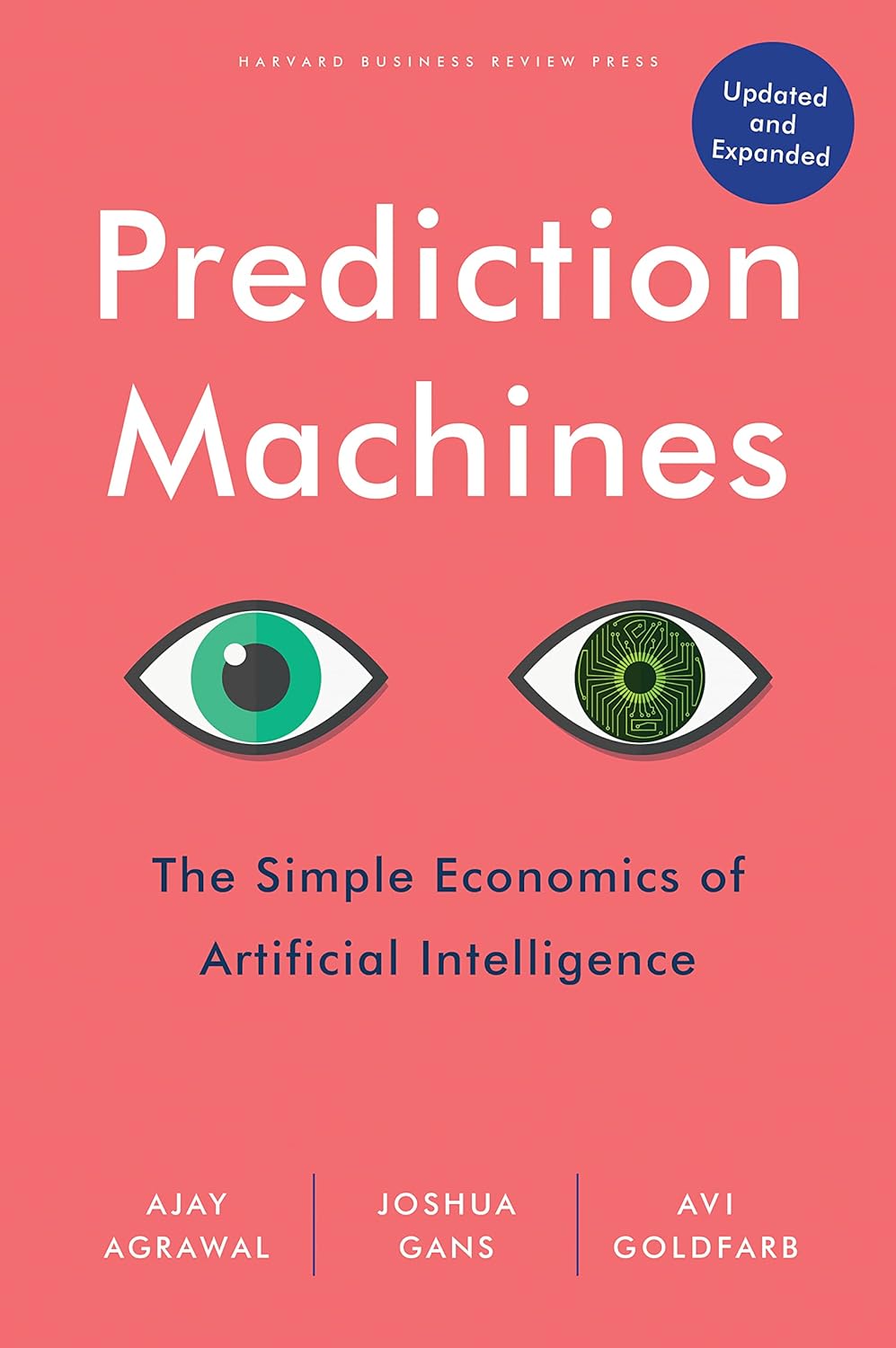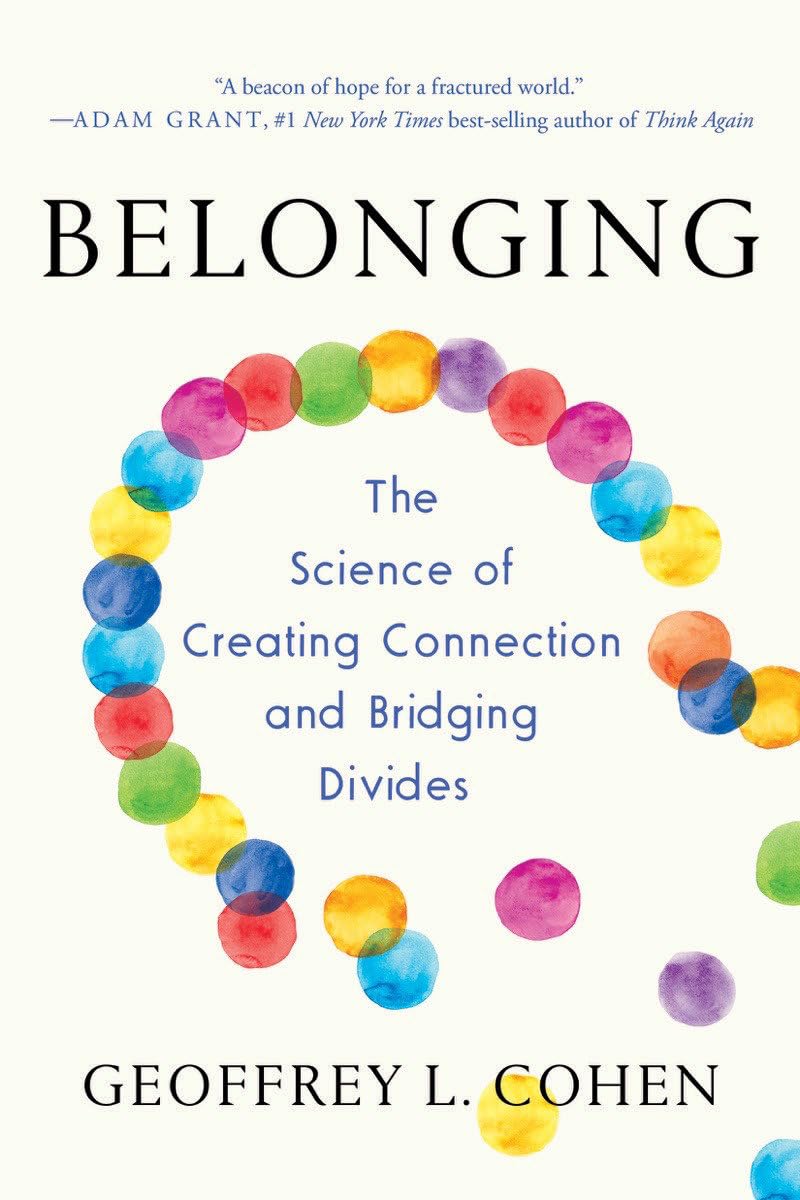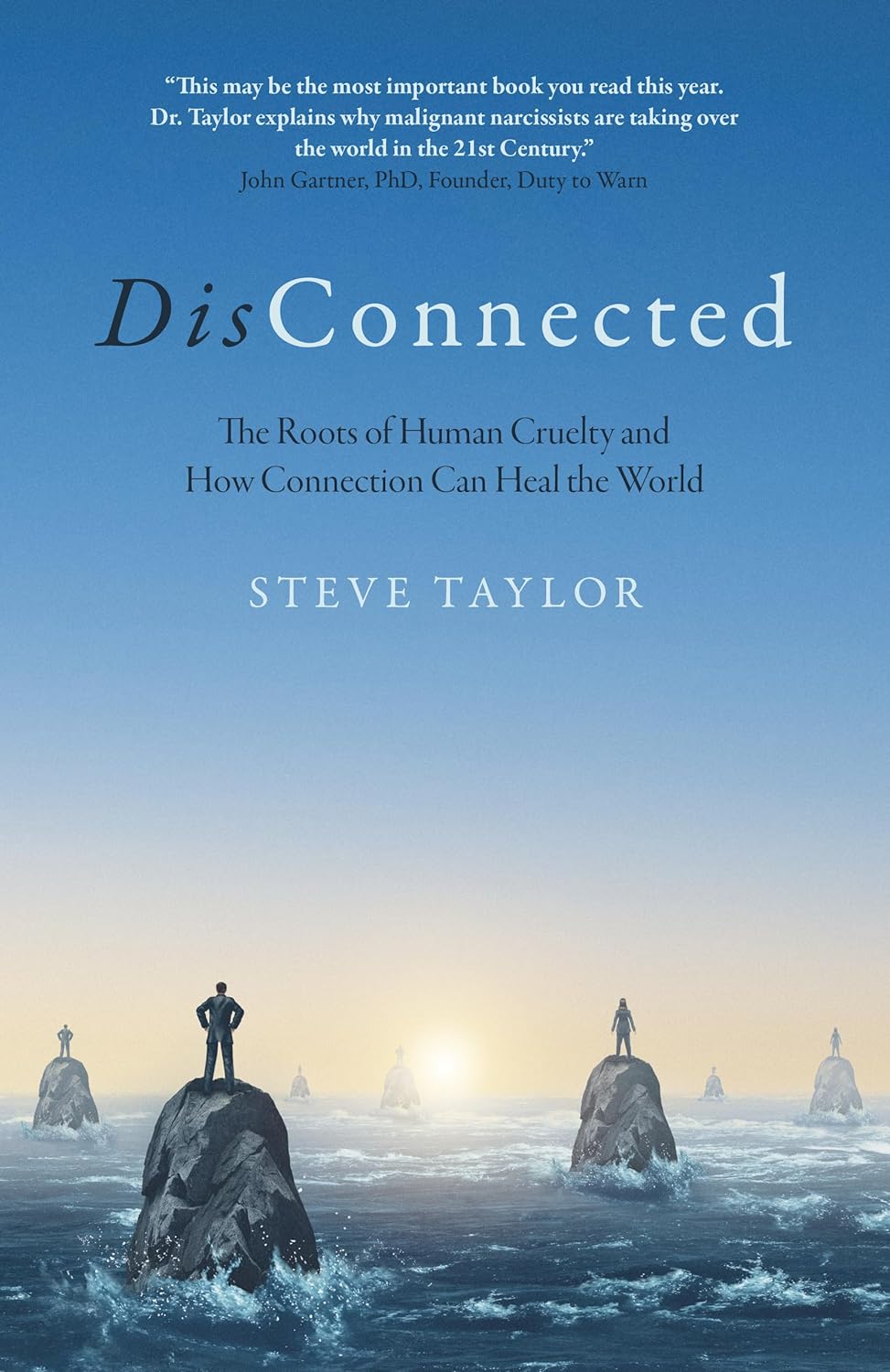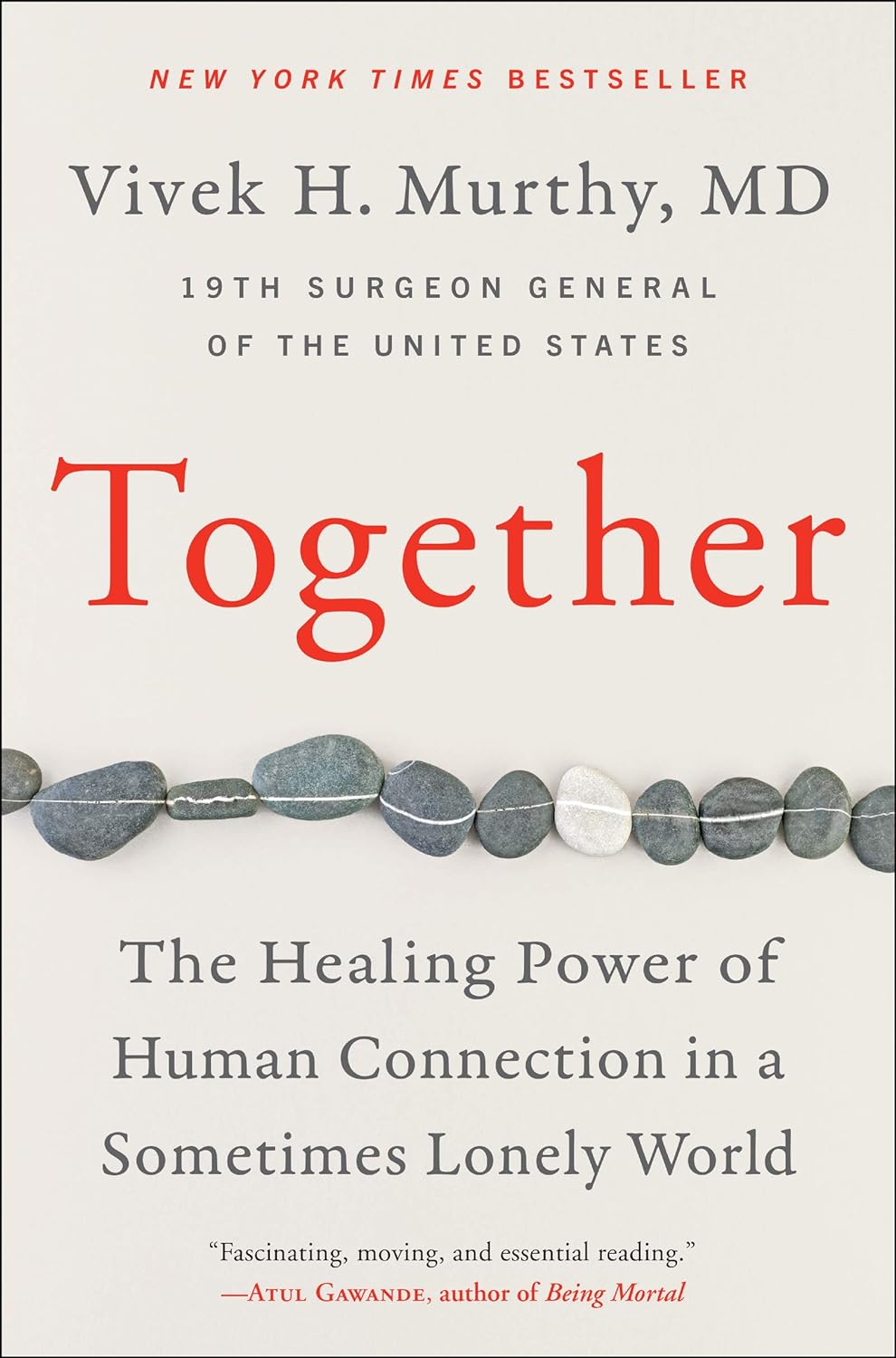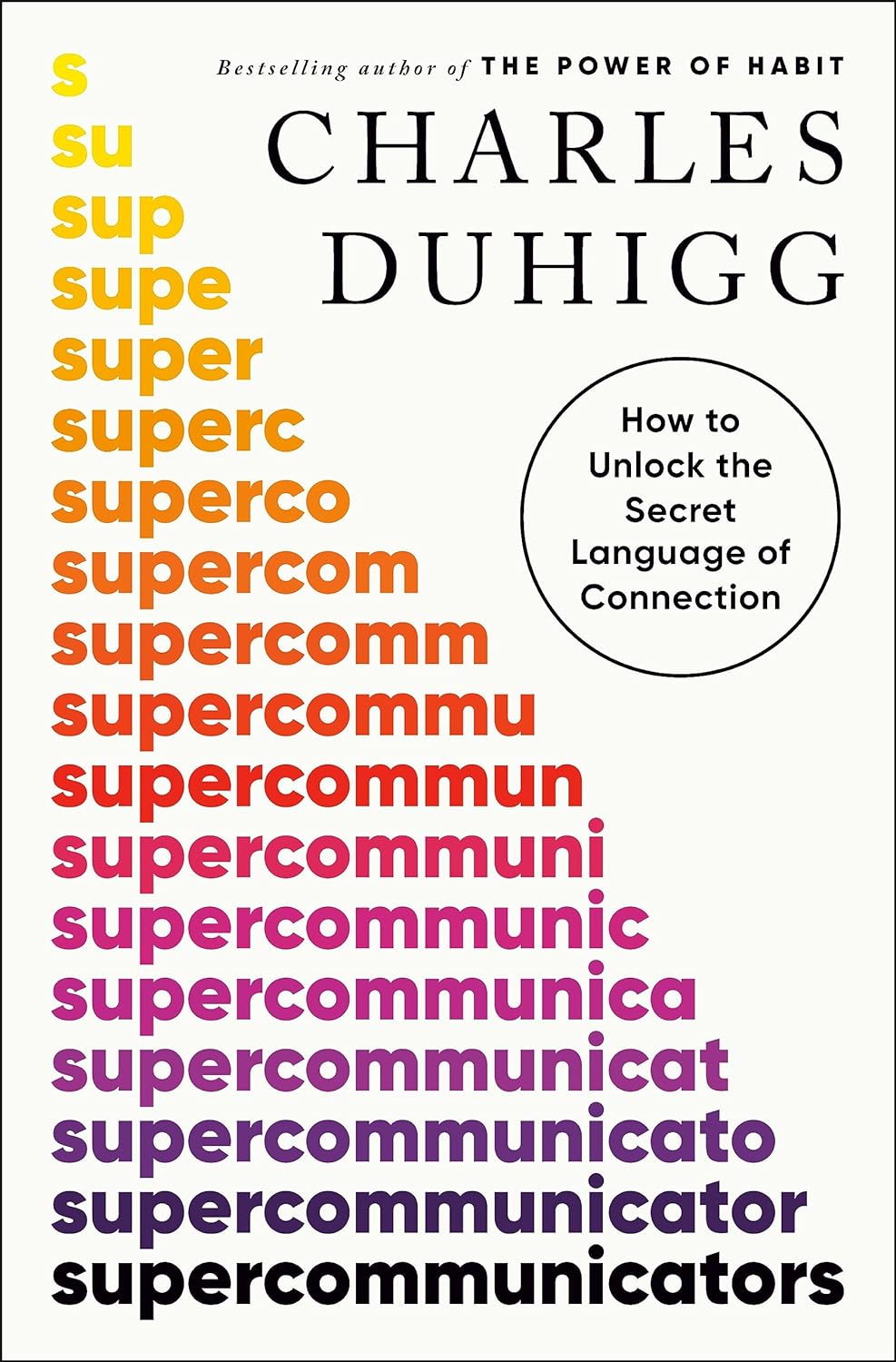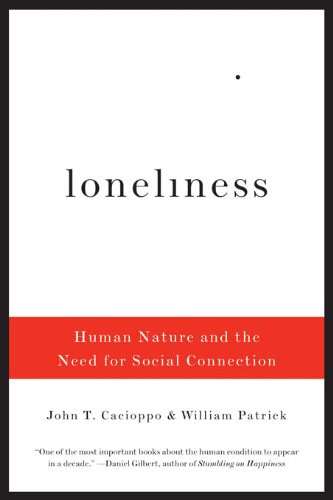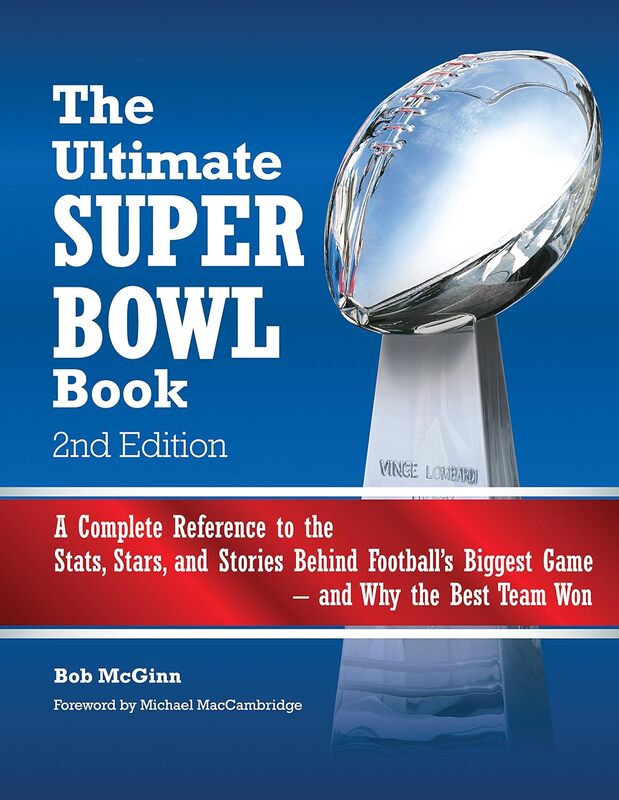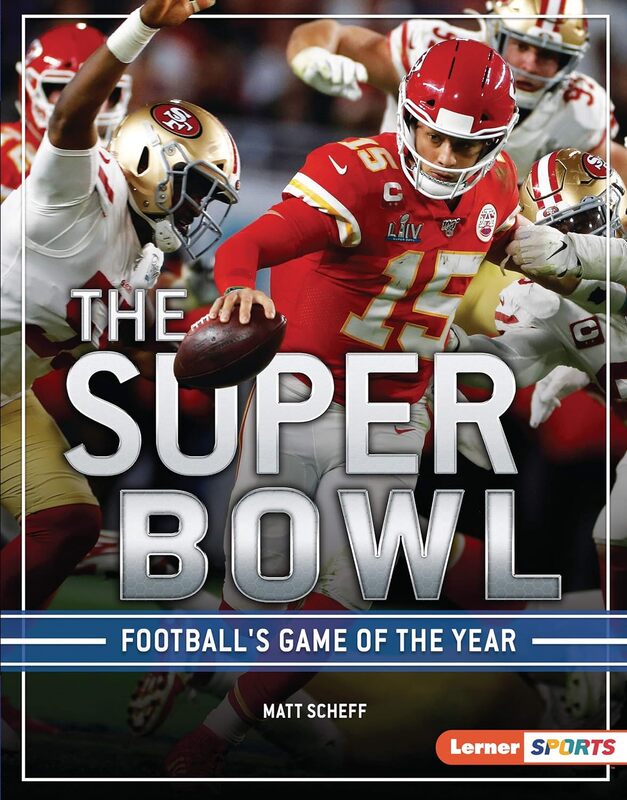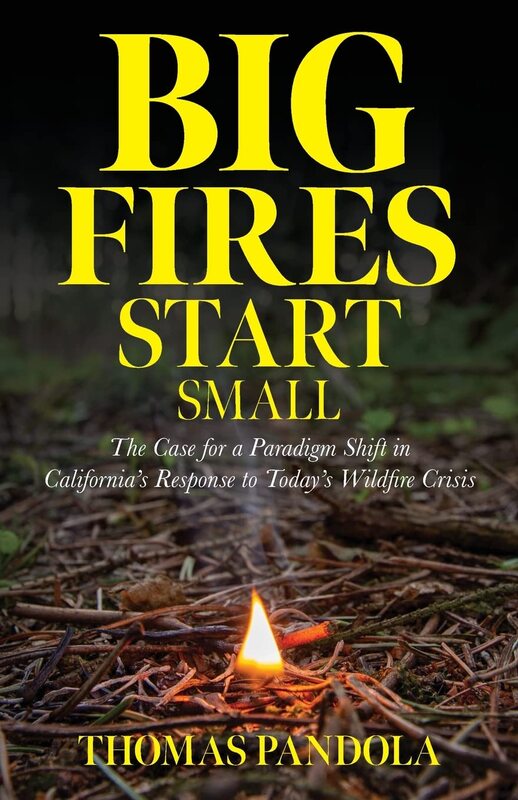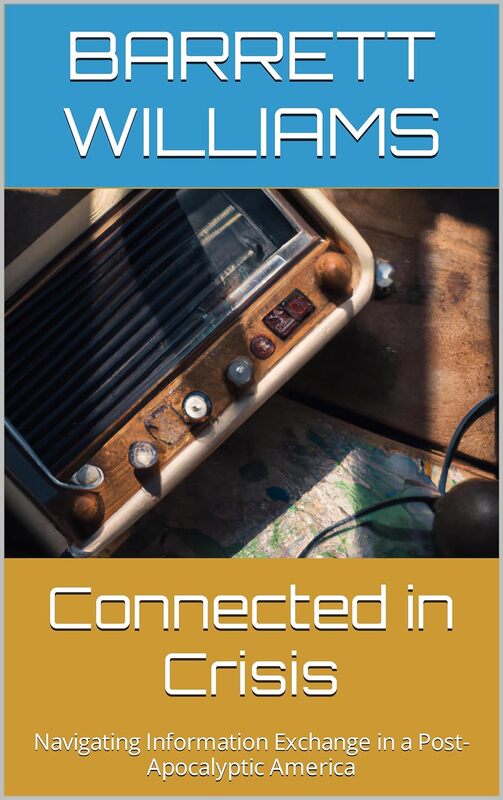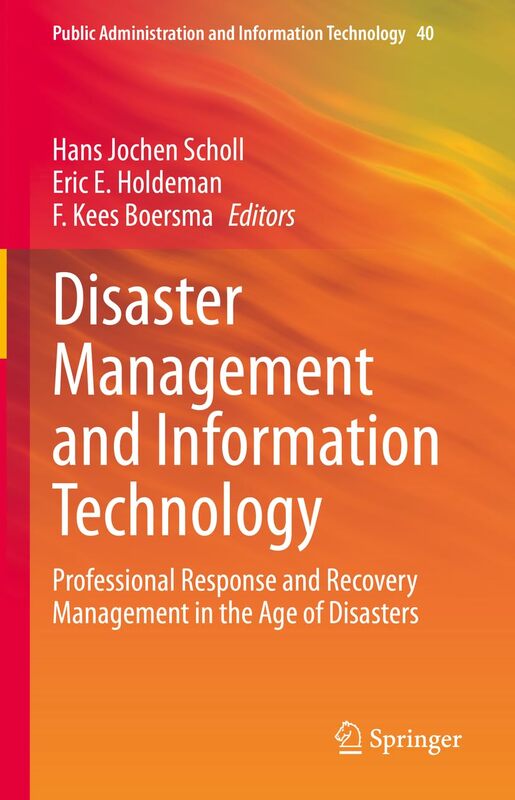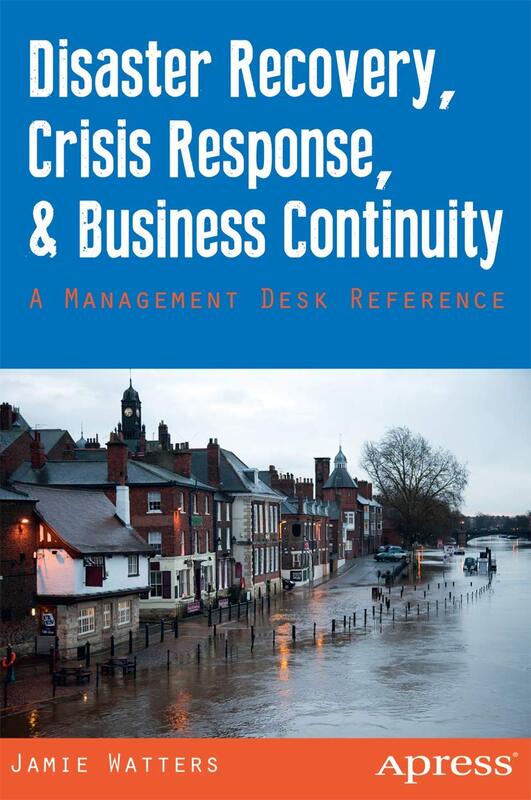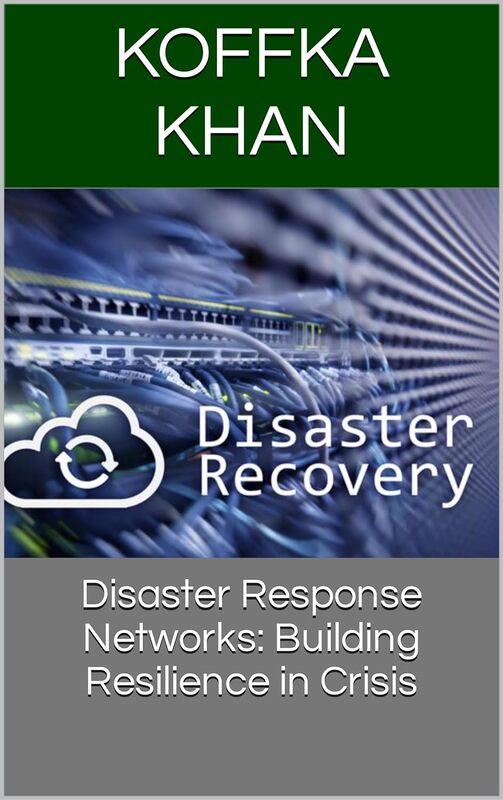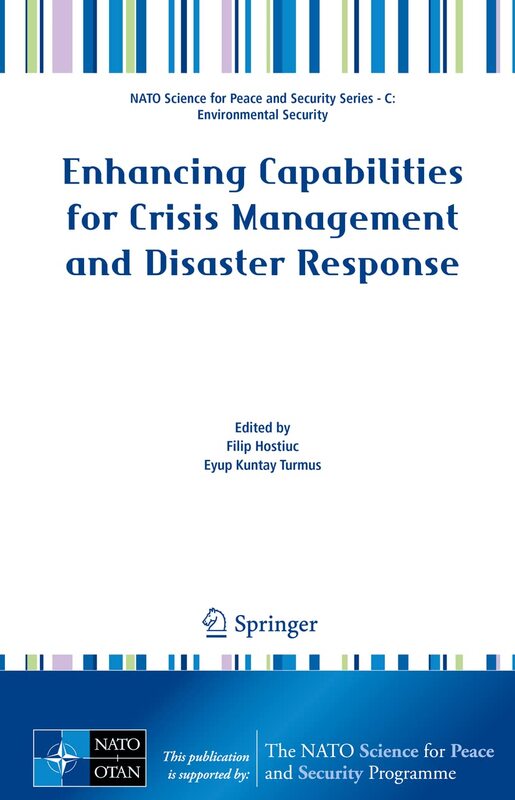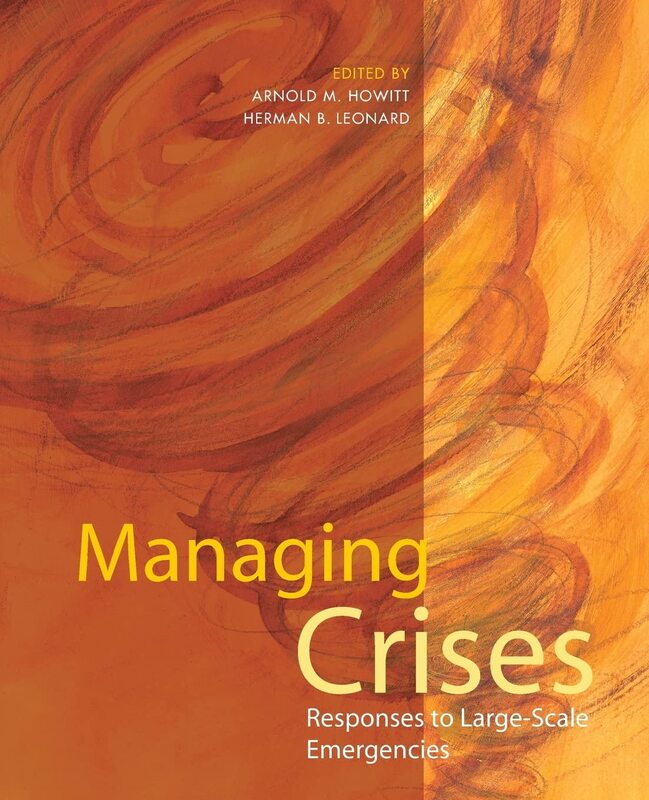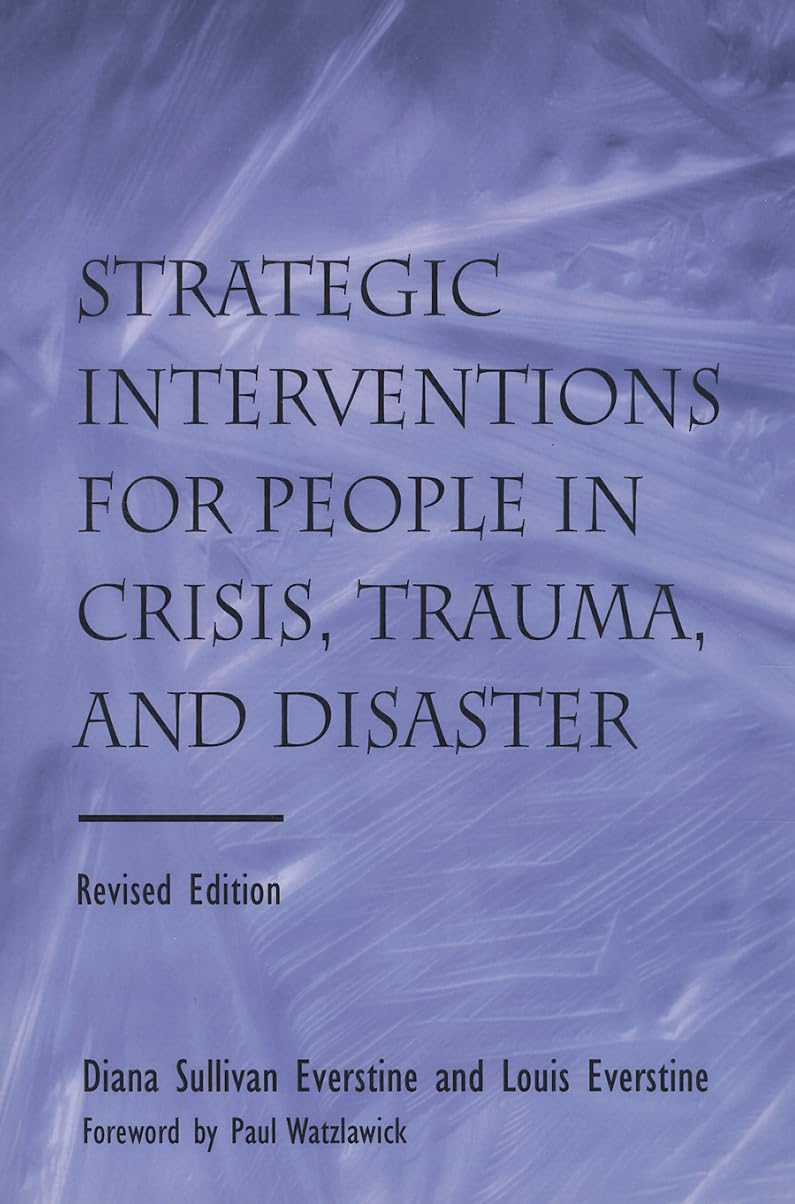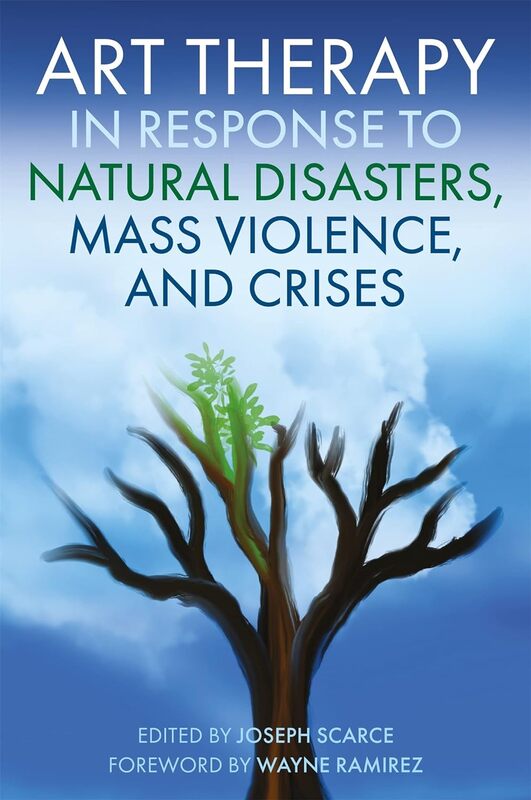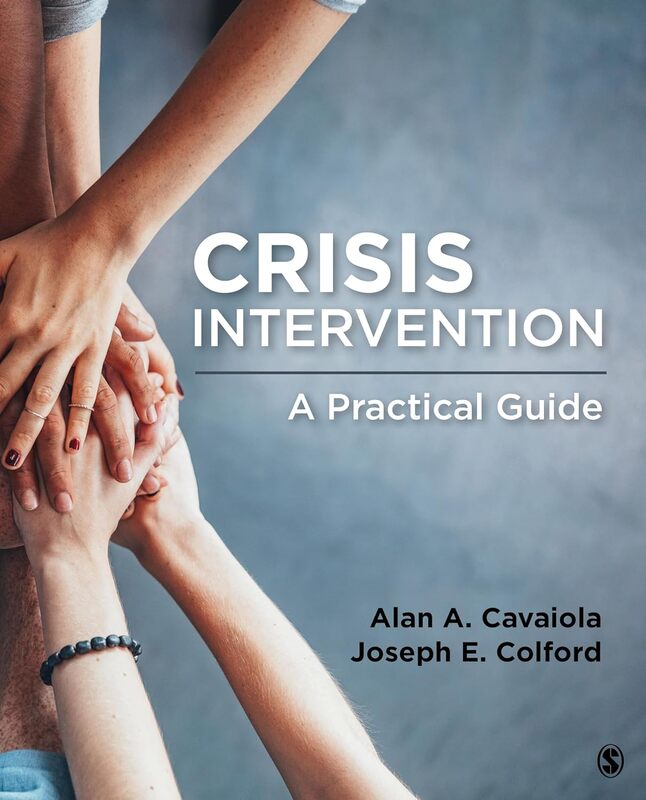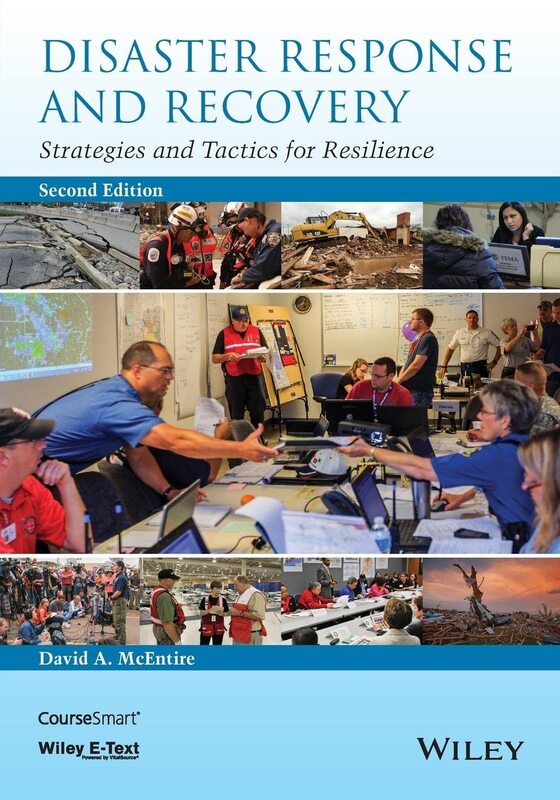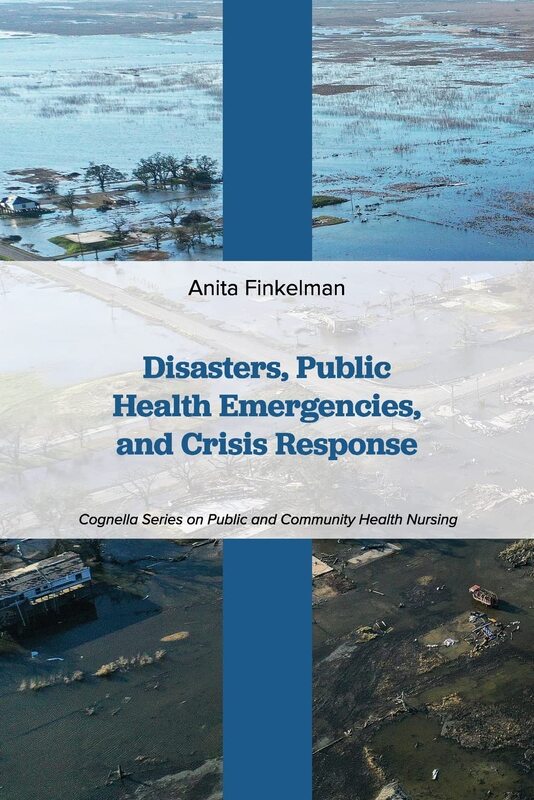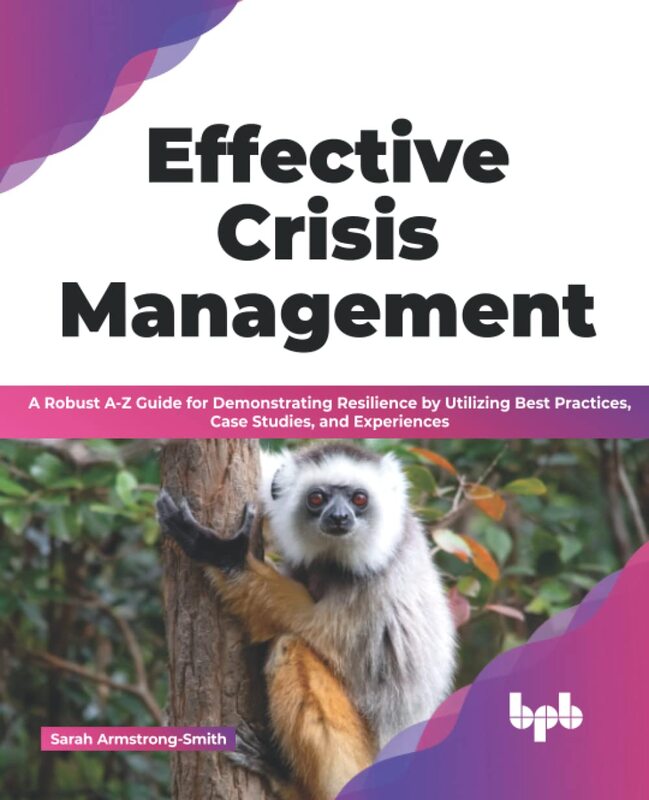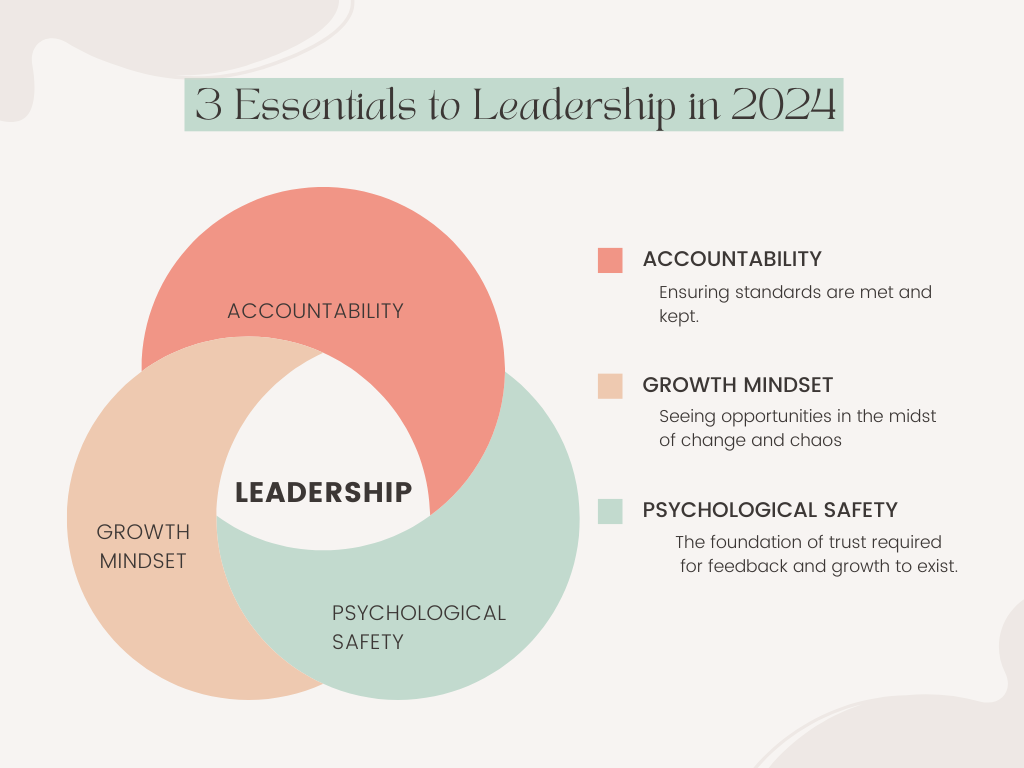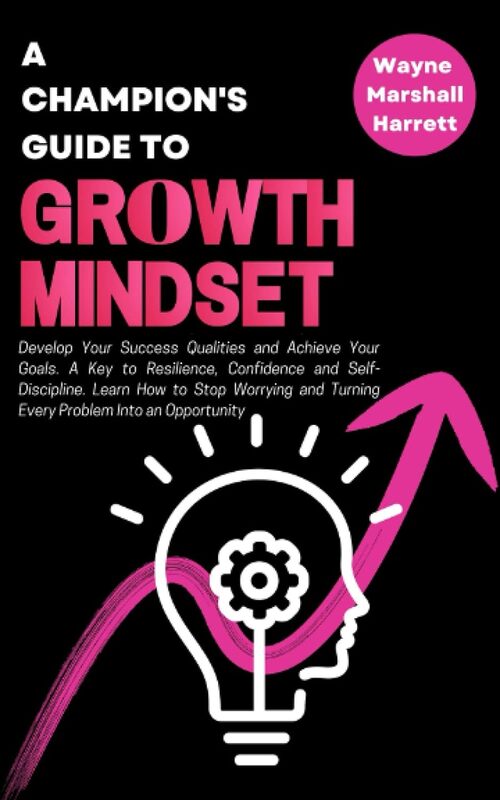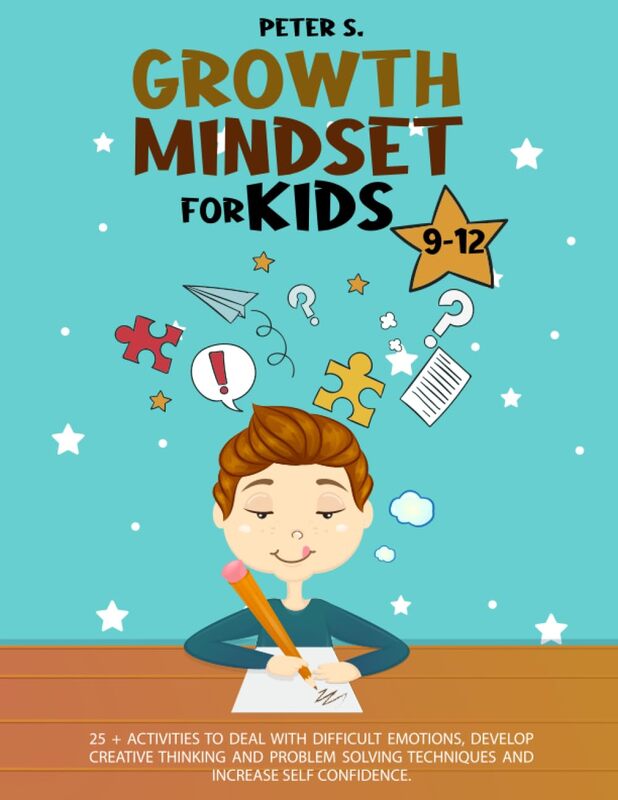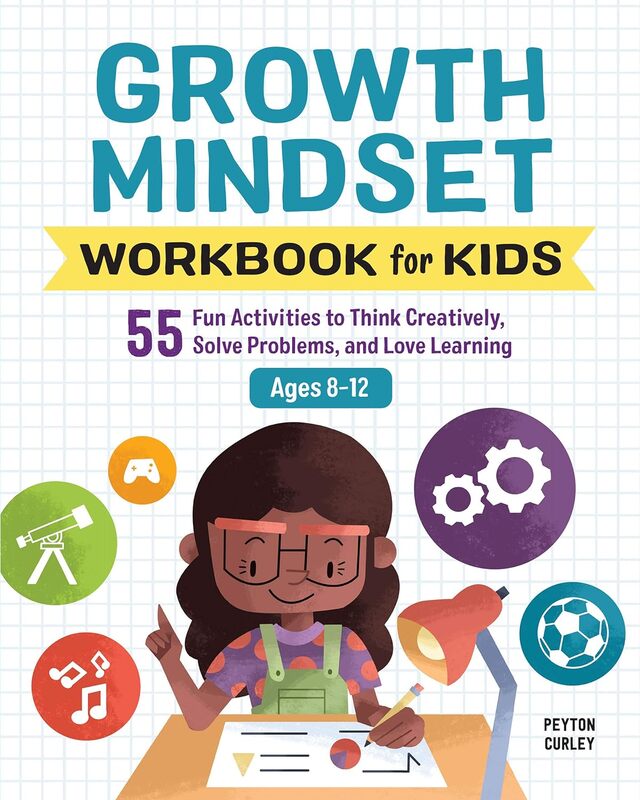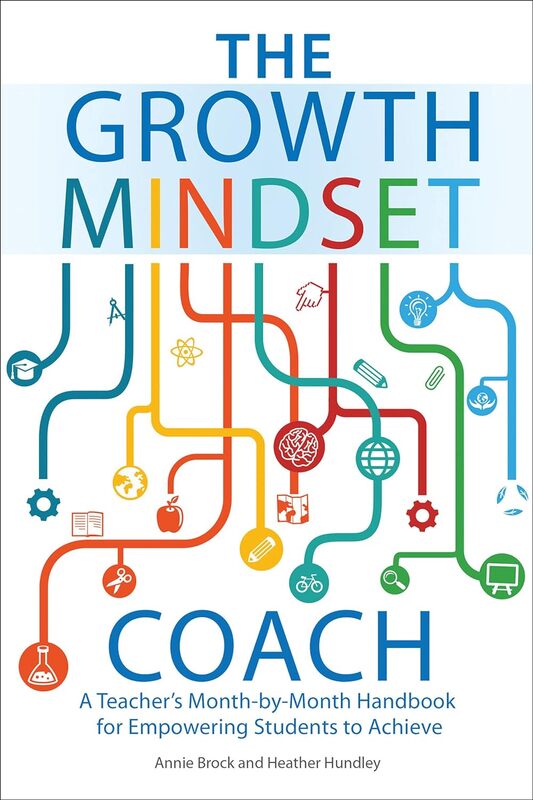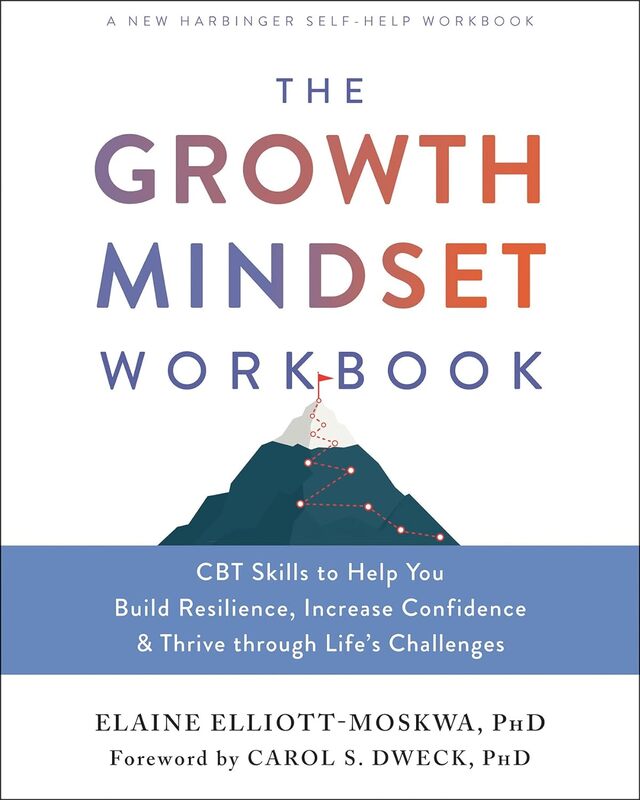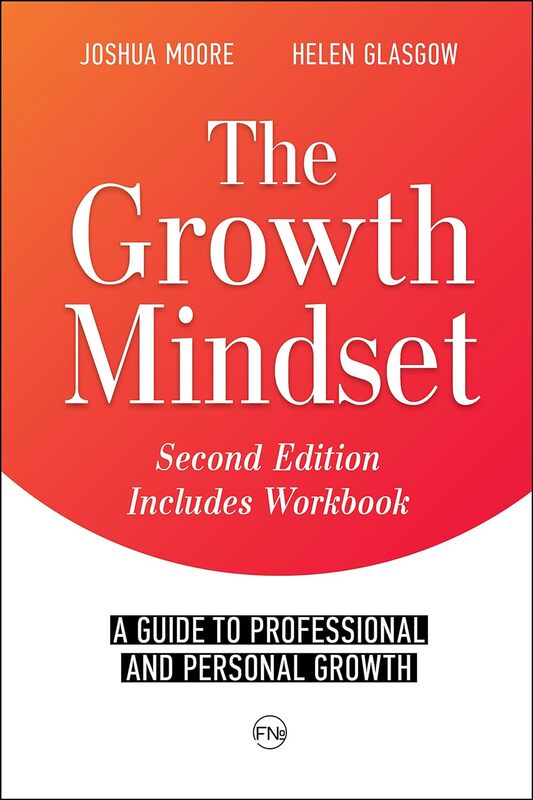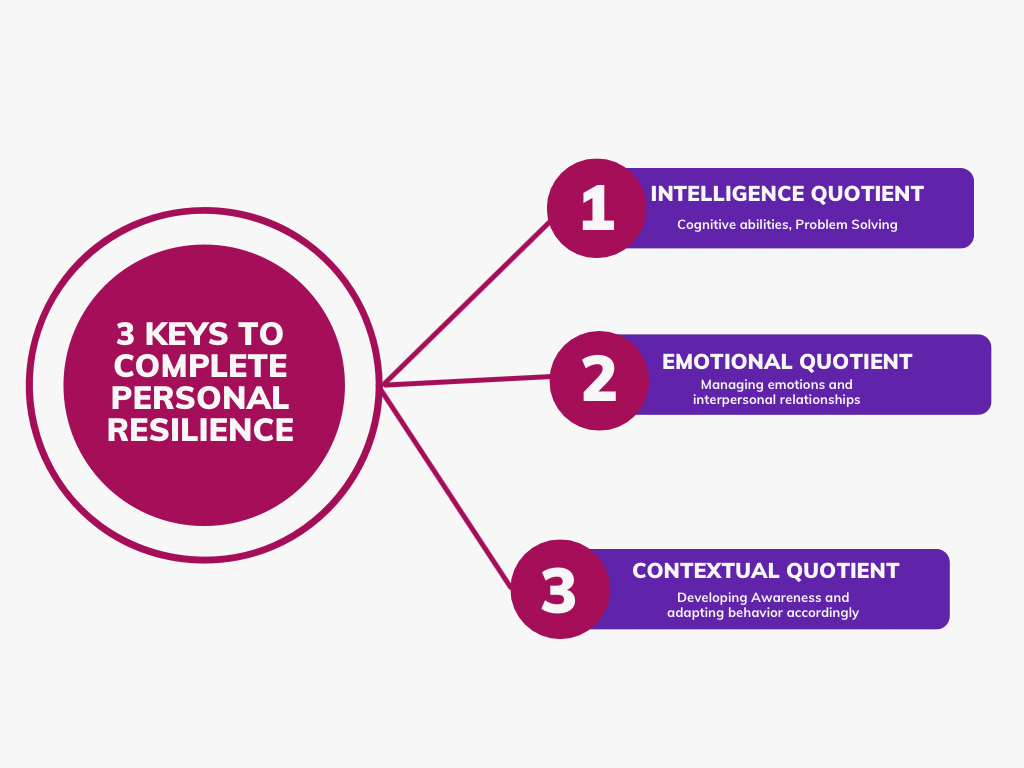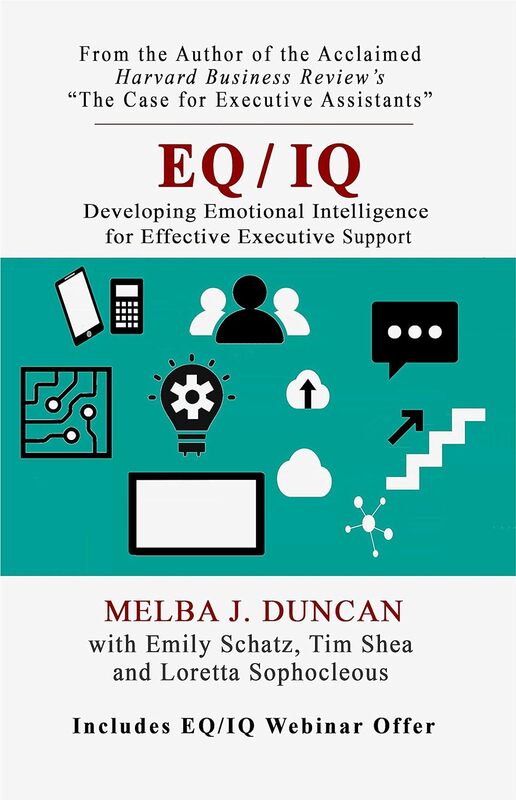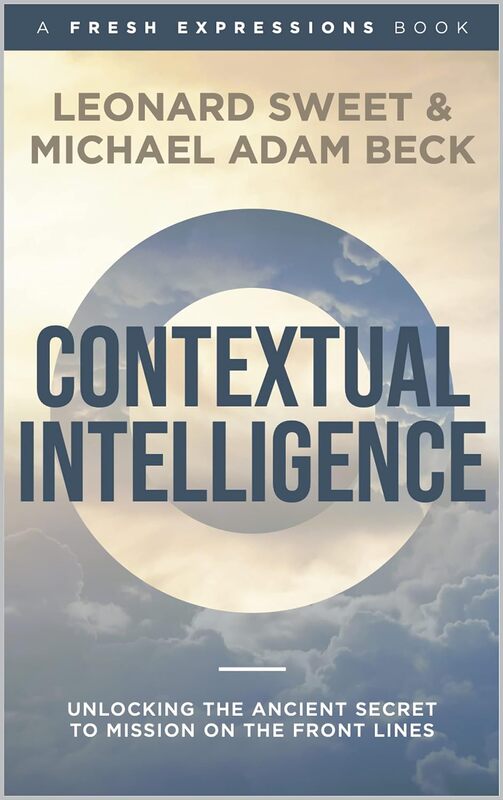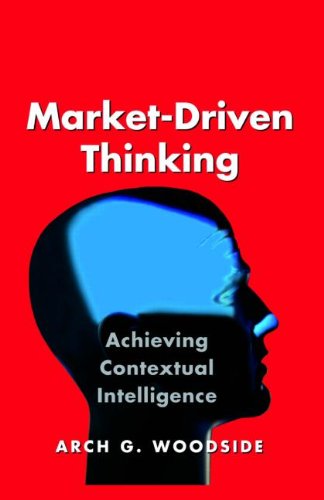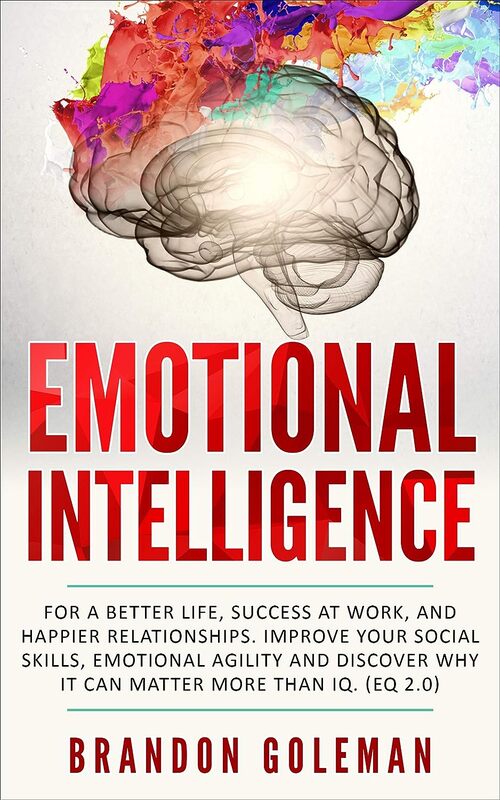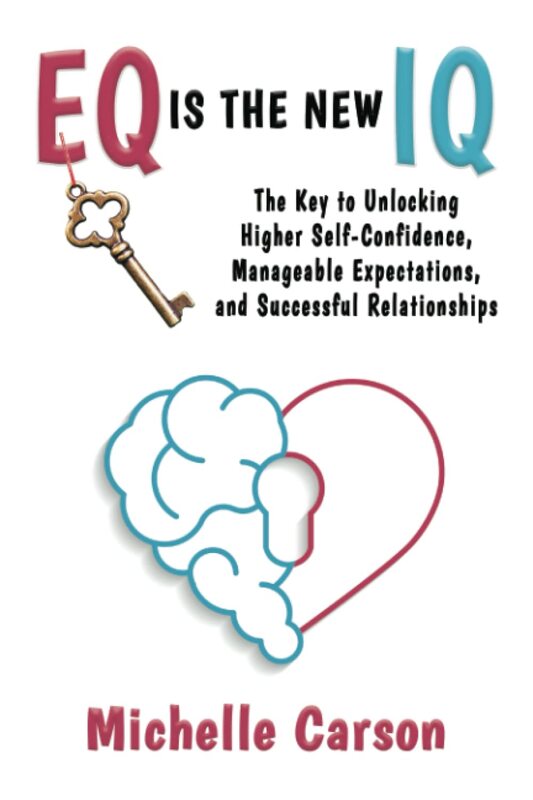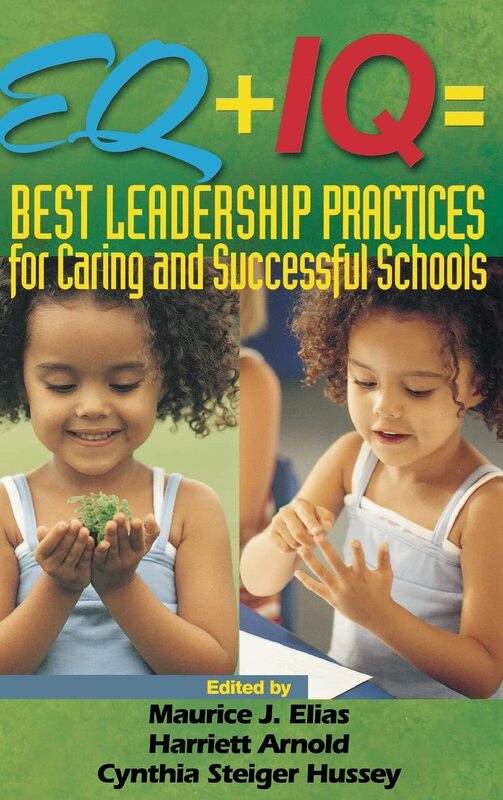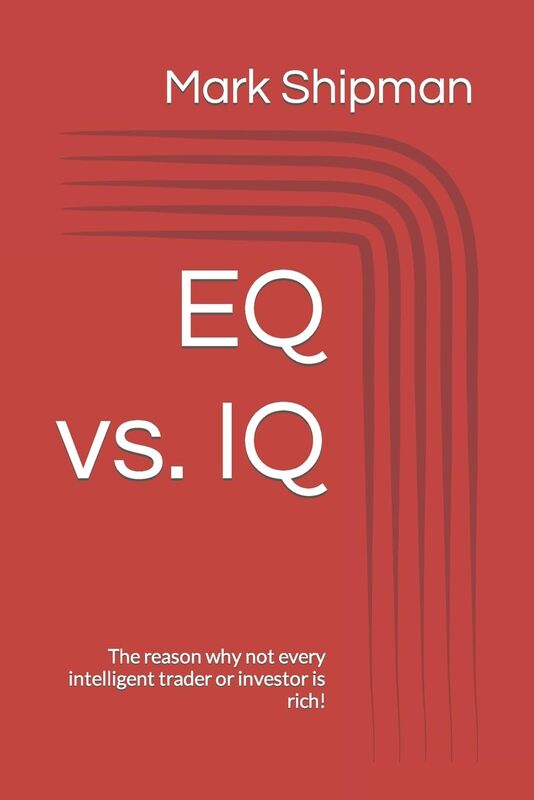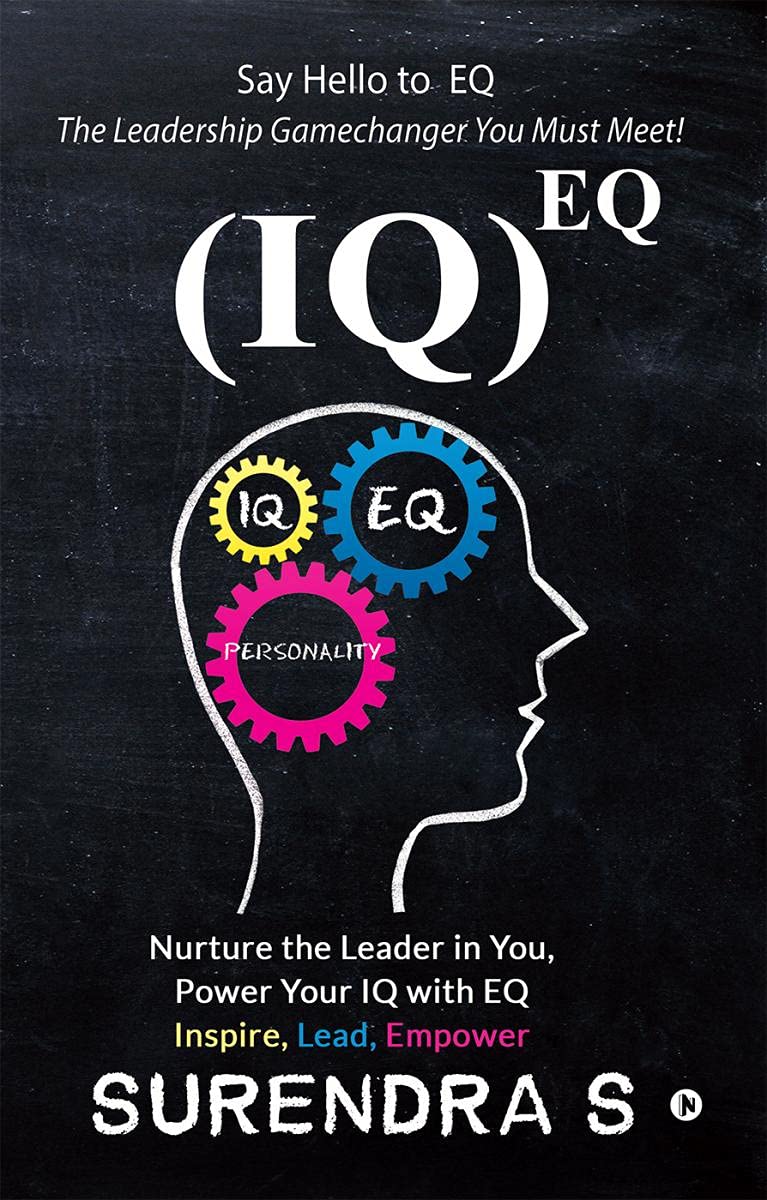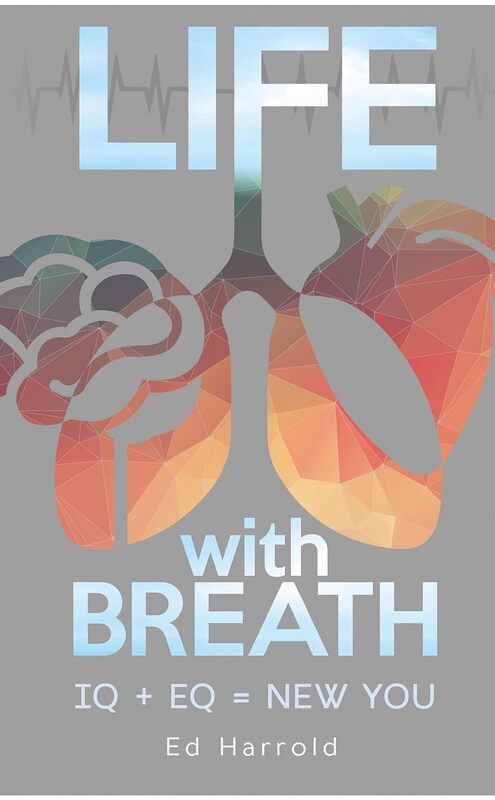Building Resilience with the 7 Mindsets, featuring Scott Shickler
In this episode of the Barriers and Boundaries: Resilience Leadership Podcast, we sit down with Scott Shickler, founder of 7 Mindsets, to unpack the mindset strategies that drive personal growth, accountability, and real-world resilience.
As discussed in our conversation, here is the link to the free 7 Mindsets Book:
**** Free Digital 7 Mindsets Book: https://7mindsets.com/free/ ****
Additional info from Scott Shickler and The 7 Mindsets may be found here:
7 Mindsets Website: https://7mindsets.com/
7 Mindsets Instagram: https://www.instagram.com/7mindsets/?hl=en
7 Mindsets LinkedIn: https://www.linkedin.com/company/7-mindsets/
Scott is no stranger to helping people transform their thinking. In this powerful conversation, he walks us through how the Seven Mindsets framework can spark self-improvement, positive thinking, and sustainable success by shifting the way we see ourselves and the world around us.
As discussed in our conversation, here is the link to the free 7 Mindsets Book:
**** Free Digital 7 Mindsets Book: https://7mindsets.com/free/ ****
Additional info from Scott Shickler and The 7 Mindsets may be found here:
7 Mindsets Website: https://7mindsets.com/
7 Mindsets Instagram: https://www.instagram.com/7mindsets/?hl=en
7 Mindsets LinkedIn: https://www.linkedin.com/company/7-mindsets/
Scott is no stranger to helping people transform their thinking. In this powerful conversation, he walks us through how the Seven Mindsets framework can spark self-improvement, positive thinking, and sustainable success by shifting the way we see ourselves and the world around us.
| Key Takeaways from the conversation:
|
🎯 Why This Matters
In a time where burnout is high and distractions are everywhere, this episode offers a return to something foundational: how we think. The Seven Mindsets, like Dream Bigger, Live to Give, and Attitude of Gratitude aren’t motivational fluff. They’re frameworks that ground people in clarity, direction, and action.
If you’re feeling stuck, uncertain, or disconnected from your goals, this episode will reset your thinking.
What makes this conversation especially relevant is how applicable it is across all stages of life. Whether you’re a student, a professional, or in a leadership role, the mindsets you carry shape the way you respond to challenges. In environments that demand adaptability and emotional intelligence, having the right mental framework can be the difference between reacting impulsively and responding with clarity and courage.
The episode also taps into something deeply human, such as the need to feel connected and understood. Resilience isn’t built in isolation. It’s reinforced through shared experiences, mutual encouragement, and honest conversations. Scott highlights how mindset work isn’t just internal. It creates a ripple effect that influences team culture, family dynamics, and even community engagement.
Finally, the message here is not about perfection but progression. Everyone has moments of self-doubt, failure, and fear. What matters most is the choice to keep learning and growing. When we understand that setbacks are part of the learning curve, we stop viewing them as stop signs and begin to see them as guideposts. This shift is at the heart of sustainable success.
💬 Sound Bites
“If every job paid the same, what would I choose?”
“We are connected mindset is critical to success.”
“Mistakes are an integral part of growth.”
📺 Watch the full episode with Scott Shickler on YouTube
🔗 Connect with ScottLearn more about the 7 Mindsets movement and explore how you or your organization can implement this life-changing framework.
]]>In a time where burnout is high and distractions are everywhere, this episode offers a return to something foundational: how we think. The Seven Mindsets, like Dream Bigger, Live to Give, and Attitude of Gratitude aren’t motivational fluff. They’re frameworks that ground people in clarity, direction, and action.
If you’re feeling stuck, uncertain, or disconnected from your goals, this episode will reset your thinking.
What makes this conversation especially relevant is how applicable it is across all stages of life. Whether you’re a student, a professional, or in a leadership role, the mindsets you carry shape the way you respond to challenges. In environments that demand adaptability and emotional intelligence, having the right mental framework can be the difference between reacting impulsively and responding with clarity and courage.
The episode also taps into something deeply human, such as the need to feel connected and understood. Resilience isn’t built in isolation. It’s reinforced through shared experiences, mutual encouragement, and honest conversations. Scott highlights how mindset work isn’t just internal. It creates a ripple effect that influences team culture, family dynamics, and even community engagement.
Finally, the message here is not about perfection but progression. Everyone has moments of self-doubt, failure, and fear. What matters most is the choice to keep learning and growing. When we understand that setbacks are part of the learning curve, we stop viewing them as stop signs and begin to see them as guideposts. This shift is at the heart of sustainable success.
💬 Sound Bites
“If every job paid the same, what would I choose?”
“We are connected mindset is critical to success.”
“Mistakes are an integral part of growth.”
📺 Watch the full episode with Scott Shickler on YouTube
🔗 Connect with ScottLearn more about the 7 Mindsets movement and explore how you or your organization can implement this life-changing framework.
LISTEN TO MORE FROM LAUREN ON THE BARRIERS AND BOUNDARIES PODCAST!
Barriers and Boundaries Podcast: A Conversation with Lauren Wittenberg Weiner, Author of Unruly
On this episode of the Barriers and Boundaries Resilience Leadership Podcast, we had the privilege of speaking with Lauren Wittenberg Weiner, author, entrepreneur, and founder of Lone Pine Advisors. Lauren joined us to talk about her upcoming book Unruly and to share a powerful conversation on what it really takes to lead with resilience, authenticity, and strategy.
Lauren is not new to breaking norms. As the founder and former CEO of WWC Global, she led one of the most successful women-owned government contracting firms in the country. The company grew to over 100 million dollars in annual revenue and employed more than 300 people before being acquired in 2022. Lauren understands systems, success, and how to lead without losing yourself.
From the start of our conversation, Lauren made it clear that authenticity is everything. Leadership is not about pretending to be someone you’re not. It’s about being real. That honesty creates connection. It invites trust. It sets a foundation where others can also bring their whole selves to the table. Lauren lives this belief both personally and professionally.
We also dove into the importance of resilience and adaptability. Life changes. Business shifts. Family responsibilities can appear without warning. Lauren is a caregiver, a mom, and a business therapist. Through all of it, she has learned to adapt and find her footing. Resilience is not just bouncing back. It’s learning how to move forward in new ways.
One of the most interesting parts of our discussion focused on rules. Lauren is not against rules. In fact, she values understanding them. Knowing the rules gives you the power to move within them, to work around them, and sometimes to change them. You cannot navigate what you do not understand. This clarity is key to making bold but informed choices.
Lauren also emphasized the value of choosing your battles. Not everything deserves your energy. Leadership means knowing when to engage and when to step back. Picking the right battles can increase your effectiveness and protect your well-being. It is about strategy, not reaction.
As we talked about business success, Lauren kept returning to the basics. Fundamentals matter. Strategy, preparation, consistency, and solid relationships are often overlooked because people are chasing shortcuts. But those basics are what build sustainable success. When the foundation is strong, everything else becomes easier to manage.
We touched on what people often call luck. Lauren challenged that idea. In her experience, luck is the result of showing up over and over again. It is the outcome of consistent effort, quiet preparation, and readiness. You cannot control timing, but you can control your preparation for when opportunity comes.
One powerful topic we explored was culture. Lauren believes in building non-transactional environments. That means not keeping score. Not giving just to get something back. When people feel seen and respected without conditions, trust grows. Innovation follows. Teams work better. People stay longer. That kind of culture does not happen by accident. Leaders create it intentionally.
This led us to another important idea. Leaders should be gateways, not gatekeepers. Too often, leaders hold back opportunities. They filter access. Lauren believes great leaders open doors. They amplify others. They make space. Leadership is not about being the smartest person in the room. It is about lifting up the people around you.
We ended with a candid conversation about ego. Ego can quietly undermine leadership. It can make us defensive. It can make us ignore feedback. Lauren shared how she continues to check her own ego, and she encourages others to do the same. Feedback, reflection, and humility are not signs of weakness. They are the roots of real strength.
Lauren’s story is a reminder that leading well is not about being perfect. It is about being clear, consistent, and courageous. Her book Unruly will challenge you to rethink how you lead, how you build, and how you show up.
Make sure to stay connected so you know when Unruly hits the shelves. It is a book that will resonate long after the last page is turned.
To learn more about Lauren Wittenberg Weiner, visit https://laurenwittenbergweiner.com. You can follow her speaking schedule, explore her work as a business therapist, and connect with the ideas shaping her next chapter.
Whether you are a new founder, an executive navigating complex systems, or someone leading from the middle, this episode offers insight, encouragement, and clarity.
Key Takeaways from Lauren Wittenberg Weiner
Stay tuned for more real conversations on the Barriers and Boundaries Resilience Leadership Podcast, where we highlight leaders who challenge the norms and lead with conviction.
]]>Lauren is not new to breaking norms. As the founder and former CEO of WWC Global, she led one of the most successful women-owned government contracting firms in the country. The company grew to over 100 million dollars in annual revenue and employed more than 300 people before being acquired in 2022. Lauren understands systems, success, and how to lead without losing yourself.
From the start of our conversation, Lauren made it clear that authenticity is everything. Leadership is not about pretending to be someone you’re not. It’s about being real. That honesty creates connection. It invites trust. It sets a foundation where others can also bring their whole selves to the table. Lauren lives this belief both personally and professionally.
We also dove into the importance of resilience and adaptability. Life changes. Business shifts. Family responsibilities can appear without warning. Lauren is a caregiver, a mom, and a business therapist. Through all of it, she has learned to adapt and find her footing. Resilience is not just bouncing back. It’s learning how to move forward in new ways.
One of the most interesting parts of our discussion focused on rules. Lauren is not against rules. In fact, she values understanding them. Knowing the rules gives you the power to move within them, to work around them, and sometimes to change them. You cannot navigate what you do not understand. This clarity is key to making bold but informed choices.
Lauren also emphasized the value of choosing your battles. Not everything deserves your energy. Leadership means knowing when to engage and when to step back. Picking the right battles can increase your effectiveness and protect your well-being. It is about strategy, not reaction.
As we talked about business success, Lauren kept returning to the basics. Fundamentals matter. Strategy, preparation, consistency, and solid relationships are often overlooked because people are chasing shortcuts. But those basics are what build sustainable success. When the foundation is strong, everything else becomes easier to manage.
We touched on what people often call luck. Lauren challenged that idea. In her experience, luck is the result of showing up over and over again. It is the outcome of consistent effort, quiet preparation, and readiness. You cannot control timing, but you can control your preparation for when opportunity comes.
One powerful topic we explored was culture. Lauren believes in building non-transactional environments. That means not keeping score. Not giving just to get something back. When people feel seen and respected without conditions, trust grows. Innovation follows. Teams work better. People stay longer. That kind of culture does not happen by accident. Leaders create it intentionally.
This led us to another important idea. Leaders should be gateways, not gatekeepers. Too often, leaders hold back opportunities. They filter access. Lauren believes great leaders open doors. They amplify others. They make space. Leadership is not about being the smartest person in the room. It is about lifting up the people around you.
We ended with a candid conversation about ego. Ego can quietly undermine leadership. It can make us defensive. It can make us ignore feedback. Lauren shared how she continues to check her own ego, and she encourages others to do the same. Feedback, reflection, and humility are not signs of weakness. They are the roots of real strength.
Lauren’s story is a reminder that leading well is not about being perfect. It is about being clear, consistent, and courageous. Her book Unruly will challenge you to rethink how you lead, how you build, and how you show up.
Make sure to stay connected so you know when Unruly hits the shelves. It is a book that will resonate long after the last page is turned.
To learn more about Lauren Wittenberg Weiner, visit https://laurenwittenbergweiner.com. You can follow her speaking schedule, explore her work as a business therapist, and connect with the ideas shaping her next chapter.
Whether you are a new founder, an executive navigating complex systems, or someone leading from the middle, this episode offers insight, encouragement, and clarity.
Key Takeaways from Lauren Wittenberg Weiner
- Authenticity is crucial in leadership and business
- Resilience and adaptability are key to overcoming challenges
- Understanding the rules allows for creative navigation
- Choosing your battles wisely leads to better outcomes
- Fundamentals are essential for sustainable success
- What seems like luck is usually the result of preparation
- Creating a culture of openness builds trust
- Leaders should act as gateways, not gatekeepers
- Non-transactional relationships create stronger teams
- Ego can quietly sabotage even the best leaders
Stay tuned for more real conversations on the Barriers and Boundaries Resilience Leadership Podcast, where we highlight leaders who challenge the norms and lead with conviction.
In this episode of the Barriers and Boundaries Resilience Leadership Podcast, Eric Charran discusses his book Have You Ever Had a Boss That... and explores the dynamics of leadership, resilience, and the impact of unhelpful boss behaviors. He emphasizes the importance of navigating workplace challenges through the exploration of archetypes. Eric shares insights on building resilience, recognizing when to move on from toxic environments, and the significance of confidence in leadership. The conversation provides valuable takeaways for both current and aspiring leaders.
00:00 Introduction to Eric Charran and His Vision
02:23 The Evolution of Leadership in Tech
04:42 Understanding Boss Archetypes
06:43 Resilience in the Workplace
09:11 Empathy and Leadership
11:26 Navigating Toxic Leadership
14:21 The Importance of Information Sharing
16:27 Leading Up: Empowering Yourself
18:09 Finding Your Worth in Leadership
20:36 Final Thoughts and Book Insights
25:39 Introduction to Leadership and Resilience
26:01 The Importance of Building Resilience
#leadership #peopleleadership #Resilience #organizationalculture
00:00 Introduction to Eric Charran and His Vision
02:23 The Evolution of Leadership in Tech
04:42 Understanding Boss Archetypes
06:43 Resilience in the Workplace
09:11 Empathy and Leadership
11:26 Navigating Toxic Leadership
14:21 The Importance of Information Sharing
16:27 Leading Up: Empowering Yourself
18:09 Finding Your Worth in Leadership
20:36 Final Thoughts and Book Insights
25:39 Introduction to Leadership and Resilience
26:01 The Importance of Building Resilience
#leadership #peopleleadership #Resilience #organizationalculture
Transcription:
E.B. (00:07)
Well, hello friends. Welcome back to another episode of barriers and boundaries resilience leadership podcast. I'm your host EB. I got a author today. I got a guest today that, more than an author, a visionary leader, visionary in the tech industry, 25 years of experience, transforming organizations. but I came across Eric Charran just to, from his book. Have you ever had a boss that, and let me tell you that book.
Eric Charran (00:26)
you
E.B. (00:32)
will resonate with you in so many ways. Eric, how you doing today?
Eric Charran (00:35)
Great E.B., how are you? It's great to be here.
E.B. (00:37)
And it's a, great to have you here. And like I said, have you ever had a boss that it really just strikes a strikes a chord on a lot of aspects. And I appreciated that. So, as we kind of get started here, I you've worked with Microsoft and capital one, 25 years in this industry, going back to this takes you back to what the.com era is that that boom.
Eric Charran (00:58)
Hey, that's
that you know your history. That's exactly right. I'm a I'm a gen Xer died in the wool. yeah, absolutely I graduated right at the dawn of the dot-com era and it lasted maybe about three four years and then all wrote it all the way to the bus and then Stayed in technology started working in Microsoft shortly thereafter
E.B. (01:03)
Yeah.
I love it. love it. Yeah, that's a I can assume there was a lot of learning and growing pains along the way. probably where some of this came out of this book for you. I'd have to imagine
Eric Charran (01:26)
Yeah, it was the first era of move fast and break things. We didn't call it that back then, but like that's really what it was. It was just this specter of bottomless pit of stock options and potential. As long as we felt good about what we were building, we knew that we were all going to achieve the results that we all wanted. And there was just a period of excess. when I was in school, if you could spell HTML, could write your own ticket.
Right. so largely that was kind of like the, the interesting thing that kind of propelled me to look at technology. What a lot of people don't know is I actually have a degree in marketing and I have an MBA, which actually helps me to this very day because, know, the folks that write the check are the folks that have those degrees and are in those in the business. And you have to be able to translate technology into business impact, business metrics and business speak.
I often tell my teams that the number one thing a technologist needs to do is to take things that are complex and make them simple so that people can decide and weigh in and explain.
E.B. (02:23)
that's a great insight into kind of where leaders need to be, kind of where they need to that thinking foundation. that's kind of where it starts, right? Being able to process good information. I know a lot of effort these days are, when we talk about GEN-AI is what is the right information to have, So you start with that data set. But there's still that human aspect of, being involved in business and like you touched on there and
Eric Charran (02:42)
Mm-hmm.
E.B. (02:48)
I always liked that phrase, haters going to hate. But as I was reading this is going through this, I was like, leader's going to lead, and and I just sense that coming out of you in terms of what you were writing is you got to counter.
Eric Charran (02:51)
Thanks.
E.B. (03:00)
the insecurity that we see in the workplace. And I think this book does just that. so one, thank you for writing that. And two, I'd love to hear more of your thoughts about how that came to develop for you. why this book?
Eric Charran (03:05)
Yeah.
Yeah, absolutely.
Yeah, why this book? Why now? Yeah, it's a great perspective, a great set of questions that I get a lot. And what's interesting is when I was shopping this book around to publishers, know, just the idea, they're like, are you saying, Eric, that there are no good bosses anywhere? And I'm like, no, no, no, that's not what I'm saying at all. In fact, I'm not saying that these are bad bosses, or I kind of grade against the perception that there are bad bosses and bad people. These are just a collection of unhelpful behaviors that
to me boil down to the wrong tools in the toolbox for leaders to utilize. And it's not largely not their fault per se, because they, like your, leaders gonna lead, kind of statement. I have a similar one, which is leaders lead how they were led. Coaches coach how they were coached. And so the perpetuation of these unhelpful behaviors as being the right tools to lead
E.B. (03:52)
Right, yeah.
Eric Charran (03:58)
perpetuated throughout, it has certainly perpetuated throughout my career. So what I realized is, as a Gen Xer, I've been around for a while, like you said, 25 or close to 30 years. And I noticed that there's a lot of early in career folks and mid-career folks that are getting the same scars that I've had, tripping over the same, stumbling blocks, tripping up the stairs, however you want to phrase it.
And I said, you know what, I know a lot. Like I know a lot about these types of behaviors. I've seen these behaviors recur in people. I've kind of been shocked, mortified, horrified, felt just raw injustice about being treated that way, being subject to those behaviors. And then I built this thick skin, this resiliency to figure out how to deal with it, to say, I don't have to get upset at this anymore. I've seen this before and I know exactly what to do.
That took years and years to assemble. My hope is that maybe it'll take someone minutes or hours or days to assemble, hopefully after reading the book. But to answer your question, like why right now, we were all sitting around once, me and my peers were talking about a specific leader or set of leaders. And we were like, can you believe they did that? And I said, yes, absolutely. And here's what they'll do next. And they were like, you're 100 % right. That absolutely happened. I said, here's what you do. And then vice versa, we were all kind of sharing.
our perspectives on this particular leader or that particular leader. And we started giving them funny little names to identify the behavior. And then somebody was like, hey, someone should write this down. I'm like, I'll write it down. And that kind of just, it just poured out after that initial me sitting down just to think about and write it.
E.B. (05:25)
what do you think's been the most memorable boss types that readers have related to,
I'd love to hear more about some of the boss types that you wrote about.
Eric Charran (05:30)
Yeah.
Yeah,
it's almost like asking me, I didn't realize this until I was asked this question, like, what's your favorite or what's the most impactful or what's the most terrible to work for? And it's asking like, how do you pick your favorite child? But I think that some of the most memorable ones and the one for me, and I think it really depends on who you are as an individual. I am a very logical, data-driven, at least I like to think of myself that way.
logical data-driven, I like to prepare. like to look at all of what the permutations of an outcome could be and how to prepare for each one and then go in polished and, be able to have a really productive session, wherever that, whether that's going into the C-suite, try to convince them to do something or to invest in something, whether it's to, kind of inspire people to, lead or to articulate needs. I really like to be polished and prepared. And so the folks that.
kind of disrupt that or eschew that or pretend like they're listening and then they show up at the meeting and they're counterproductive, those are the ones that I have the most difficulty dealing with. That's me as a person. So the raw nerve archetype is really one of the ones that I had a significant challenge growing and managing upward with. So the raw nerve for listeners are, this is a manager that has typically reached significant levels of success sometimes.
making fast and quick, instinctive decisions in the moment when it comes, we need to do X, Y, Z. We need to go left or right. Which way do we go? And the manager goes, based on my experience and my gut, we go this way. And there's definitely a place for that, especially in younger organizations where you have to move fast, you have to react to changes in the marketplace or within the organization. And still, even in established organizations, you still need to make quick decisions.
but this is the only gear that this manager has is the quick decision. So when you actually have to do something thoughtful, when you're trying to consider, I think I write in the book about an example about deciding who's going to be your cloud analytics provider for the next five years, that's not a quick decision, gut reaction kind of thing. That is a, let's get together a team, let's spend time deconstructing the features, let's meet with each of these vendors.
E.B. (07:11)
You
Eric Charran (07:33)
Let's figure out how our use cases map to what this thing needs to do. And then let's provide our findings and then let's take a stepwise progression to figure out how to onboard them into the organization slowly and carefully. So after having led teams that do that stuff, we were about to present to the C-suite in this organization and the manager that I had at the time, again, the raw nerve archetype, supposed to have been privy to in advance.
all of this information, all of the recommendations that we were about to put forth. And the hope and goal was, and the prearranged decision, the discussion was, this is really what we're going to go after, hoping to get your support in the session. This person comes in, juggling their coffee cups and setting up their laptop, they relate to the meeting. And we're in the middle of talking about why we think that this particular vendor is the right solution. And they kind of just
Interject they go. Hey, you know what? I was reading run read it last night This is really getting trashed vendor seems like a lot of people on this subreddit this subreddit really didn't like this analytical platform and they're actually switching to this other one so maybe we should think about that and I'm just standing at the front of the room I didn't do this like the home alone face, I felt like I that's that's how I felt inside like it an invalidation of all the work that we had done, but it was just such a gut reaction and that's
That's probably one of the biggest challenges that I have as a person.
E.B. (08:52)
I talk a lot about, barriers to growth on this podcast. And that just seems to be one of them is that when you're led by your emotions more than, analytical critical thought, having a growth mindset, being open to different ideas. one of the things that I remember you put in the book was their emotions are not.
your emotions. And there's so much cognitive science behind that. And I love that. So it was one thing to include all these archetypes But it was another thing to add in these elements of here's how you build resilience.
against that.
Eric Charran (09:21)
Yeah.
Yeah, resilience is an interesting word for me. based on my experience coming up as a young GenXer going into the workplace, like, and I think we've all probably had situations like this. Like I've actually been not as shouting match at the wrong word. I've been shouted at a bunch. And you feel like in that, in that instance by your manager, just, just reacting, Vesuvius just exploding. You're like, my.
E.B. (09:38)
Hear,
Eric Charran (09:45)
my God, I must have really messed up. I must have really stepped in it. And then sometimes I did, don't get me wrong. I've done shout worthy things. But in those instances, there really wasn't a component of, here's how I deal with this. Here's how I emotionally process this. It's not about me. This is about this person. It's about how they're reacting to a situation when they should be coaching me. None of those thoughts happened. So back in those days, it was...
All right, this is how things get done. I'm just gonna have to deal with it and come back stronger and build that scar tissue and that thick skin. And the next time somebody yells at me, I won't feel like my hair is on fire so much or my clothes are on fire. So I'm painting that. So that to me is resiliency, which is you live through the trauma and now you're stronger for it, which to me is great. And I think it's important, but it's not necessarily the healthiest way to go about building that.
that level of coping and thriving. To me, I think as I look back, and this was before terms like psychological safety and bringing your whole self to work and belongingness, like those things didn't exist. Like, so what's your manager yelled at you? Your manager is going to yell. That's what's going to happen. So now what we realize and what I've learned at being a leader and being led that way is that we need to process the emotion. You need to get over, process the injustice, process the fact that it feels like
E.B. (10:44)
Yep.
Eric Charran (11:00)
they don't like you, that they're out to get you. But it's really, in most cases, it's not about you. It's about them just utilizing the wrong tools. that is another thing that one of my managers used to say, he used to say, say Q-tip, which I'm sure everyone's heard of, which is quit taking it personal. And that's the hardest thing to do because it feels awfully personal when they're calling you out, when they're yelling at you, when they're like, I can't believe you did that. But again,
E.B. (11:18)
Mm-hmm.
Eric Charran (11:27)
They're using the wrong tool to coach, to mentor, to guide, to lead, and to deliver results, get you to deliver results. And what you really need to do is to take a step back and say, let me put myself in their shoes. Like, I'm sure that they don't really want to be screaming at me. I'm really sure that they don't want to sabotage my meeting if they could, if they had a choice, if there was another way, I'm sure they would do that. But in many instances, they, don't have the other way. They're not self-aware enough to understand the impact and they don't have any real tools to get through it.
So that's kind of the way I look at resiliency. Resiliency is all about like, do you separate yourself? Your emotion, their emotions are not your emotions. And then how do you actually start to deconstruct why they're doing these things? And then what can you do to empower yourself to actually deal with it?
E.B. (12:09)
Yeah, and it's always a better approach than probably some of my own experience of responding to some of those emotionally charged leaders. I would say asking them if their mother hugged them enough as a kid in response to them yelling is not the best way to go. Just based on my experience.
Eric Charran (12:24)
Typically, statistically, I would say that's probably not the best way to go. You might
surprise a few people, you might shake them out of the stupor of rage, but I don't think that that's a good way to go. You're right.
E.B. (12:35)
I'm 0 for 2 on using that one myself. Has there been any favorite stories out of the book from readers that have reached out to you about, man, this one got me.
Eric Charran (12:46)
Yeah, it's tough because, yeah, again, it's like choosing your favorite kid or your favorite flavor ice cream or something like that. But I think the one that's pretty memorable is the attack sub manager. So this this one is kind of like the way I describe it is you're at an airport, you're it's off hours, you're out to dinner and your phone just starts blowing up. Slack blowing up teams, whatever text messages are coming in. We've got this meeting tomorrow. It's a it's a sea level exec meeting.
need you to prepare some slides in this project you've been working on. They really want to hear the impact. They want us to understand the budget allocations, whatever it might be. Need you to produce maybe like 10 or 15 slides by 3 PM tomorrow. And you've disrupted your entire evening's been disrupted. You were going to watch movies on a flight. Now you can't. And you're just like, OK, I have all these questions. Who's going to be there? What kind of details do we need to hear about?
How much of the budget should I put in? Should I put in a spreadsheet level detail or is it just high level metrics? What do we need to think about in terms of outcomes? Do they want a complete program review? Do they just want milestones? So all of these things that you are next level, like how do I actually do this task with quality so I can be successful, dead air. They've submerged back beneath the waves. the 3, 2 PM comes, 2.30 PM comes the next day.
You're maybe standing outside of the C-suite offices. The attack sub-manager erupts again, comes from beneath the waves, fires off a bunch of missiles. This spreadsheet that you sent me, not anywhere, or this presentation you sent me, not anywhere near what I was thinking about. You you missed this. You didn't have enough detail here. This is too high level. They're going to pressure us on this. Let's just go in. Let's make the best of it.
And you were left there standing in the hallway thinking, if only you had answered my questions, I could have targeted. I wouldn't have had to guess. And we would have been so much better prepared. So the attack sub manager, like a submarine, runs silent and deep. Slacks, team messages, emails, text messages bounce off them until they raise, just erupt, and then go back underneath the water again.
E.B. (14:42)
there's so much rewarding factors when you share information, right? It's, I mean, you talk, I mean, you talked about psychological safety and like some of that cognitive science, that behavioral science. I mean, that, I think that's why I appreciate that stuff, becoming more and more popular. I'm a big fan of like the neuro leadership Institute and like they
They're pushing that, left and right. And, but to really like, I've always wondered like, why is there such a lack of understanding that information sharing is beneficial for everybody? And it, I don't know, just helps the organization. and that's the kind of stuff that when I read about that in your book, I'm like, okay, that's a great point. that's a great takeaway.
Eric Charran (15:08)
Thank
E.B. (15:20)
Is that the takeaway or is there something else like on top of that you feel like you want readers to connect with from the book?
Eric Charran (15:25)
Yeah.
What I hope that readers connect with is understanding that there's this natural reverence that you have for a leader, whether it's your skip level manager or your immediate manager. And the reverence is kind of warranted because these are people that approve themselves.
at least in theory, worthy enough to attain the position of leadership, whether it's been delivering results, whether it's being in the right place at the right time, whether it's seizing opportunities, or usually it's a combination of all those three of those things. They're there, and they kind of hold your economic and your career trajectory in their hands. And so the perception is that, I got to do whatever I can to prove to this leader that I'm worth it, that I can...
that I'm ready for the next thing, that I've actually delivered results, that I deserve that exceed rating during calibration at the end of the year, if your organization stack ranks. And that to me also means that the underlying implicit assumption is that I have to deal with these unhelpful behaviors. But not only that, but these behaviors thrive in silence when you believe that you have no other recourse but to take it.
When you believe, you start to believe that, this is what it takes to be a leader. So when I'm in a leadership position, I'm going to do exactly what they did because they're there and I want to be there. So whatever they're doing must be right. Right. And so that's the other thing that I want readers to take away that that's not the case. Many of these leaders are also just on their own growth journey. They're trying to figure it out. The, the number one thing a first time leader does when they step into a new position is like, gosh, what would my last manager have done?
What would they do in these circumstances? And that's what they do. Leaders lead how they were led. And if you were led by a fantastic leader, you know exactly what to do. If you were led by a not so great leader with all of these unhelpful behaviors, you believe that those unhelpful behaviors are what's required to get the results.
E.B. (16:57)
Ha ha ha.
Yeah.
That is very interesting to me. You could almost equate that to marriage, You get into a marriage, you're just, gonna participate in the marriage the way you saw your parents participate in the marriage or whoever was close to you that was kind of modeling what marriage is.
Eric Charran (17:19)
Yeah.
E.B. (17:31)
When you're talking about being holistic in the book as well, I kind of processed that in terms of it's okay to pay attention and let people tell me who they are and not project onto them who I want them to be as a leader. But let me just pay attention. Let me collect the information. you're in the data field,
you get a lot of that information, like that tells you what that is. People are doing that as well, if you're willing to receive that data. I felt like that was like one of the takeaways for me
Eric Charran (17:59)
Exactly.
E.B. (18:02)
if you're the junior person in this scenario, how far do you allow someone to get away with that certain type of behavior?
Eric Charran (18:10)
I think it's stages. So if you're a junior person or an early in career person or maybe somebody that's just getting to know a new manager or a new leader, it occurs in stages. the first stage is, holy cow, I can't believe they just did that, said that, or did this thing to me.
Right. And it's, me. The second stage and what I hope people kind of will get take away from this book is it's not necessarily about you. I don't want to preclude the fact that there are real toxic managers that have hate ons for people. And absolutely that happens. But in the majority of circumstances when leaders are leading with the wrong tools, they manifest themselves as these recurring unhelpful behaviors. And the hope is you would like, I read about this or I've dealt with this before. Now that I recognize it, what
am I empowered to do about it? Do I just take it and just say, just got to endure? If I want to get a good performance rating, if I want to take the next step, I just got to deal with this. What I hope people take away from this book is you absolutely don't have to just deal with it. You can actually be constructively critical of your manager, if you believe it or not, if you approach it in the right way. You can actually lead your manager, grow your manager as a partner.
to achieve team results and organizational results together if you approach it the right way. And the right ways, or what I consider the right ways, are utilizing it with empathy first. Empathizing with your manager, which is probably the most difficult thing to do. If somebody is hurting you, it's so difficult to be like, well, why are they doing that? What must they be feeling? But it takes incredible self-awareness and discipline in order to get there. But you can get there. The next thing to do is say,
Gosh, these leaders are under impressive and incredible strain. They have to deliver results. They have to get great pulse survey scores for me to make, to prove that they're a great manager. They're being asked to do more things with less resources. They have to do vacation requests, deal with performance issues and all these other things. Now I understand why they are reacting the way that they're reacting, why they can never seem to remember anything, why they're scheduling emergency meetings at 730 in the morning. I can see why they're doing it, but
That's not to say now I'm just going to deal with it better because I understand. The next step, the final step is how do I actually help the manager? How can I be of service to this leader so that they don't have to? In order to get there though, you have to get them in a position where they're ready to change their minds. What I've learned in my career is that people don't make logical choices. People make emotional ones and then they seek reasons to back it up. Which means if you come to them with data,
And I did this early in my career, EB. Like I would just, in a meeting, I would just start shouting, like, not shouting, but like, no, no, no, you're wrong. You're going to walk off a cliff. I've been there before. I've seen other people do it. You're heading right to this cliff. You're going to step off. And they're like, all right, thanks very much. We'll see you later. And my manager at the time said, hey, Eric, you need to sit, sit on your hands. And I literally, EB, in this meeting, like I would sit on my hands. And instead of just blurting out the right answers, I began asking questions like,
E.B. (20:39)
Okay.
Eric Charran (21:03)
Well, if I was behind your desk, I'd be worried about these things. And that really helped because it got them to a point where they understood that I understood their feelings about the particular decision or the topic. And only then were they willing to listen to me position the right answer, utilizing questions like, what if we did this? Do you think this might work? What would happen if this happened? And that's really what I, that's the, those are the stages I think about like when,
As a junior person, how do you deal with it? That's what I want people to take away from the book.
E.B. (21:31)
and that's such a great
approach to have to I'm a big fan of servant leadership team mentality. And having empathy is a big part of that. And in your empathy being a great value to the tools in the tool belt, I would say, when one of us succeeds, we all succeed. Is there a line with that, though? Is there a do not cross this aspect with going too far of, is there too much empathy?
And I okay.
Eric Charran (21:56)
Yes. Yeah,
I learned this. I have three kids and one of them is is kind of like I am. It's more logical, less like they have to practice cognitive empathy because they're not a very deep, deep feeling person. And then my youngest is super empathetic. She can see somebody that she doesn't even know. It's like, it must be so difficult to be going through what they're going through. And I'm like,
So there is a time in which you can over empathize and I think too much of anything is a bad thing. I think the line is know your worth, know what you're worth. So as much as you might get insight and coping strategies and thriving strategies from this work that I produced as well as others that are out there that are excellent, you have to figure out, am I throwing good energy after bad? What is my tipping point? I've tried all of these strategies. I've tried all of these methodologies.
This person, I just can't get them there. But you have to say, instead of going back to suffering in silence or just keep trying and all of the negative spiral, the jaded spirals that kind of ensue from that type of thinking, you have to say, listen, I'm worth more than this. And I'm not interested in porting more energy into this, trying to turn this aircraft carrier around. And I'm gonna go somewhere else where I'm valued.
I'm gonna go work for a leader that actually values me and knows how to lead.
E.B. (23:11)
there's a saying in the scriptures in the Bible, it's don't throw pearls to pigs,
Eric Charran (23:17)
I vaguely remember that I was raised super religious, so I remember that.
The way I operationalize that professionally is the idea is, and I got this from some time that I had to spend in a leadership program. had opportunity to spend time with Satya Nadella when I was at Microsoft. And he said, people don't quit teams, they don't quit organizations, they quit managers. And they should, they should quit managers.
E.B. (23:38)
Yeah. Yeah.
Eric Charran (23:40)
If there's a situation in which you're just throwing good energy after bad, you've been professional, you've been respectful, you've tried to be the tide that lifts all boats, and it's just not working, know your worth, and find an opportunity that's worthy of your talent and skill.
E.B. (23:56)
Yeah, man, Eric, that's such great insight. And I really want people to, to, get this book, to read this book. I mean, that's, that's culture shifting, material that, they can take with them. and I liked that you say, just want people to go through what I went through a lot faster, learn what you learn a lot faster. Yeah. A lot less pain. And, so I appreciate that. So how, how would.
Eric Charran (24:11)
A lot less pain. How about that too? Yeah.
E.B. (24:17)
viewers, listeners connect with you, find the book and I'll put links and stuff in the notes, but what's the best way that you want people to connect with you?
Eric Charran (24:23)
Yeah, great. Great question.
Books will be available, I think, beginning part of next week, so March 13th. It'll be available. It's available for pre-order on Amazon right now. Just search for have you ever had a boss that? That should pop right up. You can connect with me on LinkedIn. You search for my name, Eric Charran The Instagram account that I have is authorericcharran, all one word. Same on TikTok for as long as that's gonna be around. Who knows? But I'm there as long as that platform's up and running.
E.B. (24:49)
There you go. I love it. Any any final thoughts before we say goodbye for today?
Eric Charran (24:54)
I think the biggest thing that I often tell my kids are that the closest thing that human beings have to magic is confidence. But confidence is like ephemeral, like how do you get it? And do you just assume that you have it? But I'm hopeful that readers will have the confidence from this book to realize that they're not powerless. These behaviors persist in silence. These behaviors persist when you realize, when you think that you don't have any way to deal with them.
And that's not true. You do have the ways to deal with them. My hope is that you can use some of the suggestions in this book to kind of take control.
E.B. (25:25)
That's a good word, Eric. I appreciate it. And thanks for stopping by and joining us today on the show. And please get the book, please reach out with Eric, connect with him on LinkedIn. And man, I look forward to seeing all the good things that are happening in the future.
Eric Charran (25:38)
Thanks for having me on, EB, this has been great.
E.B. (25:39)
Thank you.
E.B. (25:40)
All right, my friends, that was Eric Charran author of have you ever had a boss that and let me tell you, you were going to connect with this book in so many ways and it's going to be great. And it is going to be one of those tools for your tool belt that will help you develop as a leader that will help build resilience. And he does use the terms building resilience in the book.
And it's great and a great use of it. So connect with him, follow up with him as well. We're gonna keep fighting, keep pushing for resilience here. And until next time, EB out here.
]]>E.B. (00:07)
Well, hello friends. Welcome back to another episode of barriers and boundaries resilience leadership podcast. I'm your host EB. I got a author today. I got a guest today that, more than an author, a visionary leader, visionary in the tech industry, 25 years of experience, transforming organizations. but I came across Eric Charran just to, from his book. Have you ever had a boss that, and let me tell you that book.
Eric Charran (00:26)
you
E.B. (00:32)
will resonate with you in so many ways. Eric, how you doing today?
Eric Charran (00:35)
Great E.B., how are you? It's great to be here.
E.B. (00:37)
And it's a, great to have you here. And like I said, have you ever had a boss that it really just strikes a strikes a chord on a lot of aspects. And I appreciated that. So, as we kind of get started here, I you've worked with Microsoft and capital one, 25 years in this industry, going back to this takes you back to what the.com era is that that boom.
Eric Charran (00:58)
Hey, that's
that you know your history. That's exactly right. I'm a I'm a gen Xer died in the wool. yeah, absolutely I graduated right at the dawn of the dot-com era and it lasted maybe about three four years and then all wrote it all the way to the bus and then Stayed in technology started working in Microsoft shortly thereafter
E.B. (01:03)
Yeah.
I love it. love it. Yeah, that's a I can assume there was a lot of learning and growing pains along the way. probably where some of this came out of this book for you. I'd have to imagine
Eric Charran (01:26)
Yeah, it was the first era of move fast and break things. We didn't call it that back then, but like that's really what it was. It was just this specter of bottomless pit of stock options and potential. As long as we felt good about what we were building, we knew that we were all going to achieve the results that we all wanted. And there was just a period of excess. when I was in school, if you could spell HTML, could write your own ticket.
Right. so largely that was kind of like the, the interesting thing that kind of propelled me to look at technology. What a lot of people don't know is I actually have a degree in marketing and I have an MBA, which actually helps me to this very day because, know, the folks that write the check are the folks that have those degrees and are in those in the business. And you have to be able to translate technology into business impact, business metrics and business speak.
I often tell my teams that the number one thing a technologist needs to do is to take things that are complex and make them simple so that people can decide and weigh in and explain.
E.B. (02:23)
that's a great insight into kind of where leaders need to be, kind of where they need to that thinking foundation. that's kind of where it starts, right? Being able to process good information. I know a lot of effort these days are, when we talk about GEN-AI is what is the right information to have, So you start with that data set. But there's still that human aspect of, being involved in business and like you touched on there and
Eric Charran (02:42)
Mm-hmm.
E.B. (02:48)
I always liked that phrase, haters going to hate. But as I was reading this is going through this, I was like, leader's going to lead, and and I just sense that coming out of you in terms of what you were writing is you got to counter.
Eric Charran (02:51)
Thanks.
E.B. (03:00)
the insecurity that we see in the workplace. And I think this book does just that. so one, thank you for writing that. And two, I'd love to hear more of your thoughts about how that came to develop for you. why this book?
Eric Charran (03:05)
Yeah.
Yeah, absolutely.
Yeah, why this book? Why now? Yeah, it's a great perspective, a great set of questions that I get a lot. And what's interesting is when I was shopping this book around to publishers, know, just the idea, they're like, are you saying, Eric, that there are no good bosses anywhere? And I'm like, no, no, no, that's not what I'm saying at all. In fact, I'm not saying that these are bad bosses, or I kind of grade against the perception that there are bad bosses and bad people. These are just a collection of unhelpful behaviors that
to me boil down to the wrong tools in the toolbox for leaders to utilize. And it's not largely not their fault per se, because they, like your, leaders gonna lead, kind of statement. I have a similar one, which is leaders lead how they were led. Coaches coach how they were coached. And so the perpetuation of these unhelpful behaviors as being the right tools to lead
E.B. (03:52)
Right, yeah.
Eric Charran (03:58)
perpetuated throughout, it has certainly perpetuated throughout my career. So what I realized is, as a Gen Xer, I've been around for a while, like you said, 25 or close to 30 years. And I noticed that there's a lot of early in career folks and mid-career folks that are getting the same scars that I've had, tripping over the same, stumbling blocks, tripping up the stairs, however you want to phrase it.
And I said, you know what, I know a lot. Like I know a lot about these types of behaviors. I've seen these behaviors recur in people. I've kind of been shocked, mortified, horrified, felt just raw injustice about being treated that way, being subject to those behaviors. And then I built this thick skin, this resiliency to figure out how to deal with it, to say, I don't have to get upset at this anymore. I've seen this before and I know exactly what to do.
That took years and years to assemble. My hope is that maybe it'll take someone minutes or hours or days to assemble, hopefully after reading the book. But to answer your question, like why right now, we were all sitting around once, me and my peers were talking about a specific leader or set of leaders. And we were like, can you believe they did that? And I said, yes, absolutely. And here's what they'll do next. And they were like, you're 100 % right. That absolutely happened. I said, here's what you do. And then vice versa, we were all kind of sharing.
our perspectives on this particular leader or that particular leader. And we started giving them funny little names to identify the behavior. And then somebody was like, hey, someone should write this down. I'm like, I'll write it down. And that kind of just, it just poured out after that initial me sitting down just to think about and write it.
E.B. (05:25)
what do you think's been the most memorable boss types that readers have related to,
I'd love to hear more about some of the boss types that you wrote about.
Eric Charran (05:30)
Yeah.
Yeah,
it's almost like asking me, I didn't realize this until I was asked this question, like, what's your favorite or what's the most impactful or what's the most terrible to work for? And it's asking like, how do you pick your favorite child? But I think that some of the most memorable ones and the one for me, and I think it really depends on who you are as an individual. I am a very logical, data-driven, at least I like to think of myself that way.
logical data-driven, I like to prepare. like to look at all of what the permutations of an outcome could be and how to prepare for each one and then go in polished and, be able to have a really productive session, wherever that, whether that's going into the C-suite, try to convince them to do something or to invest in something, whether it's to, kind of inspire people to, lead or to articulate needs. I really like to be polished and prepared. And so the folks that.
kind of disrupt that or eschew that or pretend like they're listening and then they show up at the meeting and they're counterproductive, those are the ones that I have the most difficulty dealing with. That's me as a person. So the raw nerve archetype is really one of the ones that I had a significant challenge growing and managing upward with. So the raw nerve for listeners are, this is a manager that has typically reached significant levels of success sometimes.
making fast and quick, instinctive decisions in the moment when it comes, we need to do X, Y, Z. We need to go left or right. Which way do we go? And the manager goes, based on my experience and my gut, we go this way. And there's definitely a place for that, especially in younger organizations where you have to move fast, you have to react to changes in the marketplace or within the organization. And still, even in established organizations, you still need to make quick decisions.
but this is the only gear that this manager has is the quick decision. So when you actually have to do something thoughtful, when you're trying to consider, I think I write in the book about an example about deciding who's going to be your cloud analytics provider for the next five years, that's not a quick decision, gut reaction kind of thing. That is a, let's get together a team, let's spend time deconstructing the features, let's meet with each of these vendors.
E.B. (07:11)
You
Eric Charran (07:33)
Let's figure out how our use cases map to what this thing needs to do. And then let's provide our findings and then let's take a stepwise progression to figure out how to onboard them into the organization slowly and carefully. So after having led teams that do that stuff, we were about to present to the C-suite in this organization and the manager that I had at the time, again, the raw nerve archetype, supposed to have been privy to in advance.
all of this information, all of the recommendations that we were about to put forth. And the hope and goal was, and the prearranged decision, the discussion was, this is really what we're going to go after, hoping to get your support in the session. This person comes in, juggling their coffee cups and setting up their laptop, they relate to the meeting. And we're in the middle of talking about why we think that this particular vendor is the right solution. And they kind of just
Interject they go. Hey, you know what? I was reading run read it last night This is really getting trashed vendor seems like a lot of people on this subreddit this subreddit really didn't like this analytical platform and they're actually switching to this other one so maybe we should think about that and I'm just standing at the front of the room I didn't do this like the home alone face, I felt like I that's that's how I felt inside like it an invalidation of all the work that we had done, but it was just such a gut reaction and that's
That's probably one of the biggest challenges that I have as a person.
E.B. (08:52)
I talk a lot about, barriers to growth on this podcast. And that just seems to be one of them is that when you're led by your emotions more than, analytical critical thought, having a growth mindset, being open to different ideas. one of the things that I remember you put in the book was their emotions are not.
your emotions. And there's so much cognitive science behind that. And I love that. So it was one thing to include all these archetypes But it was another thing to add in these elements of here's how you build resilience.
against that.
Eric Charran (09:21)
Yeah.
Yeah, resilience is an interesting word for me. based on my experience coming up as a young GenXer going into the workplace, like, and I think we've all probably had situations like this. Like I've actually been not as shouting match at the wrong word. I've been shouted at a bunch. And you feel like in that, in that instance by your manager, just, just reacting, Vesuvius just exploding. You're like, my.
E.B. (09:38)
Hear,
Eric Charran (09:45)
my God, I must have really messed up. I must have really stepped in it. And then sometimes I did, don't get me wrong. I've done shout worthy things. But in those instances, there really wasn't a component of, here's how I deal with this. Here's how I emotionally process this. It's not about me. This is about this person. It's about how they're reacting to a situation when they should be coaching me. None of those thoughts happened. So back in those days, it was...
All right, this is how things get done. I'm just gonna have to deal with it and come back stronger and build that scar tissue and that thick skin. And the next time somebody yells at me, I won't feel like my hair is on fire so much or my clothes are on fire. So I'm painting that. So that to me is resiliency, which is you live through the trauma and now you're stronger for it, which to me is great. And I think it's important, but it's not necessarily the healthiest way to go about building that.
that level of coping and thriving. To me, I think as I look back, and this was before terms like psychological safety and bringing your whole self to work and belongingness, like those things didn't exist. Like, so what's your manager yelled at you? Your manager is going to yell. That's what's going to happen. So now what we realize and what I've learned at being a leader and being led that way is that we need to process the emotion. You need to get over, process the injustice, process the fact that it feels like
E.B. (10:44)
Yep.
Eric Charran (11:00)
they don't like you, that they're out to get you. But it's really, in most cases, it's not about you. It's about them just utilizing the wrong tools. that is another thing that one of my managers used to say, he used to say, say Q-tip, which I'm sure everyone's heard of, which is quit taking it personal. And that's the hardest thing to do because it feels awfully personal when they're calling you out, when they're yelling at you, when they're like, I can't believe you did that. But again,
E.B. (11:18)
Mm-hmm.
Eric Charran (11:27)
They're using the wrong tool to coach, to mentor, to guide, to lead, and to deliver results, get you to deliver results. And what you really need to do is to take a step back and say, let me put myself in their shoes. Like, I'm sure that they don't really want to be screaming at me. I'm really sure that they don't want to sabotage my meeting if they could, if they had a choice, if there was another way, I'm sure they would do that. But in many instances, they, don't have the other way. They're not self-aware enough to understand the impact and they don't have any real tools to get through it.
So that's kind of the way I look at resiliency. Resiliency is all about like, do you separate yourself? Your emotion, their emotions are not your emotions. And then how do you actually start to deconstruct why they're doing these things? And then what can you do to empower yourself to actually deal with it?
E.B. (12:09)
Yeah, and it's always a better approach than probably some of my own experience of responding to some of those emotionally charged leaders. I would say asking them if their mother hugged them enough as a kid in response to them yelling is not the best way to go. Just based on my experience.
Eric Charran (12:24)
Typically, statistically, I would say that's probably not the best way to go. You might
surprise a few people, you might shake them out of the stupor of rage, but I don't think that that's a good way to go. You're right.
E.B. (12:35)
I'm 0 for 2 on using that one myself. Has there been any favorite stories out of the book from readers that have reached out to you about, man, this one got me.
Eric Charran (12:46)
Yeah, it's tough because, yeah, again, it's like choosing your favorite kid or your favorite flavor ice cream or something like that. But I think the one that's pretty memorable is the attack sub manager. So this this one is kind of like the way I describe it is you're at an airport, you're it's off hours, you're out to dinner and your phone just starts blowing up. Slack blowing up teams, whatever text messages are coming in. We've got this meeting tomorrow. It's a it's a sea level exec meeting.
need you to prepare some slides in this project you've been working on. They really want to hear the impact. They want us to understand the budget allocations, whatever it might be. Need you to produce maybe like 10 or 15 slides by 3 PM tomorrow. And you've disrupted your entire evening's been disrupted. You were going to watch movies on a flight. Now you can't. And you're just like, OK, I have all these questions. Who's going to be there? What kind of details do we need to hear about?
How much of the budget should I put in? Should I put in a spreadsheet level detail or is it just high level metrics? What do we need to think about in terms of outcomes? Do they want a complete program review? Do they just want milestones? So all of these things that you are next level, like how do I actually do this task with quality so I can be successful, dead air. They've submerged back beneath the waves. the 3, 2 PM comes, 2.30 PM comes the next day.
You're maybe standing outside of the C-suite offices. The attack sub-manager erupts again, comes from beneath the waves, fires off a bunch of missiles. This spreadsheet that you sent me, not anywhere, or this presentation you sent me, not anywhere near what I was thinking about. You you missed this. You didn't have enough detail here. This is too high level. They're going to pressure us on this. Let's just go in. Let's make the best of it.
And you were left there standing in the hallway thinking, if only you had answered my questions, I could have targeted. I wouldn't have had to guess. And we would have been so much better prepared. So the attack sub manager, like a submarine, runs silent and deep. Slacks, team messages, emails, text messages bounce off them until they raise, just erupt, and then go back underneath the water again.
E.B. (14:42)
there's so much rewarding factors when you share information, right? It's, I mean, you talk, I mean, you talked about psychological safety and like some of that cognitive science, that behavioral science. I mean, that, I think that's why I appreciate that stuff, becoming more and more popular. I'm a big fan of like the neuro leadership Institute and like they
They're pushing that, left and right. And, but to really like, I've always wondered like, why is there such a lack of understanding that information sharing is beneficial for everybody? And it, I don't know, just helps the organization. and that's the kind of stuff that when I read about that in your book, I'm like, okay, that's a great point. that's a great takeaway.
Eric Charran (15:08)
Thank
E.B. (15:20)
Is that the takeaway or is there something else like on top of that you feel like you want readers to connect with from the book?
Eric Charran (15:25)
Yeah.
What I hope that readers connect with is understanding that there's this natural reverence that you have for a leader, whether it's your skip level manager or your immediate manager. And the reverence is kind of warranted because these are people that approve themselves.
at least in theory, worthy enough to attain the position of leadership, whether it's been delivering results, whether it's being in the right place at the right time, whether it's seizing opportunities, or usually it's a combination of all those three of those things. They're there, and they kind of hold your economic and your career trajectory in their hands. And so the perception is that, I got to do whatever I can to prove to this leader that I'm worth it, that I can...
that I'm ready for the next thing, that I've actually delivered results, that I deserve that exceed rating during calibration at the end of the year, if your organization stack ranks. And that to me also means that the underlying implicit assumption is that I have to deal with these unhelpful behaviors. But not only that, but these behaviors thrive in silence when you believe that you have no other recourse but to take it.
When you believe, you start to believe that, this is what it takes to be a leader. So when I'm in a leadership position, I'm going to do exactly what they did because they're there and I want to be there. So whatever they're doing must be right. Right. And so that's the other thing that I want readers to take away that that's not the case. Many of these leaders are also just on their own growth journey. They're trying to figure it out. The, the number one thing a first time leader does when they step into a new position is like, gosh, what would my last manager have done?
What would they do in these circumstances? And that's what they do. Leaders lead how they were led. And if you were led by a fantastic leader, you know exactly what to do. If you were led by a not so great leader with all of these unhelpful behaviors, you believe that those unhelpful behaviors are what's required to get the results.
E.B. (16:57)
Ha ha ha.
Yeah.
That is very interesting to me. You could almost equate that to marriage, You get into a marriage, you're just, gonna participate in the marriage the way you saw your parents participate in the marriage or whoever was close to you that was kind of modeling what marriage is.
Eric Charran (17:19)
Yeah.
E.B. (17:31)
When you're talking about being holistic in the book as well, I kind of processed that in terms of it's okay to pay attention and let people tell me who they are and not project onto them who I want them to be as a leader. But let me just pay attention. Let me collect the information. you're in the data field,
you get a lot of that information, like that tells you what that is. People are doing that as well, if you're willing to receive that data. I felt like that was like one of the takeaways for me
Eric Charran (17:59)
Exactly.
E.B. (18:02)
if you're the junior person in this scenario, how far do you allow someone to get away with that certain type of behavior?
Eric Charran (18:10)
I think it's stages. So if you're a junior person or an early in career person or maybe somebody that's just getting to know a new manager or a new leader, it occurs in stages. the first stage is, holy cow, I can't believe they just did that, said that, or did this thing to me.
Right. And it's, me. The second stage and what I hope people kind of will get take away from this book is it's not necessarily about you. I don't want to preclude the fact that there are real toxic managers that have hate ons for people. And absolutely that happens. But in the majority of circumstances when leaders are leading with the wrong tools, they manifest themselves as these recurring unhelpful behaviors. And the hope is you would like, I read about this or I've dealt with this before. Now that I recognize it, what
am I empowered to do about it? Do I just take it and just say, just got to endure? If I want to get a good performance rating, if I want to take the next step, I just got to deal with this. What I hope people take away from this book is you absolutely don't have to just deal with it. You can actually be constructively critical of your manager, if you believe it or not, if you approach it in the right way. You can actually lead your manager, grow your manager as a partner.
to achieve team results and organizational results together if you approach it the right way. And the right ways, or what I consider the right ways, are utilizing it with empathy first. Empathizing with your manager, which is probably the most difficult thing to do. If somebody is hurting you, it's so difficult to be like, well, why are they doing that? What must they be feeling? But it takes incredible self-awareness and discipline in order to get there. But you can get there. The next thing to do is say,
Gosh, these leaders are under impressive and incredible strain. They have to deliver results. They have to get great pulse survey scores for me to make, to prove that they're a great manager. They're being asked to do more things with less resources. They have to do vacation requests, deal with performance issues and all these other things. Now I understand why they are reacting the way that they're reacting, why they can never seem to remember anything, why they're scheduling emergency meetings at 730 in the morning. I can see why they're doing it, but
That's not to say now I'm just going to deal with it better because I understand. The next step, the final step is how do I actually help the manager? How can I be of service to this leader so that they don't have to? In order to get there though, you have to get them in a position where they're ready to change their minds. What I've learned in my career is that people don't make logical choices. People make emotional ones and then they seek reasons to back it up. Which means if you come to them with data,
And I did this early in my career, EB. Like I would just, in a meeting, I would just start shouting, like, not shouting, but like, no, no, no, you're wrong. You're going to walk off a cliff. I've been there before. I've seen other people do it. You're heading right to this cliff. You're going to step off. And they're like, all right, thanks very much. We'll see you later. And my manager at the time said, hey, Eric, you need to sit, sit on your hands. And I literally, EB, in this meeting, like I would sit on my hands. And instead of just blurting out the right answers, I began asking questions like,
E.B. (20:39)
Okay.
Eric Charran (21:03)
Well, if I was behind your desk, I'd be worried about these things. And that really helped because it got them to a point where they understood that I understood their feelings about the particular decision or the topic. And only then were they willing to listen to me position the right answer, utilizing questions like, what if we did this? Do you think this might work? What would happen if this happened? And that's really what I, that's the, those are the stages I think about like when,
As a junior person, how do you deal with it? That's what I want people to take away from the book.
E.B. (21:31)
and that's such a great
approach to have to I'm a big fan of servant leadership team mentality. And having empathy is a big part of that. And in your empathy being a great value to the tools in the tool belt, I would say, when one of us succeeds, we all succeed. Is there a line with that, though? Is there a do not cross this aspect with going too far of, is there too much empathy?
And I okay.
Eric Charran (21:56)
Yes. Yeah,
I learned this. I have three kids and one of them is is kind of like I am. It's more logical, less like they have to practice cognitive empathy because they're not a very deep, deep feeling person. And then my youngest is super empathetic. She can see somebody that she doesn't even know. It's like, it must be so difficult to be going through what they're going through. And I'm like,
So there is a time in which you can over empathize and I think too much of anything is a bad thing. I think the line is know your worth, know what you're worth. So as much as you might get insight and coping strategies and thriving strategies from this work that I produced as well as others that are out there that are excellent, you have to figure out, am I throwing good energy after bad? What is my tipping point? I've tried all of these strategies. I've tried all of these methodologies.
This person, I just can't get them there. But you have to say, instead of going back to suffering in silence or just keep trying and all of the negative spiral, the jaded spirals that kind of ensue from that type of thinking, you have to say, listen, I'm worth more than this. And I'm not interested in porting more energy into this, trying to turn this aircraft carrier around. And I'm gonna go somewhere else where I'm valued.
I'm gonna go work for a leader that actually values me and knows how to lead.
E.B. (23:11)
there's a saying in the scriptures in the Bible, it's don't throw pearls to pigs,
Eric Charran (23:17)
I vaguely remember that I was raised super religious, so I remember that.
The way I operationalize that professionally is the idea is, and I got this from some time that I had to spend in a leadership program. had opportunity to spend time with Satya Nadella when I was at Microsoft. And he said, people don't quit teams, they don't quit organizations, they quit managers. And they should, they should quit managers.
E.B. (23:38)
Yeah. Yeah.
Eric Charran (23:40)
If there's a situation in which you're just throwing good energy after bad, you've been professional, you've been respectful, you've tried to be the tide that lifts all boats, and it's just not working, know your worth, and find an opportunity that's worthy of your talent and skill.
E.B. (23:56)
Yeah, man, Eric, that's such great insight. And I really want people to, to, get this book, to read this book. I mean, that's, that's culture shifting, material that, they can take with them. and I liked that you say, just want people to go through what I went through a lot faster, learn what you learn a lot faster. Yeah. A lot less pain. And, so I appreciate that. So how, how would.
Eric Charran (24:11)
A lot less pain. How about that too? Yeah.
E.B. (24:17)
viewers, listeners connect with you, find the book and I'll put links and stuff in the notes, but what's the best way that you want people to connect with you?
Eric Charran (24:23)
Yeah, great. Great question.
Books will be available, I think, beginning part of next week, so March 13th. It'll be available. It's available for pre-order on Amazon right now. Just search for have you ever had a boss that? That should pop right up. You can connect with me on LinkedIn. You search for my name, Eric Charran The Instagram account that I have is authorericcharran, all one word. Same on TikTok for as long as that's gonna be around. Who knows? But I'm there as long as that platform's up and running.
E.B. (24:49)
There you go. I love it. Any any final thoughts before we say goodbye for today?
Eric Charran (24:54)
I think the biggest thing that I often tell my kids are that the closest thing that human beings have to magic is confidence. But confidence is like ephemeral, like how do you get it? And do you just assume that you have it? But I'm hopeful that readers will have the confidence from this book to realize that they're not powerless. These behaviors persist in silence. These behaviors persist when you realize, when you think that you don't have any way to deal with them.
And that's not true. You do have the ways to deal with them. My hope is that you can use some of the suggestions in this book to kind of take control.
E.B. (25:25)
That's a good word, Eric. I appreciate it. And thanks for stopping by and joining us today on the show. And please get the book, please reach out with Eric, connect with him on LinkedIn. And man, I look forward to seeing all the good things that are happening in the future.
Eric Charran (25:38)
Thanks for having me on, EB, this has been great.
E.B. (25:39)
Thank you.
E.B. (25:40)
All right, my friends, that was Eric Charran author of have you ever had a boss that and let me tell you, you were going to connect with this book in so many ways and it's going to be great. And it is going to be one of those tools for your tool belt that will help you develop as a leader that will help build resilience. And he does use the terms building resilience in the book.
And it's great and a great use of it. So connect with him, follow up with him as well. We're gonna keep fighting, keep pushing for resilience here. And until next time, EB out here.
Back in 1998, I remember being asked to join an airline loyalty program for the first time. At the time, it felt like a great opportunity—who wouldn’t want to earn free flights just for traveling? It was simple: fly more, earn points, and redeem them for future flights. What I didn’t realize back then was how much data these programs were collecting. It wasn’t just about my flights—it was about where I flew, how often I flew, and even small choices like whether I upgraded my seat or requested an extra meal. It was the beginning of something bigger.
Fast forward to today’s world of generative AI, and the scope of loyalty programs has exploded. With AI’s ability to analyze vast amounts of data in real-time, these programs aren’t just about earning points anymore. Imagine an AI that could predict when you’re likely to fly based on your past behavior, then offer you personalized incentives at exactly the right moment—maybe a seat upgrade on a day you’re flying for business, or extra rewards when you’re booking a last-minute family vacation. It could even adjust its offers based on patterns it detects in your lifestyle, like how you prefer to board early or always choose window seats.
The simplicity of loyalty programs in 1998 was just the tip of the iceberg. Today, with the power of AI, airlines and other industries can anticipate your needs before you even realize them, creating a completely personalized experience. What started as a flyer miles card is now an intelligent system, predicting and adapting to each of us in ways we never imagined back in the late '90s.
As businesses continue to evolve, understanding consumer behavior has never been more crucial. From hotels and airlines to retail and e-commerce, every industry relies on insights into customer preferences and actions to improve service, optimize operations, and ultimately increase revenue. With the rise of generative AI, organizations can now track, analyze, and even predict consumer behavior with unprecedented precision. This article explores how generative AI is transforming the way industries understand and respond to their customers.
Fast forward to today’s world of generative AI, and the scope of loyalty programs has exploded. With AI’s ability to analyze vast amounts of data in real-time, these programs aren’t just about earning points anymore. Imagine an AI that could predict when you’re likely to fly based on your past behavior, then offer you personalized incentives at exactly the right moment—maybe a seat upgrade on a day you’re flying for business, or extra rewards when you’re booking a last-minute family vacation. It could even adjust its offers based on patterns it detects in your lifestyle, like how you prefer to board early or always choose window seats.
The simplicity of loyalty programs in 1998 was just the tip of the iceberg. Today, with the power of AI, airlines and other industries can anticipate your needs before you even realize them, creating a completely personalized experience. What started as a flyer miles card is now an intelligent system, predicting and adapting to each of us in ways we never imagined back in the late '90s.
As businesses continue to evolve, understanding consumer behavior has never been more crucial. From hotels and airlines to retail and e-commerce, every industry relies on insights into customer preferences and actions to improve service, optimize operations, and ultimately increase revenue. With the rise of generative AI, organizations can now track, analyze, and even predict consumer behavior with unprecedented precision. This article explores how generative AI is transforming the way industries understand and respond to their customers.
How Generative AI might be used today
AI can also analyze patterns in seat selection—whether travelers prefer window, aisle, or exit row seats. Furthermore, by studying in-flight service preferences, such as meal choices and entertainment usage, airlines can tailor their services, offering personalized in-flight experiences. According to a report by Accenture, airlines using AI can expect to improve customer satisfaction by 20% or more by offering more personalized services .
Retail: Unlocking Shopping Patterns
Generative AI can unlock valuable insights into shopping patterns, both online and in-store. For instance, AI can determine whether customers prefer to shop in person or online and whether they take their time browsing or make quick purchasing decisions. Retailers can use this information to tailor their marketing efforts and inventory management strategies.
A McKinsey & Company report indicates that retailers using AI to track consumer behavior can reduce inventory errors by up to 50% and personalize marketing efforts, improving the effectiveness of promotions . Additionally, AI can help retailers understand promotion sensitivity—identifying which types of discounts or offers are most likely to drive sales.
Restaurants and Food Delivery: Optimizing the Dining Experience
The restaurant industry is another area where AI is making waves. By analyzing dining habits, such as whether customers prefer dine-in, takeout, or delivery, restaurants can optimize their operations. AI can also track order customization trends, providing insights into whether customers prefer healthier options or indulge in more decadent meals.
According to Deloitte, restaurants that implement AI-driven insights can expect up to a 15% increase in customer retention due to improved service personalization .
E-commerce: Predicting Consumer Behavior
For e-commerce companies, tracking behaviors like product comparison habits and checkout patterns can lead to significant improvements in the customer journey. For example, AI can predict when a customer is likely to abandon a cart or prefer one payment method over another. Understanding these behaviors allows companies to personalize the shopping experience and reduce friction at checkout.
In an IBM study, companies that use AI in e-commerce have reported a 40% increase in conversion rates by optimizing the customer experience . Additionally, AI can track subscription preferences, identifying which customers are most likely to sign up for recurring purchases, helping e-commerce brands optimize their subscription models.
Retail: Unlocking Shopping Patterns
Generative AI can unlock valuable insights into shopping patterns, both online and in-store. For instance, AI can determine whether customers prefer to shop in person or online and whether they take their time browsing or make quick purchasing decisions. Retailers can use this information to tailor their marketing efforts and inventory management strategies.
A McKinsey & Company report indicates that retailers using AI to track consumer behavior can reduce inventory errors by up to 50% and personalize marketing efforts, improving the effectiveness of promotions . Additionally, AI can help retailers understand promotion sensitivity—identifying which types of discounts or offers are most likely to drive sales.
Restaurants and Food Delivery: Optimizing the Dining Experience
The restaurant industry is another area where AI is making waves. By analyzing dining habits, such as whether customers prefer dine-in, takeout, or delivery, restaurants can optimize their operations. AI can also track order customization trends, providing insights into whether customers prefer healthier options or indulge in more decadent meals.
According to Deloitte, restaurants that implement AI-driven insights can expect up to a 15% increase in customer retention due to improved service personalization .
E-commerce: Predicting Consumer Behavior
For e-commerce companies, tracking behaviors like product comparison habits and checkout patterns can lead to significant improvements in the customer journey. For example, AI can predict when a customer is likely to abandon a cart or prefer one payment method over another. Understanding these behaviors allows companies to personalize the shopping experience and reduce friction at checkout.
In an IBM study, companies that use AI in e-commerce have reported a 40% increase in conversion rates by optimizing the customer experience . Additionally, AI can track subscription preferences, identifying which customers are most likely to sign up for recurring purchases, helping e-commerce brands optimize their subscription models.
The Future of Consumer Behavior Tracking
Generative AI is revolutionizing how industries track and analyze consumer behavior. By understanding patterns across various sectors—whether it’s reuse habits in hotels, boarding preferences in airlines, or shopping patterns in retail—businesses can offer highly personalized services, optimize operational efficiency, and ultimately drive growth. Companies that adopt AI technologies to better understand and respond to customer needs will be well-positioned for success in today’s competitive marketplace.
For businesses, the time to embrace AI-driven insights is now. With the potential to enhance customer experiences and streamline operations, AI is not just a tool for tracking consumer behavior—it’s the key to shaping the future of customer engagement. By leveraging generative AI, your business can stay ahead of the curve, delivering personalized experiences that drive satisfaction and loyalty.
For businesses, the time to embrace AI-driven insights is now. With the potential to enhance customer experiences and streamline operations, AI is not just a tool for tracking consumer behavior—it’s the key to shaping the future of customer engagement. By leveraging generative AI, your business can stay ahead of the curve, delivering personalized experiences that drive satisfaction and loyalty.
Sources: | 1. MIT Sloan Management Review. “How AI is Changing Customer Service in Hospitality.” 2021. 2. Accenture. “AI in Aviation: Personalizing the Passenger Experience.” 2022. 3. McKinsey & Company. “AI in Retail: Unlocking the Value of Data.” 2020. 4. Deloitte. “AI and the Future of Restaurants.” 2021. 5. IBM. “AI in E-commerce: Enhancing the Online Shopping Experience.” 2023. |
Transformational leadership is a management style that focuses on inspiring and motivating followers to exceed their own interests for the sake of the group or organization. It is characterized by the leader's ability to bring about significant change by transforming followers' attitudes, beliefs, and values, rather than merely enacting transactions or exchanges. This essay delves into the core principles of transformational leadership, its effectiveness, practical applications, challenges, and compares it with other leadership styles.
Introduction to Transformational Leadership
Transformational leadership was first introduced by James V. Downton in 1973 and later expanded by James MacGregor Burns in 1978. Burns described transformational leadership as a process where "leaders and followers help each other to advance to a higher level of morale and motivation." Bernard M. Bass further developed the concept in 1985, introducing the way transformational leadership could be measured and how it impacts follower motivation and performance.
| Organizations are most effective when the teams responsible for their success work together collectively and in a dynamic relationship with the rest of the company. For those involved in developing leadership teams, understanding coaching practices and techniques is essential for enabling the best performance. Leadership Team Coachingprovides a comprehensive roadmap for team coaching, explaining all the key elements alongside practical tools and techniques for developing international and virtual teams, executive and non-executive boards and project and account teams in all types of organizations. Featuring case studies and insights from organizations including Deloitte and General Electric (GE), it also contains guidance on choosing the best team coach, creating a team-based culture and common pitfalls to avoid. This fully updated fourth edition of Leadership Team Coaching contains new material on agile teaming, using digital team coaching apps and AI, and training team leaders to coach their own team. It remains an indispensable resource for coaches and senior leaders as well as for those studying coaching as part of a degree or coaching qualification. |
Core Principles of Transformational Leadership
The four components of transformational leadership, often referred to as the "Four I's," are:
1. Idealized Influence (Charisma)- Leaders act as role models, earning the respect and trust of their followers. They have high ethical and moral standards.
2. Inspirational Motivation- Leaders inspire and motivate followers by setting clear visions and demonstrating commitment to goals and shared values.
3. Intellectual Stimulation- Leaders encourage innovation and creativity by challenging the status quo and fostering an environment where followers feel empowered to explore new ideas and solutions.
4. Individualized Consideration- Leaders offer support and encouragement to individual followers, attending to their needs and facilitating personal development and mentoring.
Transformational leadership, while highly effective in inspiring and motivating followers, faces several barriers that can hinder its implementation and success. At the same time, establishing certain boundaries can help protect and sustain the impact of transformational leadership within an organization. Below, we explore three significant barriers to transformational leadership and three critical boundaries that can safeguard its principles.
The four components of transformational leadership, often referred to as the "Four I's," are:
1. Idealized Influence (Charisma)- Leaders act as role models, earning the respect and trust of their followers. They have high ethical and moral standards.
2. Inspirational Motivation- Leaders inspire and motivate followers by setting clear visions and demonstrating commitment to goals and shared values.
3. Intellectual Stimulation- Leaders encourage innovation and creativity by challenging the status quo and fostering an environment where followers feel empowered to explore new ideas and solutions.
4. Individualized Consideration- Leaders offer support and encouragement to individual followers, attending to their needs and facilitating personal development and mentoring.
Transformational leadership, while highly effective in inspiring and motivating followers, faces several barriers that can hinder its implementation and success. At the same time, establishing certain boundaries can help protect and sustain the impact of transformational leadership within an organization. Below, we explore three significant barriers to transformational leadership and three critical boundaries that can safeguard its principles.
| Monica Sharma describes how we can source our inner capacities and wisdom to manifest change that embodies universal values such as dignity, compassion, fairness, and courage. Drawing on more than twenty years of work for the United Nations and elsewhere, she presents a radical new approach to transformational leadership, one that creates systems of change where everyone can engage—not just analysts and policy-makers. Demonstrating that we all can be architects of a new humanity, Monica demystifies policy-making, planning, and implementation so that everyone can play an informed and strategic part in eradicating the world’s most intractable problems. Using real-life examples from around the world, she shows how our innate characteristics of universal compassion, equity impulse, and human capability can create new patterns that effectively address major challenges such as gross inequality, unbridled hate, conflicts based on social identity, and the never-enough mindset of greed. Written in a straightforward, accessible style, Radical Transformational Leadership outlines a path-breaking paradigm shift that is already generating equitable and sustainable results across the globe. |
Barriers to Transformational Leadership
1. Organizational Culture and Resistance to Change
- A deeply entrenched organizational culture resistant to change is one of the primary barriers to transformational leadership. Organizations with a rigid hierarchy, fixed routines, and a closed mindset towards innovation can stifle the efforts of transformational leaders to inspire change or implement new ideas. Overcoming such resistance requires persistent effort, time, and strategies tailored to gradually shift the organizational culture towards openness and adaptability.
2. Lack of Leader Training and Development
- Transformational leadership requires a specific set of skills, including empathy, communication, vision-setting, and the ability to inspire and motivate. A barrier arises when potential leaders within an organization lack access to the necessary training and development opportunities to cultivate these skills. Without investment in leadership development programs, organizations may find themselves with a leadership gap, unable to leverage the benefits of transformational leadership.
3. Short-term Focus Over Long-term Vision
- In today’s fast-paced business environment, there's often a disproportionate focus on short-term results and metrics, which can serve as a barrier to the adoption of transformational leadership practices. Transformational leadership thrives on long-term vision and the gradual development of an organization’s culture and capabilities. However, when immediate results are prioritized over sustainable growth, transformational leadership initiatives may be undervalued or neglected.
1. Organizational Culture and Resistance to Change
- A deeply entrenched organizational culture resistant to change is one of the primary barriers to transformational leadership. Organizations with a rigid hierarchy, fixed routines, and a closed mindset towards innovation can stifle the efforts of transformational leaders to inspire change or implement new ideas. Overcoming such resistance requires persistent effort, time, and strategies tailored to gradually shift the organizational culture towards openness and adaptability.
2. Lack of Leader Training and Development
- Transformational leadership requires a specific set of skills, including empathy, communication, vision-setting, and the ability to inspire and motivate. A barrier arises when potential leaders within an organization lack access to the necessary training and development opportunities to cultivate these skills. Without investment in leadership development programs, organizations may find themselves with a leadership gap, unable to leverage the benefits of transformational leadership.
3. Short-term Focus Over Long-term Vision
- In today’s fast-paced business environment, there's often a disproportionate focus on short-term results and metrics, which can serve as a barrier to the adoption of transformational leadership practices. Transformational leadership thrives on long-term vision and the gradual development of an organization’s culture and capabilities. However, when immediate results are prioritized over sustainable growth, transformational leadership initiatives may be undervalued or neglected.
| Most research into leadership has presented leaders as heroic, charismatic and transformational ‘visionaries’. The leader, whether in business, politics or any other field, is the most important factor in determining whether organizations succeed or fail. Indeed, despite the fundamental mistakes which have, arguably, directly led to global economic recession, it is often still taken for granted that transformational leadership is a good thing, and that leaders should have much more power than followers to decide what needs to be done. The Dark Side of Transformational Leadership confronts this orthodoxy by illustrating how such approaches can encourage narcissism, megalomania and poor decision-making on the part of leaders, at great expense to those organizations they are there to serve. Written in a lively and engaging style, the book uses a number of case studies to illustrate the perils of transformational leadership, from the Jonestown tragedy in 1978 when over 900 people were either murdered or committed suicide at the urging of their leader, to an analysis of how banking executives tried to explain away their role in the 2008 financial crisis. |
Boundaries to Protect Transformational Leadership
1. Establishing Clear Ethical Guidelines and Integrity Standards
- To protect the integrity of transformational leadership and prevent abuse of power, it's crucial to establish clear ethical guidelines and standards. These boundaries ensure that the charismatic and influential nature of transformational leadership is used responsibly and for the benefit of the organization and its members, rather than personal gain. Ethical leadership practices foster trust and respect, which are essential for transformational leadership to thrive.
2. Balancing Empowerment with Accountability
- While transformational leadership involves empowering followers to take initiative and lead change, it's important to balance this empowerment with accountability mechanisms. Clear boundaries regarding decision-making authority, roles, and responsibilities ensure that empowerment does not lead to chaos or lack of direction. Accountability frameworks, when implemented thoughtfully, can enhance the effectiveness of transformational leadership by ensuring alignment with organizational goals and values.
3. Promoting Open Communication and Feedback Channels
- Open communication and regular feedback mechanisms are vital boundaries that protect the sustainability of transformational leadership. These channels enable leaders and followers to engage in continuous dialogue, share insights, and address any issues or concerns that may arise. By fostering an environment of transparency and open communication, organizations can ensure that transformational leadership practices are aligned with the needs and values of both the leaders and the followers.
Overcoming the barriers to transformational leadership requires a deliberate effort to change organizational culture, invest in leader development, and shift towards a long-term vision. Simultaneously, establishing boundaries around ethics, empowerment, and communication is essential to protect the integrity and effectiveness of transformational leadership practices. By navigating these barriers and respecting these boundaries, organizations can harness the full potential of transformational leadership to inspire and achieve remarkable outcomes.
1. Establishing Clear Ethical Guidelines and Integrity Standards
- To protect the integrity of transformational leadership and prevent abuse of power, it's crucial to establish clear ethical guidelines and standards. These boundaries ensure that the charismatic and influential nature of transformational leadership is used responsibly and for the benefit of the organization and its members, rather than personal gain. Ethical leadership practices foster trust and respect, which are essential for transformational leadership to thrive.
2. Balancing Empowerment with Accountability
- While transformational leadership involves empowering followers to take initiative and lead change, it's important to balance this empowerment with accountability mechanisms. Clear boundaries regarding decision-making authority, roles, and responsibilities ensure that empowerment does not lead to chaos or lack of direction. Accountability frameworks, when implemented thoughtfully, can enhance the effectiveness of transformational leadership by ensuring alignment with organizational goals and values.
3. Promoting Open Communication and Feedback Channels
- Open communication and regular feedback mechanisms are vital boundaries that protect the sustainability of transformational leadership. These channels enable leaders and followers to engage in continuous dialogue, share insights, and address any issues or concerns that may arise. By fostering an environment of transparency and open communication, organizations can ensure that transformational leadership practices are aligned with the needs and values of both the leaders and the followers.
Overcoming the barriers to transformational leadership requires a deliberate effort to change organizational culture, invest in leader development, and shift towards a long-term vision. Simultaneously, establishing boundaries around ethics, empowerment, and communication is essential to protect the integrity and effectiveness of transformational leadership practices. By navigating these barriers and respecting these boundaries, organizations can harness the full potential of transformational leadership to inspire and achieve remarkable outcomes.
| In the world of work, the single greatest asset of successful individuals, teams, and organizations is their mindset—what happens in between their ears. It’s not the corporate strategy, the sales compensation plan, or the market segments they’re pursuing. It is what each leader, team member, and employee chooses to focus on, believe, and create for themselves and others. 7 Principles of Transformational Leadership presents the fundamental concepts whose implementation will result in dramatic revenue, performance, and relationship growth. Specifically, leaders will learn to: · Live their professional and personal lives with unbridled purpose and passion. · Execute strategic priorities more effectively and with accelerated results. · Retain the brightest and best talent. · Have employees, key stakeholders, and managers enthusiastically follow them. · Be exemplars of innovation, growth, and positive mindsets. · Cascade excellence throughout their organizations. |
Effectiveness of Transformational Leadership
Numerous studies have shown that transformational leadership is linked to a wide range of positive outcomes, including increased employee engagement, job satisfaction, performance, and organizational commitment. Transformational leaders are adept at navigating change, able to inspire their followers to embrace new directions and innovations. This leadership style is particularly effective in environments that require rapid adaptation and in organizations that are mission-driven.
Practical Applications
Transformational leadership can be applied across various sectors, from business and education to healthcare and nonprofit organizations. In business, transformational leaders drive innovation and competitive advantage by encouraging a culture of creativity. In education, they inspire teachers and students to achieve exceptional results, fostering a supportive and ambitious learning environment. In healthcare, transformational leadership can lead to improved patient care and staff satisfaction by promoting teamwork and a commitment to shared goals.
Numerous studies have shown that transformational leadership is linked to a wide range of positive outcomes, including increased employee engagement, job satisfaction, performance, and organizational commitment. Transformational leaders are adept at navigating change, able to inspire their followers to embrace new directions and innovations. This leadership style is particularly effective in environments that require rapid adaptation and in organizations that are mission-driven.
Practical Applications
Transformational leadership can be applied across various sectors, from business and education to healthcare and nonprofit organizations. In business, transformational leaders drive innovation and competitive advantage by encouraging a culture of creativity. In education, they inspire teachers and students to achieve exceptional results, fostering a supportive and ambitious learning environment. In healthcare, transformational leadership can lead to improved patient care and staff satisfaction by promoting teamwork and a commitment to shared goals.
| Transformational Leadership, Second Edition is intended for both the scholars and serious students of leadership. It is a comprehensive review of theorizing and empirical research that can serve as a reference and starting point for additional research on the theory. It can be used as a supplementary textbook in an intense course on leadership - or as a primary text in a course or seminar focusing on transformational leadership. New in the Second Edition: • New, updated examples of leadership have been included to help illustrate the concepts, as well as show the broad range of transformational leadership in a variety of settings. • New chapters have been added focusing specifically on the measurement of transformational leadership and transformational leadership and effectiveness. • The discussion of both predicators and effects of transformational leadership is greatly expanded. |
Challenges and Criticisms
While transformational leadership has many benefits, it also faces criticisms and challenges. Critics argue that the emphasis on charisma and personal influence might lead to a cult of personality, potentially masking underlying organizational issues. Additionally, the high expectations and intense focus on change can lead to burnout among both leaders and followers. Effective transformational leaders must be aware of these risks and strive to maintain a balance between driving change and ensuring the well-being of their followers.
Comparison with Other Leadership Styles
When compared with other leadership styles, such as transactional leadership, which focuses on the exchange process between leaders and followers, transformational leadership is more oriented towards engaging followers' higher-order needs and aspirations. Unlike autocratic leadership, which relies on centralized decision-making, transformational leadership encourages empowerment and involvement. Compared to laissez-faire leadership, where minimal guidance is provided, transformational leaders actively engage in the development and motivation of their followers.
Conclusion
Transformational leadership represents a dynamic and effective approach to leading change and fostering an environment where followers are motivated to achieve beyond expectations. By focusing on the development and transformation of followers, transformational leaders can build cohesive teams that are committed to achieving shared goals. Despite its challenges, when applied judiciously, transformational leadership can lead to enhanced performance, increased innovation, and a positive organizational culture. As organizations continue to navigate the complexities of the modern world, the principles of transformational leadership remain more relevant than ever, offering a roadmap for inspiring and motivating followers towards achieving collective greatness.
While transformational leadership has many benefits, it also faces criticisms and challenges. Critics argue that the emphasis on charisma and personal influence might lead to a cult of personality, potentially masking underlying organizational issues. Additionally, the high expectations and intense focus on change can lead to burnout among both leaders and followers. Effective transformational leaders must be aware of these risks and strive to maintain a balance between driving change and ensuring the well-being of their followers.
Comparison with Other Leadership Styles
When compared with other leadership styles, such as transactional leadership, which focuses on the exchange process between leaders and followers, transformational leadership is more oriented towards engaging followers' higher-order needs and aspirations. Unlike autocratic leadership, which relies on centralized decision-making, transformational leadership encourages empowerment and involvement. Compared to laissez-faire leadership, where minimal guidance is provided, transformational leaders actively engage in the development and motivation of their followers.
Conclusion
Transformational leadership represents a dynamic and effective approach to leading change and fostering an environment where followers are motivated to achieve beyond expectations. By focusing on the development and transformation of followers, transformational leaders can build cohesive teams that are committed to achieving shared goals. Despite its challenges, when applied judiciously, transformational leadership can lead to enhanced performance, increased innovation, and a positive organizational culture. As organizations continue to navigate the complexities of the modern world, the principles of transformational leadership remain more relevant than ever, offering a roadmap for inspiring and motivating followers towards achieving collective greatness.
| The truth is, transformational leadership is simple, but really hard. Most of the people we work with across many different disciplines tell us the same thing, "I didn't know there was another way." In this book we share stories and tools to equip you for the journey, and help you become the transformational leader you know in your gut you were meant to become. This book isn't for everyone, but it might just be for you. |
These great resources for depression.
As we delve into a selection of insightful reads that confront the multifaceted nature of depression and anxiety, we embark on a literary journey that holds the potential for profound healing and understanding and resilience for the mind, body, and soul.
Firstly, "Retrain Your Brain: Cognitive Behavioral Therapy in 7 Weeks" by Seth J. Gillihan, Ph.D., serves as an accessible guide to self-help, providing readers with structured exercises based on cognitive-behavioral therapy (CBT). Gillihan's workbook is designed to equip individuals with practical tools to manage symptoms of depression and anxiety within a focused timeframe.
Hilary Jacobs Hendel takes us through an innovative approach in "It's Not Always Depression." Hendel emphasizes the importance of tuning into our body's wisdom and identifying core emotions. The book introduces the "Change Triangle," a tool to help readers reconnect with their true selves and foster emotional health.
Terrence Real's "I Don't Want to Talk About It" delves into the silent epidemic of male depression. Real illuminates the societal pressures on men to conceal their vulnerabilities and offers a path to address and overcome this hidden suffering.
"Feeling Great: The Revolutionary New Treatment for Depression and Anxiety" by David D. Burns presents a fresh perspective on treating these common disorders. Burns challenges conventional wisdom and introduces techniques that promise quicker recovery than traditional methods.
In "Essential Art Therapy Exercises," Leah Guzman, MA, combines her expertise in art therapy with practical exercises aimed at managing anxiety, depression, and PTSD. Guzman’s book is an invitation to explore creativity as a healing force.
Alex Korb, Ph.D., in "The Upward Spiral," brings a neuroscience perspective to combat depression. Korb outlines small, science-backed changes that can create an upward spiral towards better mental health.
David Martyn Lloyd-Jones's "Spiritual Depression: Its Causes and Its Cure" approaches depression through a spiritual lens, offering theological insights and remedies for those facing spiritual turmoil alongside their mental health struggles.
Drew Ramsey, M.D., in "Eat to Beat Depression and Anxiety," explores the gut-brain connection and proposes a dietary approach to improve mental health. Ramsey provides a six-week plan to harness the power of nutrition for the brain.
"The Noonday Demon: An Atlas Of Depression" by Andrew Solomon is a comprehensive and deeply personal exploration of depression. Solomon's work, part memoir, part research, offers a rich tapestry of the cultural, personal, and scientific dimensions of the condition.
Lastly, "The Mindful Way through Depression" by Mark Williams et al. combines mindfulness meditation with cognitive therapy to provide a path through chronic unhappiness. This book presents a contemplative approach that has been scientifically validated to alleviate depression.
Each of these titles offers a unique entry point into understanding and treating depression and anxiety. From the scientific to the spiritual, from the artistic to the dietary, these authors provide a spectrum of strategies to empower readers on their journey towards wellness. Whether you're seeking to understand your own mind or support a loved one, this collection is a valuable resource in navigating the complex landscape of mental health.
Firstly, "Retrain Your Brain: Cognitive Behavioral Therapy in 7 Weeks" by Seth J. Gillihan, Ph.D., serves as an accessible guide to self-help, providing readers with structured exercises based on cognitive-behavioral therapy (CBT). Gillihan's workbook is designed to equip individuals with practical tools to manage symptoms of depression and anxiety within a focused timeframe.
Hilary Jacobs Hendel takes us through an innovative approach in "It's Not Always Depression." Hendel emphasizes the importance of tuning into our body's wisdom and identifying core emotions. The book introduces the "Change Triangle," a tool to help readers reconnect with their true selves and foster emotional health.
Terrence Real's "I Don't Want to Talk About It" delves into the silent epidemic of male depression. Real illuminates the societal pressures on men to conceal their vulnerabilities and offers a path to address and overcome this hidden suffering.
"Feeling Great: The Revolutionary New Treatment for Depression and Anxiety" by David D. Burns presents a fresh perspective on treating these common disorders. Burns challenges conventional wisdom and introduces techniques that promise quicker recovery than traditional methods.
In "Essential Art Therapy Exercises," Leah Guzman, MA, combines her expertise in art therapy with practical exercises aimed at managing anxiety, depression, and PTSD. Guzman’s book is an invitation to explore creativity as a healing force.
Alex Korb, Ph.D., in "The Upward Spiral," brings a neuroscience perspective to combat depression. Korb outlines small, science-backed changes that can create an upward spiral towards better mental health.
David Martyn Lloyd-Jones's "Spiritual Depression: Its Causes and Its Cure" approaches depression through a spiritual lens, offering theological insights and remedies for those facing spiritual turmoil alongside their mental health struggles.
Drew Ramsey, M.D., in "Eat to Beat Depression and Anxiety," explores the gut-brain connection and proposes a dietary approach to improve mental health. Ramsey provides a six-week plan to harness the power of nutrition for the brain.
"The Noonday Demon: An Atlas Of Depression" by Andrew Solomon is a comprehensive and deeply personal exploration of depression. Solomon's work, part memoir, part research, offers a rich tapestry of the cultural, personal, and scientific dimensions of the condition.
Lastly, "The Mindful Way through Depression" by Mark Williams et al. combines mindfulness meditation with cognitive therapy to provide a path through chronic unhappiness. This book presents a contemplative approach that has been scientifically validated to alleviate depression.
Each of these titles offers a unique entry point into understanding and treating depression and anxiety. From the scientific to the spiritual, from the artistic to the dietary, these authors provide a spectrum of strategies to empower readers on their journey towards wellness. Whether you're seeking to understand your own mind or support a loved one, this collection is a valuable resource in navigating the complex landscape of mental health.
What's the latest news on depression?
The field of mental health, especially concerning the treatment of depression, is advancing rapidly, with new research offering promising avenues for therapy and understanding.
Recent studies have focused on a variety of treatments ranging from digital interventions to novel pharmaceuticals. For example, a self-help mobile messaging psychosocial intervention showed effectiveness in improving depression recovery among older adults in socioeconomically deprived areas of Brazil. This suggests that digital interventions could play a significant role in mental health support, particularly in resource-limited settings.
Investigations into the efficacy of zuranolone, a neuroactive steroid, have shown it to be a promising treatment for major depressive disorder (MDD), demonstrating significant improvements in depressive symptoms with higher response and remission rates. However, its use has also been associated with an increased incidence of adverse reactions, which emphasizes the need for careful consideration of its safety implications in clinical applications.
A study examining the effects of ketamine, traditionally known for its use as an anesthetic, found that it is effective in treating severe, treatment-resistant depression with sustained improvement in symptoms. It compared favorably to electroconvulsive therapy (ECT), which has been the gold standard for over 80 years. Notably, ketamine did not have the major side effects such as memory loss that are associated with ECT, making it a strong alternative for patients with severe depression.
Furthermore, a comprehensive overview of rapid and novel treatments in psychiatry includes not just pharmacological advances but also neuromodulation techniques such as transcranial magnetic stimulation (TMS) and invasive surgical therapies like deep brain stimulation (DBS). The field is embracing the use of psychedelic agents and exploring the potential of repurposed drugs, pharmacogenomics, and computational methods in developing new treatments. The articles suggest that sustaining the benefits of rapid treatments, ethical considerations, and equitable access to advanced therapies are crucial factors in moving the field forward.
Overall, the ongoing research in depression treatment is dynamic and reflects an integration of diverse therapeutic approaches, from medication to technology-based interventions. The information indicates that there is a concerted effort in the psychiatric community to evolve treatment paradigms to be more effective, less invasive, and more accessible.
]]>Recent studies have focused on a variety of treatments ranging from digital interventions to novel pharmaceuticals. For example, a self-help mobile messaging psychosocial intervention showed effectiveness in improving depression recovery among older adults in socioeconomically deprived areas of Brazil. This suggests that digital interventions could play a significant role in mental health support, particularly in resource-limited settings.
Investigations into the efficacy of zuranolone, a neuroactive steroid, have shown it to be a promising treatment for major depressive disorder (MDD), demonstrating significant improvements in depressive symptoms with higher response and remission rates. However, its use has also been associated with an increased incidence of adverse reactions, which emphasizes the need for careful consideration of its safety implications in clinical applications.
A study examining the effects of ketamine, traditionally known for its use as an anesthetic, found that it is effective in treating severe, treatment-resistant depression with sustained improvement in symptoms. It compared favorably to electroconvulsive therapy (ECT), which has been the gold standard for over 80 years. Notably, ketamine did not have the major side effects such as memory loss that are associated with ECT, making it a strong alternative for patients with severe depression.
Furthermore, a comprehensive overview of rapid and novel treatments in psychiatry includes not just pharmacological advances but also neuromodulation techniques such as transcranial magnetic stimulation (TMS) and invasive surgical therapies like deep brain stimulation (DBS). The field is embracing the use of psychedelic agents and exploring the potential of repurposed drugs, pharmacogenomics, and computational methods in developing new treatments. The articles suggest that sustaining the benefits of rapid treatments, ethical considerations, and equitable access to advanced therapies are crucial factors in moving the field forward.
Overall, the ongoing research in depression treatment is dynamic and reflects an integration of diverse therapeutic approaches, from medication to technology-based interventions. The information indicates that there is a concerted effort in the psychiatric community to evolve treatment paradigms to be more effective, less invasive, and more accessible.
Social connections fortify individuals in the face of life's adversities. Our interactions with others, whether fleeting or enduring, hold profound significance in shaping our ability to navigate challenges with grace and strength. Research underscores the pivotal role of social support networks in bolstering personal resilience, illuminating the profound impact of meaningful relationships on mental, emotional, and even physical well-being.
At the heart of social connections lies a potent source of solace and strength—a refuge where we find understanding, empathy, and encouragement. Whether it's a shoulder to lean on during times of sorrow or a jubilant cheer squad celebrating our triumphs, the bonds we share with friends, family, and community members provide invaluable sustenance for the soul. Through shared laughter, shared tears, and shared experiences, we forge bonds that serve as lifelines when the currents of life grow turbulent.
Yet, fostering resilient social connections transcends mere proximity or frequency of interaction; it hinges on the quality and depth of our relationships. Cultivating empathy, practicing active listening, and offering genuine support are the cornerstones of nurturing bonds that withstand the test of time and trial. In nurturing these connections, we not only fortify our own resilience but also contribute to the collective strength of our communities, creating networks of solidarity and compassion that illuminate the path through even the darkest of times.
At the heart of social connections lies a potent source of solace and strength—a refuge where we find understanding, empathy, and encouragement. Whether it's a shoulder to lean on during times of sorrow or a jubilant cheer squad celebrating our triumphs, the bonds we share with friends, family, and community members provide invaluable sustenance for the soul. Through shared laughter, shared tears, and shared experiences, we forge bonds that serve as lifelines when the currents of life grow turbulent.
Yet, fostering resilient social connections transcends mere proximity or frequency of interaction; it hinges on the quality and depth of our relationships. Cultivating empathy, practicing active listening, and offering genuine support are the cornerstones of nurturing bonds that withstand the test of time and trial. In nurturing these connections, we not only fortify our own resilience but also contribute to the collective strength of our communities, creating networks of solidarity and compassion that illuminate the path through even the darkest of times.
7 Books to increase the importance of social connections
Before delving into the myriad dimensions of social connections and their profound impact on personal resilience, it's worthwhile to lay the groundwork with a literary journey. As we embark on this exploration, consider these seven thought-provoking books that offer rich insights into the transformative power of human relationships. From illuminating the neuroscience behind social bonds to delving into the cultural intricacies that shape our connections, each of these works serves as a beacon guiding us toward a deeper understanding of the ties that bind us and the resilience they afford. So, let us embark on this literary odyssey, poised to glean wisdom from the pages of these illuminating texts as we unravel the mysteries of social connection and resilience.
Belonging: The Science of Creating Connection and Bridging Divides by Geoffrey L. Cohen
| Discover the secret to flourishing in an age of division: belonging. In a world filled with discord and loneliness, finding harmony and happiness can be difficult. But what if the key to unlocking our potential lies in this deceptively simple concept? Belonging is the feeling of being a part of a group that values, respects, and cares for us―a feeling that we can all cultivate in even the smallest corners of social life. In Belonging: The Science of Creating Connection and Bridging Divides, Stanford University professor Geoffrey L. Cohen draws on his own and others’ groundbreaking scientific research to offer simple, concrete solutions for fostering a sense of belonging. These solutions can generate surprisingly significant and long-lasting benefits. |
Small but powerful actions can bolster belonging―actions such as encouraging people to reflect on their core values before they face a challenge or expressing belief in someone’s capacity to reach a higher standard. A wide range of innovative approaches have been found to boost achievement at work and at school, bridge political divides, reduce prejudice, and even contribute to overall health. Rigorously tested in diverse arenas―from classrooms to disadvantaged neighborhoods to iconic Silicon Valley companies―these methods offer a path forward in these demanding times. Belonging is a compelling read for all who yearn for a more connected world, whether you’re a manager or employee, an educator or student, a parent or caregiver, or simply someone seeking to make the most out of every moment you spend with others. Packed with actionable insights and specific strategies, this book offers hope and practical guidance, serving as both an inspiration and a roadmap to creating a world of inclusion, understanding, and empathy.
DisConnected: The Roots of Human Cruelty and How Connection Can Heal the World by Steve Taylor PhD
| DisConnected offers a new vision of human nature and a new understanding of human behaviour and social problems. Connection is the most essential human trait - it determines our behaviour and our level of well-being. Cruelty is the result of a sense of disconnection, while “goodness” stems from connection. Unfortunately, the most disconnected people gravitate to positions of power, which leads to “pathocracy,” the most common form of government during the 20th century. Disconnected societies are patriarchal, hierarchical and warlike. |
Connected societies are egalitarian, democratic and peaceful. We can measure both social progress and personal development in terms of how far we move along a continuum of connection. At the most essential level, we are always interconnected. Altruism and spirituality are experiences of our fundamental connection. Regaining awareness of our connection is the only way by which we can live in harmony with ourselves, one another, and the world itself.
Together: The Healing Power of Human Connection in a Sometimes Lonely World by Vivek H Murthy M.D.
| Humans are social creatures: In this simple and obvious fact lies both the problem and the solution to the current crisis of loneliness. In his groundbreaking book, the 19th surgeon general of the United States Dr. Vivek Murthy makes a case for loneliness as a public health concern: a root cause and contributor to many of the epidemics sweeping the world today from alcohol and drug addiction to violence to depression and anxiety. Loneliness, he argues, is affecting not only our health, but also how our children experience school, how we perform in the workplace, and the sense of division and polarization in our society. |
But, at the center of our loneliness is our innate desire to connect. We have evolved to participate in community, to forge lasting bonds with others, to help one another, and to share life experiences. We are, simply, better together.
The lessons in Together have immediate relevance and application. These four key strategies will help us not only to weather this crisis, but also to heal our social world far into the future.
1. Spend time each day with those you love. Devote at least 15 minutes each day to connecting with those you most care about.
2. Focus on each other. Forget about multitasking and give the other person the gift of your full attention, making eye contact, if possible, and genuinely listening.
3. Embrace solitude. The first step toward building stronger connections with others is to build a stronger connection with oneself. Meditation, prayer, art, music, and time spent outdoors can all be sources of solitary comfort and joy.
4. Help and be helped. Service is a form of human connection that reminds us of our value and purpose in life. Checking on a neighbor, seeking advice, even just offering a smile to a stranger six feet away, all can make us stronger.
During Murthy’s research for Together, he found that there were few issues that elicited as much enthusiastic interest from both very conservative and very liberal members of Congress, from young and old people, or from urban and rural residents alike. Loneliness was something so many people have known themselves or have seen in the people around them. In the book, Murthy also shares his own deeply personal experiences with the subject—from struggling with loneliness in school, to the devastating loss of his uncle who succumbed to his own loneliness, as well as the important example of community and connection that his parents modeled. Simply, it’s a universal condition that affects all of us directly or through the people we love—now more than ever.
The lessons in Together have immediate relevance and application. These four key strategies will help us not only to weather this crisis, but also to heal our social world far into the future.
1. Spend time each day with those you love. Devote at least 15 minutes each day to connecting with those you most care about.
2. Focus on each other. Forget about multitasking and give the other person the gift of your full attention, making eye contact, if possible, and genuinely listening.
3. Embrace solitude. The first step toward building stronger connections with others is to build a stronger connection with oneself. Meditation, prayer, art, music, and time spent outdoors can all be sources of solitary comfort and joy.
4. Help and be helped. Service is a form of human connection that reminds us of our value and purpose in life. Checking on a neighbor, seeking advice, even just offering a smile to a stranger six feet away, all can make us stronger.
During Murthy’s research for Together, he found that there were few issues that elicited as much enthusiastic interest from both very conservative and very liberal members of Congress, from young and old people, or from urban and rural residents alike. Loneliness was something so many people have known themselves or have seen in the people around them. In the book, Murthy also shares his own deeply personal experiences with the subject—from struggling with loneliness in school, to the devastating loss of his uncle who succumbed to his own loneliness, as well as the important example of community and connection that his parents modeled. Simply, it’s a universal condition that affects all of us directly or through the people we love—now more than ever.
The Crisis of Connection: Roots, Consequences, and Solutions by Niobe Way
| A collection of essays that examine the causes of and provide solutions to the widespread alienation and disconnection that beset modern society. Since the beginning of the twenty-first century, people have become increasingly disconnected from themselves, each other, and the world around them. A “crisis of connection” stemming from growing alienation, social isolation, and fragmentation characterizes modern society. The signs of this crisis of connection are everywhere, from decreasing levels of empathy and trust, to burgeoning cases of suicide, depression and loneliness. |
The astronomical rise in inequality around the world has contributed to the critical nature of this moment. To delve into the heart of the crisis, leading researchers and practitioners draw from the science of human connection to tell a five-part story about its roots, consequences, and solutions. In doing so, they reveal how we, in modern society, have been captive to a false narrative that takes individualism as a universal truth. The new story now emerging from across the human sciences underscores our social and emotional capacities and needs. The science also reveals the ways in which the privileging of the self over relationships and of individual success over the common good as well as the perpetuation of dehumanizing stereotypes have led to a crisis of connection that is now widespread. Finally, the practitioners in the volume present concrete solutions that show ways we can create a more just and humane world.
Supercommunicators: How to Unlock the Secret Language of Connection by Charles Duhigg
| Come inside a jury room as one juror leads a starkly divided room to consensus. Join a young CIA officer as he recruits a reluctant foreign agent. And sit with an accomplished surgeon as he tries, and fails, to convince yet another cancer patient to opt for the less risky course of treatment. In Supercommunicators, Charles Duhigg blends deep research and his trademark storytelling skills to show how we can all learn to identify and leverage the hidden layers that lurk beneath every conversation. |
Communication is a superpower and the best communicators understand that whenever we speak, we’re actually participating in one of three conversations: practical (What’s this really about?), emotional (How do we feel?), and social (Who are we?). If you don’t know what kind of conversation you’re having, you’re unlikely to connect.
Supercommunicators know the importance of recognizing—and then matching—each kind of conversation, and how to hear the complex emotions, subtle negotiations, and deeply held beliefs that color so much of what we say and how we listen. Our experiences, our values, our emotional lives—and how we see ourselves, and others—shape every discussion, from who will pick up the kids to how we want to be treated at work. In this book, you will learn why some people are able to make themselves heard, and to hear others, so clearly.
With his storytelling that takes us from the writers’ room of The Big Bang Theory to the couches of leading marriage counselors, Duhigg shows readers how to recognize these three conversations—and teaches us the tips and skills we need to navigate them more successfully.
In the end, he delivers a simple but powerful lesson: With the right tools, we can connect with anyone.
Supercommunicators know the importance of recognizing—and then matching—each kind of conversation, and how to hear the complex emotions, subtle negotiations, and deeply held beliefs that color so much of what we say and how we listen. Our experiences, our values, our emotional lives—and how we see ourselves, and others—shape every discussion, from who will pick up the kids to how we want to be treated at work. In this book, you will learn why some people are able to make themselves heard, and to hear others, so clearly.
With his storytelling that takes us from the writers’ room of The Big Bang Theory to the couches of leading marriage counselors, Duhigg shows readers how to recognize these three conversations—and teaches us the tips and skills we need to navigate them more successfully.
In the end, he delivers a simple but powerful lesson: With the right tools, we can connect with anyone.
Social Chemistry: Decoding the Patterns of Human Connection by Marissa King
| Yale professor Marissa King shows how anyone can build more meaningful and productive relationships based on insights from neuroscience, psychology, and network analytics. Conventional wisdom says it's the size of your network that matters, but social science research has proven there is more to it. King explains that the quality and structure of our relationships has the greatest impact on our personal and professional lives. As she shows, there are three basic types of networks, so readers can see the role they are already playing: Expansionist, Broker, or Convener. This network decoder enables readers to own their network style and modify it for better alignment with their life plans and values. |
High-quality connections in your social network strongly predict cognitive functioning, emotional resilience, and satisfaction at work. A well-structured network is likely to boost the quality of your ideas, as well as your pay. Beyond the office, social connections are the lifeblood of our health and happiness. The compiled results from dozens of previous studies found that our social relationships have an effect on our likelihood of dying prematurely—equivalent to obesity or smoking.
Rich stories of Expansionists like Vernon Jordan, Brokers like Yo-Yo Ma, and Conveners like Anna Wintour, as well as personal experiences from King's own world of connections, inform this warm, engaging, revelatory investigation into some of the most consequential decisions we can make about the trajectory of our lives.
Rich stories of Expansionists like Vernon Jordan, Brokers like Yo-Yo Ma, and Conveners like Anna Wintour, as well as personal experiences from King's own world of connections, inform this warm, engaging, revelatory investigation into some of the most consequential decisions we can make about the trajectory of our lives.
Loneliness: Human Nature and the Need for Social Connection by John T. Cacioppo
| University of Chicago social neuroscientist John T. Cacioppo pioneered research on the startling effects of loneliness: a sense of isolation or social rejection disrupts not only our ability to think and will power but also our immune systems, and can be as damaging as obesity or smoking. On the flip side, social connection can be a powerful therapy. Cacioppo’s sophisticated studies relying on brain imaging, analysis of blood pressure, immune response, stress hormones, behavior, and even gene expression show that human beings are simply far more intertwined and interdependent—physiologically as well as psychologically—than our cultural assumptions have ever allowed us to acknowledge. |
Loneliness traces the evolution of these tandem forces, showing how, for our primitive ancestors, survival depended not on greater brawn but on greater commitments to each other. Serving as a prompt to repair frayed social bonds, the pain of loneliness engendered a fear response so powerfully disruptive that even now, millions of years later, a persistent sense of rejection or isolation can impair DNA transcription in our immune cells. This disruption also impairs our ability to read social signals and exercise social skills, as well as limits our ability to internally regulate our emotions—all of which can combine to trap us in self-defeating behaviors that reinforce the very isolation and rejection that we dread.
Loneliness shows us how to overcome this feedback loop to achieve better health and greater happiness. As individuals and as a society, we have everything to gain, and everything to lose, in how well or how poorly we manage our need for social bonds.
]]>Loneliness shows us how to overcome this feedback loop to achieve better health and greater happiness. As individuals and as a society, we have everything to gain, and everything to lose, in how well or how poorly we manage our need for social bonds.
Also, check out the podcast on this topic here.
In recent years, the Diversity, Equity, and Inclusion (DEI) movement has significantly reshaped organizational culture and policy across various industries. A critical aspect of this evolution is the growing understanding that the well-being of employees is fundamental to the health of an organization. As this concept gains traction, three key elements have emerged at the nexus of DEI initiatives: psychological safety, accountability, and a growth mindset. This blog explores how these components are intertwined and why they are essential for creating healthy, thriving workplaces.
Psychological Safety: The Foundation of Inclusive Workplaces
Psychological safety, a term coined by Harvard Business School professor Amy Edmondson, refers to an individual's perception of the consequences of taking interpersonal risks in a workplace setting. It's about feeling safe to voice opinions, ask questions, admit mistakes, or offer new ideas without fear of punishment or humiliation. In a psychologically safe environment, employees feel respected and accepted, which is a fundamental aspect of DEI.
The importance of psychological safety in diverse teams cannot be overstated. It allows individuals from different backgrounds, with varying experiences and perspectives, to contribute fully and effectively. When employees feel psychologically safe, they are more likely to share unique ideas, leading to innovative solutions and better decision-making. This openness and inclusivity are vital for organizations seeking to benefit from a diverse workforce.
Accountability: Ensuring Commitment to DEI Principles
Accountability in DEI initiatives refers to the responsibility of both individuals and organizations to uphold and advance inclusive practices. It's not just about setting policies; it's about ensuring that these policies are actively implemented and that there are tangible outcomes. Accountability is crucial for the credibility of DEI efforts – it demonstrates a genuine commitment rather than a superficial compliance.
Organizations that prioritize accountability in their DEI strategies often set clear, measurable goals. They regularly track progress, openly share results, and hold leaders and employees accountable for specific DEI-related outcomes. This level of transparency and commitment helps in building trust among employees and reinforces the organization's dedication to fostering an inclusive workplace.
Growth Mindset: A Catalyst for Continuous Improvement
The concept of a growth mindset, introduced by psychologist Carol Dweck, is about believing that one's abilities and intelligence can be developed over time. In the context of DEI, a growth mindset is crucial for both individuals and organizations. It encourages continuous learning, openness to feedback, and resilience in the face of challenges – all essential qualities for advancing DEI goals.
Organizations that cultivate a growth mindset encourage their employees to learn from their mistakes, seek out new experiences, and view challenges as opportunities for growth. This mindset is particularly important for DEI initiatives, as it fosters an environment where employees are more likely to engage in difficult conversations about diversity and inclusion, take risks in their efforts to be inclusive, and continuously seek ways to improve.
Interplay of Psychological Safety, Accountability, and Growth Mindset in DEI
The interplay of psychological safety, accountability, and a growth mindset creates a synergistic effect that propels DEI initiatives forward. Psychological safety ensures that employees feel secure enough to participate in DEI-related discussions and activities. Accountability ensures that these efforts are taken seriously and that there is a clear commitment to achieving specific goals. Lastly, a growth mindset ensures that both individuals and organizations are always learning and improving in their approach to DEI.
Case Studies and Best Practices
Numerous organizations have successfully integrated these three elements into their DEI strategies. For example, a tech company might create forums for open dialogue where employees can discuss DEI issues in a psychologically safe environment. They might also establish clear DEI goals and metrics to hold leaders accountable and encourage a company-wide growth mindset through ongoing education and training on DEI topics.
Barriers to DEI, the challenges and overcoming Them
Obviously being "Barriers and Boundaries Resilience Leadership", our focus is always going to be just that - what are the barriers preventing growth and what are the healthy boundaries to promote it. While the integration of psychological safety, accountability, and a growth mindset can significantly enhance DEI efforts, organizations often face challenges in implementing these concepts effectively. Resistance to change, a lack of understanding of DEI complexities, and insufficient resources can impede progress. Overcoming these challenges requires a sustained commitment from leadership, comprehensive training programs, and a willingness to learn from setbacks.
As organizations continue to recognize that "healthy employees create healthy organizations," the importance of psychological safety, accountability, and a growth mindset becomes ever more apparent. These elements form the nexus of successful DEI initiatives, creating workplaces where diversity is not only valued but harnessed for the betterment of both the individual and the organization. As we move forward, it's crucial that organizations continue to innovate and adapt their DEI strategies, ensuring that they are inclusive, effective, and aligned with the evolving needs of their workforce.
Psychological safety, a term coined by Harvard Business School professor Amy Edmondson, refers to an individual's perception of the consequences of taking interpersonal risks in a workplace setting. It's about feeling safe to voice opinions, ask questions, admit mistakes, or offer new ideas without fear of punishment or humiliation. In a psychologically safe environment, employees feel respected and accepted, which is a fundamental aspect of DEI.
The importance of psychological safety in diverse teams cannot be overstated. It allows individuals from different backgrounds, with varying experiences and perspectives, to contribute fully and effectively. When employees feel psychologically safe, they are more likely to share unique ideas, leading to innovative solutions and better decision-making. This openness and inclusivity are vital for organizations seeking to benefit from a diverse workforce.
Accountability: Ensuring Commitment to DEI Principles
Accountability in DEI initiatives refers to the responsibility of both individuals and organizations to uphold and advance inclusive practices. It's not just about setting policies; it's about ensuring that these policies are actively implemented and that there are tangible outcomes. Accountability is crucial for the credibility of DEI efforts – it demonstrates a genuine commitment rather than a superficial compliance.
Organizations that prioritize accountability in their DEI strategies often set clear, measurable goals. They regularly track progress, openly share results, and hold leaders and employees accountable for specific DEI-related outcomes. This level of transparency and commitment helps in building trust among employees and reinforces the organization's dedication to fostering an inclusive workplace.
Growth Mindset: A Catalyst for Continuous Improvement
The concept of a growth mindset, introduced by psychologist Carol Dweck, is about believing that one's abilities and intelligence can be developed over time. In the context of DEI, a growth mindset is crucial for both individuals and organizations. It encourages continuous learning, openness to feedback, and resilience in the face of challenges – all essential qualities for advancing DEI goals.
Organizations that cultivate a growth mindset encourage their employees to learn from their mistakes, seek out new experiences, and view challenges as opportunities for growth. This mindset is particularly important for DEI initiatives, as it fosters an environment where employees are more likely to engage in difficult conversations about diversity and inclusion, take risks in their efforts to be inclusive, and continuously seek ways to improve.
Interplay of Psychological Safety, Accountability, and Growth Mindset in DEI
The interplay of psychological safety, accountability, and a growth mindset creates a synergistic effect that propels DEI initiatives forward. Psychological safety ensures that employees feel secure enough to participate in DEI-related discussions and activities. Accountability ensures that these efforts are taken seriously and that there is a clear commitment to achieving specific goals. Lastly, a growth mindset ensures that both individuals and organizations are always learning and improving in their approach to DEI.
Case Studies and Best Practices
Numerous organizations have successfully integrated these three elements into their DEI strategies. For example, a tech company might create forums for open dialogue where employees can discuss DEI issues in a psychologically safe environment. They might also establish clear DEI goals and metrics to hold leaders accountable and encourage a company-wide growth mindset through ongoing education and training on DEI topics.
Barriers to DEI, the challenges and overcoming Them
Obviously being "Barriers and Boundaries Resilience Leadership", our focus is always going to be just that - what are the barriers preventing growth and what are the healthy boundaries to promote it. While the integration of psychological safety, accountability, and a growth mindset can significantly enhance DEI efforts, organizations often face challenges in implementing these concepts effectively. Resistance to change, a lack of understanding of DEI complexities, and insufficient resources can impede progress. Overcoming these challenges requires a sustained commitment from leadership, comprehensive training programs, and a willingness to learn from setbacks.
As organizations continue to recognize that "healthy employees create healthy organizations," the importance of psychological safety, accountability, and a growth mindset becomes ever more apparent. These elements form the nexus of successful DEI initiatives, creating workplaces where diversity is not only valued but harnessed for the betterment of both the individual and the organization. As we move forward, it's crucial that organizations continue to innovate and adapt their DEI strategies, ensuring that they are inclusive, effective, and aligned with the evolving needs of their workforce.
Case Study 1: Global Consulting Firm – Embedding Psychological Safety in Diverse Teams
| A leading global consulting firm recognized the importance of psychological safety in their diverse teams, which included professionals from various cultural, educational, and professional backgrounds. To foster an environment where all employees felt comfortable sharing their perspectives, the firm implemented a series of initiatives. They introduced regular 'safe space' meetings where team members could discuss work-related challenges and personal experiences related to diversity and inclusion without judgment or repercussions. They also established a mentorship program pairing junior staff with senior leaders, focusing on open communication and mutual learning. The impact was significant. Teams reported higher levels of trust and collaboration, leading to more innovative solutions for clients. The firm also saw an increase in employee satisfaction and retention, particularly among underrepresented groups. This case illustrates how psychological safety can be a powerful tool in harnessing the diverse perspectives within an organization. |
Case Study 2: Tech Startup – Accountability and Growth Mindset in Action
A fast-growing tech startup recognized the need to integrate DEI principles into its rapidly evolving culture. To ensure accountability, the company set specific, measurable DEI goals as part of its annual strategic planning. These goals included increasing the representation of women and underrepresented minorities in both the workforce and leadership positions. Progress was tracked quarterly, and results were shared company-wide, ensuring transparency and collective responsibility.
Additionally, to promote a growth mindset, the startup implemented a comprehensive learning and development program focused on DEI. This program included workshops on unconscious bias, inclusive leadership training, and forums for employees to share their experiences and learn from each other. The program was not just a one-time event but an ongoing process, reflecting the startup's commitment to continuous improvement in DEI.
As a result, the startup not only improved its diversity metrics but also built a more inclusive culture. Employees reported feeling more valued and understood, which translated into higher engagement and innovation. This case study demonstrates how combining accountability with a growth mindset can drive tangible improvements in DEI outcomes.
]]>Additionally, to promote a growth mindset, the startup implemented a comprehensive learning and development program focused on DEI. This program included workshops on unconscious bias, inclusive leadership training, and forums for employees to share their experiences and learn from each other. The program was not just a one-time event but an ongoing process, reflecting the startup's commitment to continuous improvement in DEI.
As a result, the startup not only improved its diversity metrics but also built a more inclusive culture. Employees reported feeling more valued and understood, which translated into higher engagement and innovation. This case study demonstrates how combining accountability with a growth mindset can drive tangible improvements in DEI outcomes.
In the ever-evolving landscape of 2024, financial resilience has become a topic of paramount importance. However, achieving and maintaining it is not without its challenges. This article explores the key barriers and boundaries that individuals and organizations face in their quest for financial resilience.
BARRIERS TO FINANCIAL RESILIENCE
1. Economic Volatility: The global economy in 2024 continues to experience fluctuations, largely due to lingering effects of past economic disruptions and geopolitical tensions. This volatility poses a significant barrier to financial resilience, as it affects investment returns, job security, and overall economic stability.
2. Inflationary Pressures: Inflation has emerged as a persistent issue in many economies, eroding the purchasing power of individuals and businesses alike. This decreases the real value of savings and incomes, making it harder to maintain financial stability and resilience.
3. Technological Disruptions: The rapid pace of technological change, while offering numerous benefits, also presents challenges. Automation and AI have led to job displacement in certain sectors, creating a barrier for many to achieve consistent income streams necessary for financial resilience.
4. Access to Financial Education and Resources: Despite the abundance of information available, a significant portion of the population lacks access to quality financial education. This gap hinders their ability to make informed decisions and build resilience against financial shocks.
3. Technological Disruptions: The rapid pace of technological change, while offering numerous benefits, also presents challenges. Automation and AI have led to job displacement in certain sectors, creating a barrier for many to achieve consistent income streams necessary for financial resilience.
4. Access to Financial Education and Resources: Despite the abundance of information available, a significant portion of the population lacks access to quality financial education. This gap hinders their ability to make informed decisions and build resilience against financial shocks.
Boundaries for Financial Protection
1. Robust Savings and Emergency Funds: One of the most effective boundaries for financial protection is the cultivation of robust savings and emergency funds. These funds act as a buffer against unexpected expenses or income disruptions, providing a necessary safety net.
2. Diversified Investment Strategies: Diversifying investments can mitigate risks associated with economic volatility. By spreading investments across various asset classes, individuals and organizations can protect themselves against significant losses in any single area.
3. Insurance and Risk Management: Insurance plays a crucial role in protecting against potential financial catastrophes. From health insurance to business liability coverage, these tools transfer the financial risk of unforeseen events to third parties, thereby enhancing resilience.
4. Continuous Financial Education: Staying informed and educated about financial matters is a vital boundary for protection. Regularly updating one's knowledge about market trends, investment strategies, and economic changes helps in making better financial decisions and in adapting to new challenges.
2. Diversified Investment Strategies: Diversifying investments can mitigate risks associated with economic volatility. By spreading investments across various asset classes, individuals and organizations can protect themselves against significant losses in any single area.
3. Insurance and Risk Management: Insurance plays a crucial role in protecting against potential financial catastrophes. From health insurance to business liability coverage, these tools transfer the financial risk of unforeseen events to third parties, thereby enhancing resilience.
4. Continuous Financial Education: Staying informed and educated about financial matters is a vital boundary for protection. Regularly updating one's knowledge about market trends, investment strategies, and economic changes helps in making better financial decisions and in adapting to new challenges.
Why read the latest books on the subject?
While the barriers to financial resilience in 2024 are significant, they are not insurmountable. By understanding and implementing effective boundaries, individuals and organizations can protect themselves against these challenges and build a more financially secure future. As the world continues to change, so too must our strategies for maintaining financial resilience.
]]>| The Super Bowl, one of the most celebrated events in American sports culture, stands as a testament to both the enduring legacy and remarkable resilience of a sport that has captivated millions. This annual event, which marks the culmination of the National Football League (NFL) season, is not just a championship football game – it's a cultural phenomenon that transcends sports. |
The Beginnings: A Legacy in the Making
The first Super Bowl was played on January 15, 1967, as a part of a merger agreement between the NFL and its then-rival league, the American Football League (AFL). It was initially called the "AFL-NFL World Championship Game." This historic event laid the groundwork for what would become an annual tradition. The name "Super Bowl" itself, which became official in the third edition, was reportedly inspired by the "Super Ball," a popular children's toy at the time.
The first Super Bowl was played on January 15, 1967, as a part of a merger agreement between the NFL and its then-rival league, the American Football League (AFL). It was initially called the "AFL-NFL World Championship Game." This historic event laid the groundwork for what would become an annual tradition. The name "Super Bowl" itself, which became official in the third edition, was reportedly inspired by the "Super Ball," a popular children's toy at the time.
More Than a Game: A Cultural Spectacle
The Super Bowl rapidly evolved beyond being just a sports event. It's a cultural spectacle featuring high-profile commercials, a tradition that began gaining prominence in the 1970s and 80s. These ads are now as anticipated as the game itself, with companies often premiering innovative, humorous, and sometimes heartwarming advertisements.
The Halftime Show is another pivotal aspect of Super Bowl Sunday, having hosted some of the biggest names in the music industry. From Michael Jackson's performance in 1993, which revolutionized the concept of halftime entertainment, to more recent extravagant performances by artists like Beyoncé and Shakira, the halftime show has become a mini-concert, drawing in viewers who might not otherwise be interested in football.
Resilience Through Controversy and Challenge
The Super Bowl's legacy is not without its challenges. The NFL has faced criticism and controversy, from concerns about player safety and concussions to issues of social justice and racial inequality, highlighted by movements like Colin Kaepernick's kneeling during the national anthem. Yet, despite these challenges, the Super Bowl has shown remarkable resilience, adapting and evolving while continuing to captivate a global audience.
The Super Bowl rapidly evolved beyond being just a sports event. It's a cultural spectacle featuring high-profile commercials, a tradition that began gaining prominence in the 1970s and 80s. These ads are now as anticipated as the game itself, with companies often premiering innovative, humorous, and sometimes heartwarming advertisements.
The Halftime Show is another pivotal aspect of Super Bowl Sunday, having hosted some of the biggest names in the music industry. From Michael Jackson's performance in 1993, which revolutionized the concept of halftime entertainment, to more recent extravagant performances by artists like Beyoncé and Shakira, the halftime show has become a mini-concert, drawing in viewers who might not otherwise be interested in football.
Resilience Through Controversy and Challenge
The Super Bowl's legacy is not without its challenges. The NFL has faced criticism and controversy, from concerns about player safety and concussions to issues of social justice and racial inequality, highlighted by movements like Colin Kaepernick's kneeling during the national anthem. Yet, despite these challenges, the Super Bowl has shown remarkable resilience, adapting and evolving while continuing to captivate a global audience.
Economic Impact and Social Influence
The economic impact of the Super Bowl is substantial, providing a significant boost to the host city’s economy through tourism, hospitality, and local business engagement. Moreover, the Super Bowl often serves as a platform for broader social and cultural discussions, reflecting and sometimes influencing societal trends and issues.
Looking to the Future
As we look forward, the Super Bowl continues to adapt, embracing new technologies and trends. From streaming services to social media engagement, the way we watch and interact with the Super Bowl is constantly evolving, ensuring its place in the fabric of American culture for years to come.
The Super Bowl, much more than just a championship football game, is a resilient cultural institution. It has weathered controversies and adapted to changes, all while maintaining its status as an annual event that millions eagerly anticipate. Its legacy is a blend of sports excellence, cultural spectacle, and a mirror reflecting societal issues and triumphs. As it continues to evolve, the Super Bowl remains a testament to the enduring allure of American football and its unique place in the cultural landscape.
]]>The economic impact of the Super Bowl is substantial, providing a significant boost to the host city’s economy through tourism, hospitality, and local business engagement. Moreover, the Super Bowl often serves as a platform for broader social and cultural discussions, reflecting and sometimes influencing societal trends and issues.
Looking to the Future
As we look forward, the Super Bowl continues to adapt, embracing new technologies and trends. From streaming services to social media engagement, the way we watch and interact with the Super Bowl is constantly evolving, ensuring its place in the fabric of American culture for years to come.
The Super Bowl, much more than just a championship football game, is a resilient cultural institution. It has weathered controversies and adapted to changes, all while maintaining its status as an annual event that millions eagerly anticipate. Its legacy is a blend of sports excellence, cultural spectacle, and a mirror reflecting societal issues and triumphs. As it continues to evolve, the Super Bowl remains a testament to the enduring allure of American football and its unique place in the cultural landscape.
CLICK HERE FOR BOOKS TO READ MORE ABOUT RESILIENCE AND MALADAPTIVE BEHAVIOR
Being resilient by addressing the truth of one’s maladaptive behavior or trauma typically involves a process that combines self-awareness, acceptance, seeking support, and active change. Here's a breakdown of what this journey might look like:
]]>- Acknowledgment and Awareness: The first step is recognizing and admitting that certain behaviors are maladaptive and may stem from past trauma. This involves a willingness to look inward and identify patterns that are detrimental to one's well-being.
- Understanding and Insight: This step involves trying to understand the root causes of these behaviors. It often requires reflecting on past experiences, including traumatic events, and recognizing how they have shaped current behaviors and coping mechanisms.
- Seeking Support: Addressing maladaptive behaviors and trauma is challenging and often requires external support. This could be professional help from therapists or counselors trained in trauma and behavioral change, or support groups where individuals share similar experiences.
- Developing New Strategies: Resilience is built by learning and practicing new, healthier coping strategies. This might include cognitive-behavioral techniques to change negative thought patterns, mindfulness practices to enhance emotional regulation, or other therapeutic approaches.
- Acceptance and Self-Compassion: Part of resilience is learning to accept one’s past and the impact it has had, coupled with a compassionate attitude towards oneself. This involves understanding that healing is a journey and being kind to oneself during the process.
- Taking Action and Building New Habits: True resilience is demonstrated through action. This means actively working to replace maladaptive behaviors with healthier ones, which often requires consistent effort and the development of new habits.
- Reflection and Growth: As one progresses, it’s important to reflect on the growth and changes made. This not only consolidates the learning but also provides motivation to continue on the path of resilience.
- Maintenance and Adaptability: Finally, maintaining the changes over time and being adaptable to new challenges is key. Resilience is not just about overcoming current maladaptive behaviors or trauma but also about being equipped to handle future stresses in a healthier way.
Valentine's day celebrated on February 14th is a holiday with a history that combines Christian and ancient Roman traditions named after Saint Valentine, a priest in third century Rome. The day's origins are shrouded in mystery and legend.
One popular belief is that Valentine defied emperor Claudius the second who had outlawed marriage for young men, believing single men made better soldiers. Valentine secretly performed marriages for young lovers, an act that led to his execution. When discovered another legend suggests that Valentine was killed for helping Christians escape Roman prisons.
It's also said that while imprisoned, Valentine fell in love with a jailer's daughter and sent her the first Valentine greeting signed from your Valentine. A phrase still used today. The day became associated with romantic love in the high middle ages, influenced by the tradition of courtly love. By the 15th century. It evolved into an occasion for lovers to express their feelings through gifts and greetings.
The celebration of Valentine's Day also has roots in Lupercalia, an ancient Roman festival of spring and fertility celebrated in mid February with the rise of Christianity. Lupercalia was outlawed and the church sought to replace it with a Christian festival Pope Galatia the first in the fifth century, established the feast day of Saint Valentine on February 14th.
The connection between Lupercalia and Valentine's Day is not fully clear, but the timing and themes suggest a link, Jeffrey Chaucer. The English poet is credited with transforming Valentine's Day into a holiday of romantic love in the 14th century. Through his poetry. By the 17th and 18th centuries in England, the tradition of exchanging love notes and gifts like flowers took hold. And by the mid 19th century, it had spread to the United States.
The industrial revolution facilitated the mass production of Valentine's cards, notably by Hallmark cards in 1913, making them the main method of expressing love sentiments. The 20th century witnessed a significant commercialization of Valentine's Day. Expanding beyond cards to chocolates, jewelry and other gifts. Advertising campaigns further establish the association of certain products with the holiday, making it a key event for industries like confectionery, floral and greeting cards in modern times.
Valentine's day is celebrated globally in various ways, reflecting different cultural interpretations of love and romance. Though customs and traditions vary the essence of Valentine's Day as a celebration of love, affection and appreciation remains unchanged. Valentine's Day significantly contributes to love resilience by serving as a catalyst for strengthening relationships in various ways. It prompts a renewed focus on appreciation and affection, encouraging partners to express their love and gratitude. Thus reinforcing emotional connections.
This special day also offers an opportunity for rekindling romance, particularly in long term relationships where routines might have dampened. The initial spark celebrating Valentine's Day allows couples to reminisce about their journey together, celebrating milestones and cherishing memories which strengthens the sense of shared history and resilience against future challenges. The holiday encourages open communication and the expression of feelings crucial for maintaining a healthy and resilient relationship. It creates a context for partners to share their thoughts, desires and concerns, openly fostering understanding and empathy.
Additionally, celebrating Valentine's Day allows couples to create new memories and establish their own traditions, contributing to a unique and resilient relationship, narrative. The act of celebrating whether through simple gestures or grander ones can provide a break from daily stressors, sharing positive experiences and emotions on this day, strengthens emotional bonds and resilience.
Modern Valentine's Day celebrations often extend beyond romantic relationships to include friends and family, reinforcing a broader network of love and support essential for individual and relational resilience. Valentine's Day has also become a time to acknowledge different forms of love, including self love, which is fundamental for personal resilience and healthy relationships. In essence, Valentine's Day acts as a reminder and facilitator for couples and individuals to engage in practices that build and maintain the resilience of love in various forms.
]]>Resilient leaders demonstrate their strength and fortitude when faced with crises and natural disasters, showcasing their ability to guide and inspire others even in the most challenging circumstances. One key aspect of resilient leadership is preparation. Leaders who invest time and resources in anticipating potential crises are better equipped to respond effectively when those challenges arise. Through comprehensive planning, these leaders establish robust frameworks that enable them to navigate the complexities of emergencies.
Prepared leaders prioritize risk assessments and develop contingency plans, ensuring that their teams are well-informed and ready to act when needed. This foresight minimizes the impact of unexpected events and fosters a culture of resilience within the organization. When individuals feel adequately prepared for crises, they are more likely to maintain composure and make rational decisions, contributing to a collective sense of stability during turbulent times.
Prepared leaders prioritize risk assessments and develop contingency plans, ensuring that their teams are well-informed and ready to act when needed. This foresight minimizes the impact of unexpected events and fosters a culture of resilience within the organization. When individuals feel adequately prepared for crises, they are more likely to maintain composure and make rational decisions, contributing to a collective sense of stability during turbulent times.
In the face of natural disasters, resilient leaders leverage their preparedness to coordinate swift and effective responses. They understand the importance of clear communication and maintain open lines with their teams and stakeholders. This transparency fosters trust and unity, essential elements for overcoming adversity. Moreover, by having established protocols and communication channels in advance, leaders can ensure a rapid and well-coordinated mobilization of resources to address the immediate needs of those affected.
Preparedness also extends to the emotional and psychological well-being of teams. Resilient leaders recognize the impact of crises on the mental health of their people and proactively implement support mechanisms. This may include access to counseling services, team-building activities, or other initiatives that promote a sense of community and shared purpose. By prioritizing the holistic well-being of their teams, leaders foster a resilient organizational culture that can withstand the emotional toll of crises.
Preparedness also extends to the emotional and psychological well-being of teams. Resilient leaders recognize the impact of crises on the mental health of their people and proactively implement support mechanisms. This may include access to counseling services, team-building activities, or other initiatives that promote a sense of community and shared purpose. By prioritizing the holistic well-being of their teams, leaders foster a resilient organizational culture that can withstand the emotional toll of crises.
In the aftermath of a crisis, resilient leaders demonstrate adaptability and a commitment to learning from the experience. They conduct thorough debriefs to analyze the effectiveness of their response, identify areas for improvement, and update their preparedness plans accordingly. This continuous cycle of learning and adaptation ensures that the organization remains resilient and better equipped to face future challenges.
Moreover, resilient leaders view crises as opportunities for growth and innovation. They inspire their teams to embrace change, adapt to new circumstances, and find creative solutions to unforeseen problems. By instilling a mindset of resilience, these leaders cultivate a culture that thrives on challenges and turns setbacks into stepping stones for future success.
To sum up, resilient leaders exhibit their strength in times of crisis by being well-prepared. Through thorough planning, effective communication, and a commitment to the well-being of their teams, they create a foundation for resilience that enables their organizations to navigate challenges with grace and emerge stronger on the other side. Preparedness is the cornerstone of resilient leadership, providing the tools and mindset necessary to not only weather the storm but also to turn adversity into an opportunity for growth and positive change.
]]>Moreover, resilient leaders view crises as opportunities for growth and innovation. They inspire their teams to embrace change, adapt to new circumstances, and find creative solutions to unforeseen problems. By instilling a mindset of resilience, these leaders cultivate a culture that thrives on challenges and turns setbacks into stepping stones for future success.
To sum up, resilient leaders exhibit their strength in times of crisis by being well-prepared. Through thorough planning, effective communication, and a commitment to the well-being of their teams, they create a foundation for resilience that enables their organizations to navigate challenges with grace and emerge stronger on the other side. Preparedness is the cornerstone of resilient leadership, providing the tools and mindset necessary to not only weather the storm but also to turn adversity into an opportunity for growth and positive change.
Have you ever failed? Have you ever given your best effort, yet you still missed the mark? How did you feel after you tried and failed? Sad, rejected, discouraged? No one is perfect, so maybe, just maybe, you have even failed more than once? If you answered yes, don’t worry...you are not alone. The pages in this journal are here to walk with you on the journey where you recognize and employ Godly faith as the greater force than fear in your life. Fear = False Evidence Appearing Real. Remember, failures do not have to be fatal. You can recover! In A Greater Force than Failure, the author emphasizes the importance of taking time to focus on you intentionally. Slowing down from the busyness of the day-to-day hustle and learning to replenish yourself mentally and spiritually will significantly impact how you process setbacks. Your perspective will change as you spend time engaging with God and shifting your focus to positive affirmations of faith. |
From Barriers and Boundaries on this gem of a book!
We are so honored here at B & B to spotlight Adrienne's work in A Greater Force Than Failure. Please take the time to engage her work and this book. Find out more about her at Forward Movement Ministries. Incredible passion for honest perspectives and an authentic self.
Accepting responsibility, establishing lessons learned, developing plans, and trying again after failing are integral components in building resilience. These aspects contribute to an individual's ability to bounce back from challenges, adapt to adversity, and thrive in the face of setbacks.
Accepting responsibility is a fundamental aspect of personal and professional development. It requires individuals to recognize the impact of their actions, whether positive or negative, and take ownership of the outcomes. Accepting responsibility is not about assigning blame but rather about acknowledging one's role in a situation. This mindset fosters accountability, builds trust, and promotes a culture of transparency. By embracing responsibility, individuals contribute to a healthier and more resilient environment where learning from mistakes becomes a powerful catalyst for growth. This accountability mindset fosters resilience by promoting proactive problem-solving and the determination to make positive changes.
Establishing lessons learned is a proactive approach to continuous improvement. It involves reflecting on past experiences, both successes, and failures, and extracting valuable insights. This process allows individuals and organizations to identify patterns, understand what worked well and what didn't, and apply these lessons to future endeavors. Establishing lessons learned is not just about avoiding past mistakes but also about replicating successful strategies. It is a strategic tool that contributes to informed decision-making, enhances problem-solving capabilities, and lays the foundation for a more resilient and adaptive approach to challenges.
Reflecting on past experiences, both successes and failures, enables individuals to extract valuable insights. These lessons become tools for navigating future challenges more effectively. By learning from the past, individuals can anticipate potential obstacles, make informed decisions, and adapt their strategies, thus building resilience through a continuous improvement mindset.
Developing plans is a critical skill in achieving goals and objectives. Whether in personal endeavors or professional projects, a well-thought-out plan serves as a roadmap to guide actions toward success. Developing plans involves careful consideration of goals, resources, and timelines. It requires individuals to think strategically, set realistic milestones, and allocate resources efficiently. Effective planning not only increases the likelihood of success but also provides a framework for measuring progress and adjusting strategies as needed. It is a dynamic process that empowers individuals to navigate complexity and uncertainty with confidence.
Developing plans enhances resilience by providing a structured framework for goal attainment. A well-crafted plan allows individuals to navigate uncertainties with confidence, as they have a roadmap to guide their actions. The planning process involves anticipating challenges, setting realistic expectations, and allocating resources strategically. This preparedness contributes to resilience by helping individuals stay focused and adaptive in the face of unexpected obstacles.
Trying again after failing is a testament to resilience and perseverance. Failure is an inevitable part of any journey, but how individuals respond to setbacks defines their path to success. Embracing a mindset of trying again involves learning from failures, adapting strategies, and maintaining a positive outlook. It requires a willingness to iterate and improve, turning each failure into a valuable learning experience. Trying again after failing is not just about bouncing back; it's about coming back stronger, armed with insights gained from adversity. This attitude cultivates resilience, builds character, and positions individuals for long-term success in the face of challenges.
Trying again after failing is perhaps one of the most direct ways to build resilience. Failure is part of life, but the ability to embrace setbacks and move forward is a hallmark of resilience. Each attempt, even if unsuccessful, contributes to a reservoir of experience and knowledge that strengthens an individual's ability to face future challenges with resilience and perseverance.
]]>Accepting responsibility, establishing lessons learned, developing plans, and trying again after failing are integral components in building resilience. These aspects contribute to an individual's ability to bounce back from challenges, adapt to adversity, and thrive in the face of setbacks.
Accepting responsibility is a fundamental aspect of personal and professional development. It requires individuals to recognize the impact of their actions, whether positive or negative, and take ownership of the outcomes. Accepting responsibility is not about assigning blame but rather about acknowledging one's role in a situation. This mindset fosters accountability, builds trust, and promotes a culture of transparency. By embracing responsibility, individuals contribute to a healthier and more resilient environment where learning from mistakes becomes a powerful catalyst for growth. This accountability mindset fosters resilience by promoting proactive problem-solving and the determination to make positive changes.
Establishing lessons learned is a proactive approach to continuous improvement. It involves reflecting on past experiences, both successes, and failures, and extracting valuable insights. This process allows individuals and organizations to identify patterns, understand what worked well and what didn't, and apply these lessons to future endeavors. Establishing lessons learned is not just about avoiding past mistakes but also about replicating successful strategies. It is a strategic tool that contributes to informed decision-making, enhances problem-solving capabilities, and lays the foundation for a more resilient and adaptive approach to challenges.
Reflecting on past experiences, both successes and failures, enables individuals to extract valuable insights. These lessons become tools for navigating future challenges more effectively. By learning from the past, individuals can anticipate potential obstacles, make informed decisions, and adapt their strategies, thus building resilience through a continuous improvement mindset.
Developing plans is a critical skill in achieving goals and objectives. Whether in personal endeavors or professional projects, a well-thought-out plan serves as a roadmap to guide actions toward success. Developing plans involves careful consideration of goals, resources, and timelines. It requires individuals to think strategically, set realistic milestones, and allocate resources efficiently. Effective planning not only increases the likelihood of success but also provides a framework for measuring progress and adjusting strategies as needed. It is a dynamic process that empowers individuals to navigate complexity and uncertainty with confidence.
Developing plans enhances resilience by providing a structured framework for goal attainment. A well-crafted plan allows individuals to navigate uncertainties with confidence, as they have a roadmap to guide their actions. The planning process involves anticipating challenges, setting realistic expectations, and allocating resources strategically. This preparedness contributes to resilience by helping individuals stay focused and adaptive in the face of unexpected obstacles.
Trying again after failing is a testament to resilience and perseverance. Failure is an inevitable part of any journey, but how individuals respond to setbacks defines their path to success. Embracing a mindset of trying again involves learning from failures, adapting strategies, and maintaining a positive outlook. It requires a willingness to iterate and improve, turning each failure into a valuable learning experience. Trying again after failing is not just about bouncing back; it's about coming back stronger, armed with insights gained from adversity. This attitude cultivates resilience, builds character, and positions individuals for long-term success in the face of challenges.
Trying again after failing is perhaps one of the most direct ways to build resilience. Failure is part of life, but the ability to embrace setbacks and move forward is a hallmark of resilience. Each attempt, even if unsuccessful, contributes to a reservoir of experience and knowledge that strengthens an individual's ability to face future challenges with resilience and perseverance.
I fully blame LeapReader for my son's incredible grades in reading, even now, years later.
We bought this not knowing what a true gem this product turned out to be. My son's ability to read at 3 was aided by the LeapReader.
Reading contributes to the development of resilience in kids through various mechanisms. Firstly, exposure to diverse stories allows children to witness characters facing challenges and overcoming adversity. This vicarious experience helps build emotional resilience by showing them that setbacks are a natural part of life, and there are ways to overcome them.
Reading fosters critical thinking and problem-solving skills. As children engage with the complexities of different plots and characters, they learn to analyze situations, make decisions, and find solutions. These cognitive skills are vital components of resilience, enabling children to approach difficulties with a proactive and adaptive mindset. The imaginative nature of reading encourages creativity. Children often relate to characters, empathizing with their struggles and triumphs. This emotional connection enhances their ability to express and understand their own emotions, a key aspect of resilience.
Reading provides a sense of escapism, allowing children to temporarily step into different worlds and explore alternate realities. This escapism can offer a break from real-life challenges, reducing stress and providing a mental space for emotional recovery. Learning to read and continuous reading supports the development of resilience in children by exposing them to diverse experiences, enhancing cognitive skills, fostering creativity, and offering a healthy means of coping with life's challenges.
Reading contributes to the development of resilience in kids through various mechanisms. Firstly, exposure to diverse stories allows children to witness characters facing challenges and overcoming adversity. This vicarious experience helps build emotional resilience by showing them that setbacks are a natural part of life, and there are ways to overcome them.
Reading fosters critical thinking and problem-solving skills. As children engage with the complexities of different plots and characters, they learn to analyze situations, make decisions, and find solutions. These cognitive skills are vital components of resilience, enabling children to approach difficulties with a proactive and adaptive mindset. The imaginative nature of reading encourages creativity. Children often relate to characters, empathizing with their struggles and triumphs. This emotional connection enhances their ability to express and understand their own emotions, a key aspect of resilience.
Reading provides a sense of escapism, allowing children to temporarily step into different worlds and explore alternate realities. This escapism can offer a break from real-life challenges, reducing stress and providing a mental space for emotional recovery. Learning to read and continuous reading supports the development of resilience in children by exposing them to diverse experiences, enhancing cognitive skills, fostering creativity, and offering a healthy means of coping with life's challenges.
The LeapReader is an educational tool designed by LeapFrog for children, offering interactive books and activities to enhance reading and writing skills. It combines technology with traditional learning methods, providing a multisensory experience for young learners. The LeapReader can help children develop phonics, vocabulary, and handwriting skills in a playful and engaging way.
Reading is beneficial for children in various ways, contributing significantly to their development of resilience. Firstly, exposure to diverse stories and characters in books allows children to navigate different perspectives, experiences, and challenges. This exposure fosters empathy and a broader understanding of the world, helping them build resilience by adapting to various situations. Moreover, reading provides a safe space for children to encounter and overcome fictional obstacles. Characters in stories often face adversity, and as children empathize with them, they learn to cope with difficulties and setbacks vicariously. This process helps in developing emotional resilience, teaching children that challenges are a natural part of life and can be overcome.
Additionally, reading enhances cognitive skills such as problem-solving, critical thinking, and creativity. These skills are essential components of resilience, as they empower children to approach problems with a positive mindset, finding innovative solutions and learning from setbacks. In essence, reading serves as a powerful tool for nurturing resilience in children, offering them insights, skills, and emotional intelligence to face life’s challenges with strength and adaptability.
A variety of stories is crucial for several reasons. Firstly, diverse stories expose children to different cultures, perspectives, and experiences, fostering empathy and understanding. This helps break down stereotypes and encourages an appreciation for diversity, contributing to the development of well-rounded individuals. Furthermore, a variety of stories ensures that children encounter a range of characters facing diverse challenges. This exposure helps them build resilience by learning to navigate various situations, adapt to change, and develop problem-solving skills. Different genres and themes also allow children to explore their interests, fostering a love for learning. Moreover, exposure to various narrative styles and genres enhances language development. It broadens vocabulary, improves comprehension skills, and encourages critical thinking. This linguistic diversity is beneficial not only for academic success but also for effective communication and expression in various real-life scenarios.
In summary, a variety of stories is essential for shaping well-rounded individuals, fostering empathy, promoting resilience, and enriching language skills. It broadens horizons, sparks curiosity, and equips children with the tools they need to face the complexities of the world with openness and adaptability.
]]>Reading is beneficial for children in various ways, contributing significantly to their development of resilience. Firstly, exposure to diverse stories and characters in books allows children to navigate different perspectives, experiences, and challenges. This exposure fosters empathy and a broader understanding of the world, helping them build resilience by adapting to various situations. Moreover, reading provides a safe space for children to encounter and overcome fictional obstacles. Characters in stories often face adversity, and as children empathize with them, they learn to cope with difficulties and setbacks vicariously. This process helps in developing emotional resilience, teaching children that challenges are a natural part of life and can be overcome.
Additionally, reading enhances cognitive skills such as problem-solving, critical thinking, and creativity. These skills are essential components of resilience, as they empower children to approach problems with a positive mindset, finding innovative solutions and learning from setbacks. In essence, reading serves as a powerful tool for nurturing resilience in children, offering them insights, skills, and emotional intelligence to face life’s challenges with strength and adaptability.
A variety of stories is crucial for several reasons. Firstly, diverse stories expose children to different cultures, perspectives, and experiences, fostering empathy and understanding. This helps break down stereotypes and encourages an appreciation for diversity, contributing to the development of well-rounded individuals. Furthermore, a variety of stories ensures that children encounter a range of characters facing diverse challenges. This exposure helps them build resilience by learning to navigate various situations, adapt to change, and develop problem-solving skills. Different genres and themes also allow children to explore their interests, fostering a love for learning. Moreover, exposure to various narrative styles and genres enhances language development. It broadens vocabulary, improves comprehension skills, and encourages critical thinking. This linguistic diversity is beneficial not only for academic success but also for effective communication and expression in various real-life scenarios.
In summary, a variety of stories is essential for shaping well-rounded individuals, fostering empathy, promoting resilience, and enriching language skills. It broadens horizons, sparks curiosity, and equips children with the tools they need to face the complexities of the world with openness and adaptability.
Successful Interplay of Leadership and HR
In the intricate nature of organizational success, two pivotal forces stand out—leadership and human resources (HR). As the architects of vision and strategy, leaders guide the ship through turbulent waters, shaping the course of the entire organization. On the other hand, HR serves as the backbone, orchestrating the intricate dance of talent acquisition, development, and retention. Together, these two pillars form a dynamic partnership that can either propel an organization to new heights or leave it grappling with inefficiencies. This blog aims to unravel the symbiotic relationship between leadership and HR, delving into the nuanced ways in which their collaboration can foster a thriving organizational culture and drive sustained success.
As we embark on this exploration, it becomes evident that leadership is not merely a title but a set of qualities that inspire and guide a collective journey. Effective leaders possess the foresight to envision the future, the emotional intelligence to navigate diverse personalities, and the adaptability to steer the ship through changing tides. Concurrently, HR professionals operate as the stewards of the organizational workforce, diligently working to attract top talent, nurture employee growth, and ensure a harmonious workplace environment. Together, these two realms intersect in a delicate dance, where strategic leadership aligns with HR initiatives to cultivate a holistic approach to organizational management. This blog seeks to illuminate the intricate interplay between these domains, unraveling the secrets behind successful collaboration and shedding light on the transformative potential of a united leadership-HR front.
As we embark on this exploration, it becomes evident that leadership is not merely a title but a set of qualities that inspire and guide a collective journey. Effective leaders possess the foresight to envision the future, the emotional intelligence to navigate diverse personalities, and the adaptability to steer the ship through changing tides. Concurrently, HR professionals operate as the stewards of the organizational workforce, diligently working to attract top talent, nurture employee growth, and ensure a harmonious workplace environment. Together, these two realms intersect in a delicate dance, where strategic leadership aligns with HR initiatives to cultivate a holistic approach to organizational management. This blog seeks to illuminate the intricate interplay between these domains, unraveling the secrets behind successful collaboration and shedding light on the transformative potential of a united leadership-HR front.
Leadership, in its essence, transcends mere authority; it embodies a profound ability to inspire and guide a collective effort toward a shared vision. Successful leaders navigate the complexities of the modern organizational landscape with a strategic mindset. They are visionaries who not only conceptualize a compelling future but also possess the acumen to translate that vision into actionable strategies. Emotional intelligence and interpersonal skills are fundamental attributes that distinguish effective leaders, enabling them to forge meaningful connections, navigate conflicts, and build cohesive, high-performing teams. Decisiveness and adaptability further characterize leadership, as the ability to make informed decisions and pivot in response to dynamic challenges remains paramount in today's rapidly evolving business environment.
Human Resources emerges as the indispensable backbone of any organization, orchestrating key functions that directly impact the workforce. At its core, HR is responsible for talent acquisition, a process that extends beyond recruitment to encompass the identification of individuals who align with the organization's values and goals. Employee development and training fall under the purview of HR, reflecting a commitment to fostering continuous growth and skill enhancement within the workforce. Performance management and appraisal, crucial components of HR strategy, ensure that individual contributions align with organizational objectives, promoting accountability and excellence. As the guardian of the employee experience, HR plays a pivotal role in shaping workplace culture, promoting diversity and inclusion, and establishing policies that contribute to a positive and productive work environment. Together, these functions position HR as a strategic partner, intricately woven into the fabric of organizational success.
Human Resources emerges as the indispensable backbone of any organization, orchestrating key functions that directly impact the workforce. At its core, HR is responsible for talent acquisition, a process that extends beyond recruitment to encompass the identification of individuals who align with the organization's values and goals. Employee development and training fall under the purview of HR, reflecting a commitment to fostering continuous growth and skill enhancement within the workforce. Performance management and appraisal, crucial components of HR strategy, ensure that individual contributions align with organizational objectives, promoting accountability and excellence. As the guardian of the employee experience, HR plays a pivotal role in shaping workplace culture, promoting diversity and inclusion, and establishing policies that contribute to a positive and productive work environment. Together, these functions position HR as a strategic partner, intricately woven into the fabric of organizational success.
The backbone of collaboration
The intersection of leadership and HR marks a crucial juncture where organizational vision converges with the intricacies of workforce management. Successful collaboration between leaders and HR professionals is not merely a coordination of efforts but a fusion of strategic visions. Leaders and HR practitioners must cultivate a culture of mutual understanding and open communication to ensure that leadership strategies align seamlessly with HR initiatives. This collaboration extends beyond the boardroom, permeating the realms of talent development, succession planning, and organizational culture. Case studies abound with examples of organizations that thrive when leaders actively engage with HR, recognizing that the combined strength of leadership foresight and HR expertise can propel the organization toward sustained success.
While the collaboration between leadership and HR holds immense potential, it is not without its challenges. Navigating issues such as conflicting priorities, communication gaps, and differing perspectives requires a concerted effort from both sides. Leaders must appreciate the complexities of HR functions, recognizing HR as more than a support service but as a strategic partner integral to achieving organizational goals. HR, in turn, must understand and align with the overarching vision set by leadership. Strategies for overcoming these challenges involve fostering a culture of transparency, regular communication, and shared accountability. As organizations strive for excellence, the ability to navigate challenges together becomes a hallmark of a successful leadership-HR partnership.
While the collaboration between leadership and HR holds immense potential, it is not without its challenges. Navigating issues such as conflicting priorities, communication gaps, and differing perspectives requires a concerted effort from both sides. Leaders must appreciate the complexities of HR functions, recognizing HR as more than a support service but as a strategic partner integral to achieving organizational goals. HR, in turn, must understand and align with the overarching vision set by leadership. Strategies for overcoming these challenges involve fostering a culture of transparency, regular communication, and shared accountability. As organizations strive for excellence, the ability to navigate challenges together becomes a hallmark of a successful leadership-HR partnership.
Technology and Innovation in Leadership-HR Dynamics
In the contemporary landscape, technology plays a pivotal role in reshaping the dynamics between leadership and HR. From recruitment to performance management, innovative technological solutions have revolutionized HR functions, streamlining processes and enhancing decision-making. Leaders leverage technology not only to optimize HR processes but also to gather real-time insights into workforce dynamics, enabling data-driven decision-making. The integration of artificial intelligence, data analytics, and digital tools has not only increased the efficiency of HR operations but has also empowered leaders with actionable insights, fostering a more strategic and forward-thinking approach to talent management. As technology continues to evolve, the intersection between leadership and HR is poised to be further amplified, marking a paradigm shift in organizational dynamics.
The Evolving Landscape: Future of Leadership and HR
As we peer into the future, the landscape of leadership and HR is set to undergo significant transformations. Anticipated trends include a heightened focus on leadership development programs that address the evolving needs of a diverse and remote workforce. The role of HR will extend beyond traditional functions to actively shape organizational culture, with an emphasis on employee experience. The integration of holistic well-being initiatives, diversity and inclusion efforts, and continuous learning opportunities will be central to organizational success. Leaders, equipped with a deep understanding of the human element and supported by advanced HR practices, will be at the forefront of steering organizations through the complexities of an ever-changing business environment. The future promises a dynamic interplay between leadership and HR, where adaptability, innovation, and a people-centric approach will be paramount.
]]>
AI operates in an environment of constant change and adaptation. Similarly, leaders facing dynamic and unpredictable scenarios can draw parallels from AI's ability to adjust strategies and responses based on real-time data. Embracing a mindset that perceives change as an inherent part of the leadership journey can empower individuals to proactively adapt and thrive in volatile environments. By studying AI algorithms that continuously learn and evolve, leaders can integrate this adaptability into their decision-making processes, fostering resilience in the face of unforeseen challenges.
Unmasking AI : My Mission to Protect What is Human in a World of Machines by Joy Buolamwini
| "Unmasking AI" offers valuable insights into the inner workings of artificial intelligence, providing readers with a deeper understanding of AI's impact on society, ethics, and technology. It equips readers with knowledge to navigate the complexities of AI, fostering a more informed perspective on this transformative technology. Readers can benefit by gaining clarity on the ethical considerations surrounding AI, understanding potential societal implications, and becoming aware of the challenges and opportunities in the rapidly evolving field. The book may also provide practical insights for professionals and enthusiasts looking to engage with AI responsibly and effectively. |
Working with AI by Thomas H. Davenport and Steven M. Miller
| Readers can benefit by gaining clarity on the ethical considerations surrounding AI, understanding potential societal implications, and becoming aware of the challenges and opportunities in the rapidly evolving field. The book may also provide practical insights for professionals and enthusiasts looking to engage with AI responsibly and effectively. In addition, "Working with AI" may help readers understand the skill sets necessary to thrive in AI-driven environments, offering a roadmap for career development. It could explore real-world case studies, showcasing successful AI implementations and lessons learned. The book may also address the importance of continuous learning in the context of AI advancements, empowering individuals to stay relevant in their professions. |
The Age of AI And Our Human Future by Henry A. Kissinger, Eric Schmidt, and Daniel Huttenlocher
| "The Age of AI" delves into the transformative era shaped by artificial intelligence, examining its profound impact on various aspects of our lives. From exploring the ethical dimensions and societal implications to dissecting the technological advancements, the book provides a comprehensive overview of AI's evolution. Readers can expect a deep dive into the historical context, current applications, and future possibilities, fostering a nuanced understanding of the role AI plays in shaping the world. Moreover, "The Age of AI" goes beyond the technical aspects, offering insights into the cultural, economic, and political ramifications of this technological wave. It serves as a guide for readers seeking to navigate the complexities of an AI-driven world, encouraging critical thinking about the opportunities and challenges that lie ahead. With a balanced approach, the book aims to equip readers with the knowledge needed to participate meaningfully in discussions about the role of AI in our rapidly changing global landscape. |
AI Superpowers : China, Silicon Valley, and the New World Order. By Kai-Fu Lee
| "AI Superpowers: China, Silicon Valley, and the New World Order" by Kai-Fu Lee provides a compelling analysis of the global AI landscape, focusing on the competition between China and Silicon Valley. The book explores China's rapid rise as a major player in artificial intelligence, examining its strategies, investments, and unique advantages. It sheds light on the distinct approaches taken by China and the United States in AI development, offering readers a glimpse into the potential implications for the new world order. Kai-Fu Lee, a prominent figure in the AI industry, not only delves into the technological aspects but also addresses the societal impact of AI on jobs and economies. The book presents thought-provoking insights into the ethical considerations surrounding AI deployment and the role of governments and businesses in shaping the future. It serves as a comprehensive guide for those interested in understanding the geopolitical dynamics of AI and its far-reaching consequences on the global stage. |
AI for Retail by Francois Chaubard Wiley
| "AI for Retail" explores the transformative applications of artificial intelligence within the retail industry. The book delves into how AI technologies, such as machine learning and data analytics, are revolutionizing various aspects of retail operations. From enhancing customer experiences through personalized recommendations to optimizing supply chain management and inventory forecasting, the book offers practical insights into how AI is reshaping the retail landscape. Moreover, "AI for Retail" addresses the strategic advantages gained by retailers who effectively leverage AI. It discusses the role of AI in improving decision-making processes, driving operational efficiencies, and gaining a competitive edge in the market. With real-world case studies and examples, the book provides a valuable resource for retail professionals, business leaders, and anyone interested in understanding how AI is driving innovation and transformation in the retail sector. |
Diversify Data
AI often relies on diverse datasets to make informed decisions. Leaders can emulate this approach by cultivating a broad understanding of various disciplines, perspectives, and experiences. By incorporating a diverse range of inputs into their decision-making processes, leaders can enhance their resilience by drawing upon a wealth of insights. This interdisciplinary approach mirrors the diverse data points that AI systems utilize to optimize performance. Leaders who actively seek diverse perspectives create a resilient foundation that enables them to navigate complex situations with a well-rounded and informed outlook.
Moreover, AI's capacity to process vast amounts of information swiftly can inspire leaders to cultivate efficient decision-making skills. In a fast-paced world, timely and informed decisions are crucial for resilience. Leaders who study AI can adopt streamlined decision-making processes, leveraging technology and data analytics to make well-informed choices efficiently. This efficiency not only enhances resilience in leadership but also empowers leaders to navigate challenges with agility and precision.
Agile AI
The iterative nature of AI development offers a valuable lesson in resilience for leaders. AI systems undergo continuous refinement through multiple iterations, learning from both successes and failures. Similarly, leaders can adopt an iterative mindset, viewing setbacks not as failures but as opportunities for growth and improvement. By embracing a culture of continuous learning and adaptation, leaders can bounce back from setbacks with newfound knowledge and resilience, much like AI algorithms refining their models for enhanced performance.
Aligning Actions
Ethical considerations in AI development provide another avenue for leaders to bolster their resilience. As leaders grapple with complex moral and ethical dilemmas, studying AI can shed light on the importance of principled decision-making. By aligning their actions with ethical frameworks, leaders can build resilience grounded in integrity and moral clarity. The responsible development and deployment of AI underscore the significance of ethical considerations, serving as a guide for leaders seeking to navigate challenges while upholding values.
Learning integration
The study of AI offers leaders a rich source of insights for cultivating resilience in an ever-changing landscape. From embracing adaptability and diversity to adopting an iterative mindset and efficient decision-making, leaders can draw valuable lessons from the world of artificial intelligence. As AI continues to evolve, so too can leaders integrate these principles into their leadership philosophy, fostering resilience that withstands the complexities of the modern world.
]]>So you accepted the challenge
You did it. You took the plunge. You took to the leap. You stepped out of your comfort zone. You've embraced growth. You're expanding your horizons. Or you are in a position resulting from uncontrollable circumstances? Shall I go on? Nah! But I will say this...
Leading with resilience in a new job involves demonstrating the ability to adapt positively to challenges, setbacks, and uncertainties. It requires maintaining composure, problem-solving effectively, and bouncing back from setbacks. Resilient leaders in a new role foster a positive work environment, inspire their team through uncertainties, and continuously learn and grow from experiences. They balance goal-oriented leadership with flexibility, encouraging innovation, and maintaining a focus on long-term objectives despite obstacles.
Upon entering a new position, dedicate time to conducting a comprehensive analysis of the organization's structure, delving into its intricate culture and values. Forge connections with key stakeholders, cultivating relationships that will be pivotal to your success. Extend your awareness beyond the organizational boundaries by gaining insights into prevalent industry trends and understanding the competitive landscape. Simultaneously, scrutinize existing processes and procedures within the organization to unravel the intricacies of its operational framework. This detailed exploration will equip you with a holistic understanding of the landscape, laying a solid foundation for informed decision-making and strategic planning in your new role.
As you step into a new role, engage in a thorough exploration of the organization's landscape by conducting a SWOT analysis. Delve into the internal Strengths and Weaknesses, evaluating the organization's unique capabilities and areas that may need improvement. Simultaneously, assess external Opportunities and Threats, considering industry trends and potential challenges. This SWOT analysis will provide a comprehensive overview, allowing you to leverage strengths, address weaknesses, capitalize on opportunities, and proactively mitigate threats. Integrating this strategic assessment into your approach will enhance your ability to navigate the complexities of the new environment effectively.
In the initial 90 days of assuming a new role, it's pivotal to prioritize interactions and activities that establish a strong foundation. Begin by meeting individually with team members, understanding their roles, strengths, and concerns while fostering open communication. Identify and engage with key stakeholders, both within and outside the organization, to build collaborative relationships and comprehend their expectations.
Establish rapport with immediate supervisors and peers, seeking guidance on organizational culture and discussing team dynamics. If applicable, connect with customers or clients to gain insights into their needs and expectations, enhancing your understanding of the customer experience.
Immerse yourself in organizational documents such as strategic plans and annual reports to grasp the organization's goals and values. Review ongoing projects to identify areas where you can contribute and add value.
Set short-term goals aligned with the organization's objectives and prioritize tasks based on urgency and importance. Participate in any orientation or training programs offered by the organization to familiarize yourself with its culture, processes, and systems.
Lastly, actively seek feedback from colleagues and supervisors to enhance your performance and integrate seamlessly into the team. By focusing on these interactions and actions, you lay the groundwork for a successful and productive tenure in your new role.
Leading with resilience in a new job involves demonstrating the ability to adapt positively to challenges, setbacks, and uncertainties. It requires maintaining composure, problem-solving effectively, and bouncing back from setbacks. Resilient leaders in a new role foster a positive work environment, inspire their team through uncertainties, and continuously learn and grow from experiences. They balance goal-oriented leadership with flexibility, encouraging innovation, and maintaining a focus on long-term objectives despite obstacles.
Upon entering a new position, dedicate time to conducting a comprehensive analysis of the organization's structure, delving into its intricate culture and values. Forge connections with key stakeholders, cultivating relationships that will be pivotal to your success. Extend your awareness beyond the organizational boundaries by gaining insights into prevalent industry trends and understanding the competitive landscape. Simultaneously, scrutinize existing processes and procedures within the organization to unravel the intricacies of its operational framework. This detailed exploration will equip you with a holistic understanding of the landscape, laying a solid foundation for informed decision-making and strategic planning in your new role.
As you step into a new role, engage in a thorough exploration of the organization's landscape by conducting a SWOT analysis. Delve into the internal Strengths and Weaknesses, evaluating the organization's unique capabilities and areas that may need improvement. Simultaneously, assess external Opportunities and Threats, considering industry trends and potential challenges. This SWOT analysis will provide a comprehensive overview, allowing you to leverage strengths, address weaknesses, capitalize on opportunities, and proactively mitigate threats. Integrating this strategic assessment into your approach will enhance your ability to navigate the complexities of the new environment effectively.
In the initial 90 days of assuming a new role, it's pivotal to prioritize interactions and activities that establish a strong foundation. Begin by meeting individually with team members, understanding their roles, strengths, and concerns while fostering open communication. Identify and engage with key stakeholders, both within and outside the organization, to build collaborative relationships and comprehend their expectations.
Establish rapport with immediate supervisors and peers, seeking guidance on organizational culture and discussing team dynamics. If applicable, connect with customers or clients to gain insights into their needs and expectations, enhancing your understanding of the customer experience.
Immerse yourself in organizational documents such as strategic plans and annual reports to grasp the organization's goals and values. Review ongoing projects to identify areas where you can contribute and add value.
Set short-term goals aligned with the organization's objectives and prioritize tasks based on urgency and importance. Participate in any orientation or training programs offered by the organization to familiarize yourself with its culture, processes, and systems.
Lastly, actively seek feedback from colleagues and supervisors to enhance your performance and integrate seamlessly into the team. By focusing on these interactions and actions, you lay the groundwork for a successful and productive tenure in your new role.
Focus on building relationships
In the realm of building relationships and communication, delve into the intricacies of connecting with your team. Initiate one-on-one meetings, providing a platform to not only comprehend their roles but also forge personal connections. Open lines of communication are pivotal; establish clear channels that encourage feedback and dialogue, fostering an environment where ideas can flow freely.
Effectively communicate your vision for the team, elucidating the shared objectives and expectations. This clarity not only aligns everyone with a common purpose but also instills a sense of direction. Beyond mere communication, actively cultivate a positive and collaborative work environment. Encourage teamwork, celebrate achievements, and address challenges collectively, creating a workplace culture that inspires productivity and mutual support.
Moreover, be attentive to the dynamics of diverse communication styles within the team. Adapt your communication approach to accommodate various preferences, ensuring that the exchange of ideas is seamless and inclusive. Regularly check in with team members to gauge their satisfaction, addressing any concerns promptly. This proactive communication approach strengthens connections and contributes to a harmonious and efficient work environment.
Balance goal setting against process inspection
When immersing yourself in the facets of building relationships and fostering effective communication within your team, consider the nuanced intricacies of these vital aspects. Initiate personalized one-on-one meetings with each team member, providing a dedicated platform not only for comprehending the intricacies of their roles but also for forging meaningful personal connections. The establishment of open lines of communication is pivotal in this endeavor; create clear channels that not only facilitate the flow of feedback but also encourage ongoing dialogue. Cultivate an environment where ideas can seamlessly traverse the organizational landscape, promoting a culture of collaborative exchange.
As a leader, articulate your vision for the team with a clarity that extends beyond a mere conveyance of goals and expectations. Provide a comprehensive narrative that aligns everyone with a shared purpose, instilling a profound sense of direction and unity within the team. Moving beyond the periphery of communication, actively engage in the cultivation of a positive and collaborative work environment. Foster teamwork by encouraging collective problem-solving, celebrating achievements, and addressing challenges in a unified manner. By doing so, you contribute to the creation of a workplace culture that not only inspires productivity but also nurtures mutual support and camaraderie.
Furthermore, it is essential to be attuned to the diverse communication styles prevalent within the team. Adapt your communication approach to accommodate various preferences, ensuring that the exchange of ideas is not only seamless but also inclusive. Regularly check in with team members to gauge their satisfaction levels, demonstrating a commitment to their well-being and professional growth. This proactive communication approach serves to strengthen interpersonal connections and contributes significantly to the establishment of a harmonious and efficient work environment.
Achieving organizational success often hinges on finding the delicate balance between goals and processes. Goals provide the destination, the vision that propels a team or an organization forward. They are the markers of success, guiding efforts toward a common purpose. On the other hand, processes represent the systematic steps and methodologies employed to reach those goals. Striking the right equilibrium between these two elements is crucial for sustained growth and effectiveness.
Goals serve as the North Star, providing direction and motivation. They give meaning to tasks and instill a sense of purpose among team members. However, the pursuit of goals should be complemented by well-defined processes. Processes act as the navigational route, ensuring that the journey towards the goal is efficient, organized, and sustainable. Without a solid process foundation, the path to achieving goals can be fraught with inefficiencies, redundancies, and misdirection.
Balancing goals and processes requires careful consideration. Overemphasizing goals without due attention to processes may lead to a lack of structure, causing confusion and hindering progress. Conversely, excessive focus on processes, without an eye on the overarching goals, may result in a rigid and bureaucratic environment that stifles innovation and adaptability.
A successful approach involves aligning processes with the strategic goals of the organization. Processes should be designed to facilitate the achievement of specific objectives, ensuring that they are not only effective but also adaptable to changing circumstances. Regular evaluations and adjustments are essential to maintaining this equilibrium. As goals evolve, processes may need refinement to accommodate new challenges and opportunities.
Leaders play a pivotal role in navigating this delicate balance. They must communicate a compelling vision of the future while establishing and refining processes that support the realization of that vision. Empowering teams with the autonomy to innovate within the framework of established processes fosters a culture of continuous improvement.
In essence, the synergy between goals and processes forms the bedrock of organizational excellence. It's a dynamic relationship that requires ongoing attention, adaptation, and collaboration. When successfully harmonized, it propels an organization toward its objectives with efficiency, resilience, and a shared sense of purpose. Throughout this conversation, I highlighted that the process of taking on a new job involves not only the new employee but also all stakeholders embracing change. The significance of building relationships with key individuals, understanding organizational dynamics, and fostering open communication underscores the collective effort required for successful transitions. The guidance provided encourages a holistic view where adaptability and resilience are crucial not only for the individual taking on the new role but also for the entire team and organization undergoing a period of change.
Hope this helps provide guidance needed for your success in a new job or a new role!
]]>As a leader, articulate your vision for the team with a clarity that extends beyond a mere conveyance of goals and expectations. Provide a comprehensive narrative that aligns everyone with a shared purpose, instilling a profound sense of direction and unity within the team. Moving beyond the periphery of communication, actively engage in the cultivation of a positive and collaborative work environment. Foster teamwork by encouraging collective problem-solving, celebrating achievements, and addressing challenges in a unified manner. By doing so, you contribute to the creation of a workplace culture that not only inspires productivity but also nurtures mutual support and camaraderie.
Furthermore, it is essential to be attuned to the diverse communication styles prevalent within the team. Adapt your communication approach to accommodate various preferences, ensuring that the exchange of ideas is not only seamless but also inclusive. Regularly check in with team members to gauge their satisfaction levels, demonstrating a commitment to their well-being and professional growth. This proactive communication approach serves to strengthen interpersonal connections and contributes significantly to the establishment of a harmonious and efficient work environment.
Achieving organizational success often hinges on finding the delicate balance between goals and processes. Goals provide the destination, the vision that propels a team or an organization forward. They are the markers of success, guiding efforts toward a common purpose. On the other hand, processes represent the systematic steps and methodologies employed to reach those goals. Striking the right equilibrium between these two elements is crucial for sustained growth and effectiveness.
Goals serve as the North Star, providing direction and motivation. They give meaning to tasks and instill a sense of purpose among team members. However, the pursuit of goals should be complemented by well-defined processes. Processes act as the navigational route, ensuring that the journey towards the goal is efficient, organized, and sustainable. Without a solid process foundation, the path to achieving goals can be fraught with inefficiencies, redundancies, and misdirection.
Balancing goals and processes requires careful consideration. Overemphasizing goals without due attention to processes may lead to a lack of structure, causing confusion and hindering progress. Conversely, excessive focus on processes, without an eye on the overarching goals, may result in a rigid and bureaucratic environment that stifles innovation and adaptability.
A successful approach involves aligning processes with the strategic goals of the organization. Processes should be designed to facilitate the achievement of specific objectives, ensuring that they are not only effective but also adaptable to changing circumstances. Regular evaluations and adjustments are essential to maintaining this equilibrium. As goals evolve, processes may need refinement to accommodate new challenges and opportunities.
Leaders play a pivotal role in navigating this delicate balance. They must communicate a compelling vision of the future while establishing and refining processes that support the realization of that vision. Empowering teams with the autonomy to innovate within the framework of established processes fosters a culture of continuous improvement.
In essence, the synergy between goals and processes forms the bedrock of organizational excellence. It's a dynamic relationship that requires ongoing attention, adaptation, and collaboration. When successfully harmonized, it propels an organization toward its objectives with efficiency, resilience, and a shared sense of purpose. Throughout this conversation, I highlighted that the process of taking on a new job involves not only the new employee but also all stakeholders embracing change. The significance of building relationships with key individuals, understanding organizational dynamics, and fostering open communication underscores the collective effort required for successful transitions. The guidance provided encourages a holistic view where adaptability and resilience are crucial not only for the individual taking on the new role but also for the entire team and organization undergoing a period of change.
Hope this helps provide guidance needed for your success in a new job or a new role!
Weaving the Threads of Vision, Mission, and Purpose for Collective Excellence
Highlighting vision, mission, and purpose above all other aspects of an organization is essential for shaping its identity, direction, and impact. A well-defined vision acts as a strategic compass, guiding decisions and ensuring alignment with long-term goals. It not only provides a clear and ambitious destination but also inspires and motivates stakeholders, fostering unity and alignment among employees. Complementing the vision, mission statements serve as rallying points, creating a shared understanding of the organization's purpose and direction. This shared mission promotes a collective sense of identity and commitment among the workforce. Furthermore, the emotional connection that employees feel to the organization's purpose transcends job roles, fostering a positive corporate culture that emphasizes the significance of individual contributions in the broader context of societal impact. This connection, in turn, enhances employee engagement, satisfaction, and loyalty. Compelling visions, missions, and purposes also play a pivotal role in attracting like-minded talent, drawing individuals who seek opportunities to contribute to something meaningful. Additionally, clear communication of these elements builds trust among stakeholders, including customers, investors, and partners, as they are more likely to engage and collaborate when understanding the organization's goals and values. In the face of a dynamic business environment, a strong vision, mission, and purpose provide a stable foundation amid change, helping the organization navigate challenges, adapt to evolving circumstances, and maintain a sense of identity and purpose. Ultimately, by prioritizing vision, mission, and purpose, an organization establishes the framework for sustainable success, fostering a culture of innovation, unity, and positive impact, serving as an enduring guide through challenges and triumphs.
Shaping tomorrow with Vision
At the helm stands the corporate vision, a lofty aspiration that casts a gaze into the future. This visionary outlook serves as the lighthouse guiding the organization through the vast seas of business endeavors. It transcends the mundane, elevating the company's purpose beyond mere operational tasks to embrace a profound sense of purpose. This vision paints a vivid picture of what the organization envisions achieving over the long term, setting the stage for ambitious pursuits that extend beyond immediate objectives.
This aspirational beacon not only guides strategic decisions but also serves as a catalyst for innovation. By challenging the status quo and fostering a culture of creativity, the vision becomes a driving force propelling the company forward on a trajectory of growth and distinction. It encourages a forward-thinking mindset, pushing boundaries and inspiring teams to explore new possibilities. In doing so, the organization not only adapts to change but actively shapes its future, distinguishing itself in a competitive landscape.
Moreover, the corporate vision is a rallying point for all stakeholders, creating a shared narrative that unites employees, customers, and investors. It instills a collective sense of purpose, fostering a deep connection that goes beyond transactional relationships. This shared vision becomes a source of inspiration and pride, driving teams to collaborate harmoniously toward a common goal.
In essence, the corporate vision is not just a distant goal; it is a dynamic force that infuses vitality into the organizational bloodstream. It prompts continuous evolution, encourages bold endeavors, and instills a collective commitment to realizing a future that aligns with the company's highest aspirations. As the guiding force behind strategic decisions, the spark that ignites innovation, and a unifying narrative, the corporate vision stands as the foundational pillar that propels the organization toward lasting success, significance, and a positive impact on the world it serves.
This aspirational beacon not only guides strategic decisions but also serves as a catalyst for innovation. By challenging the status quo and fostering a culture of creativity, the vision becomes a driving force propelling the company forward on a trajectory of growth and distinction. It encourages a forward-thinking mindset, pushing boundaries and inspiring teams to explore new possibilities. In doing so, the organization not only adapts to change but actively shapes its future, distinguishing itself in a competitive landscape.
Moreover, the corporate vision is a rallying point for all stakeholders, creating a shared narrative that unites employees, customers, and investors. It instills a collective sense of purpose, fostering a deep connection that goes beyond transactional relationships. This shared vision becomes a source of inspiration and pride, driving teams to collaborate harmoniously toward a common goal.
In essence, the corporate vision is not just a distant goal; it is a dynamic force that infuses vitality into the organizational bloodstream. It prompts continuous evolution, encourages bold endeavors, and instills a collective commitment to realizing a future that aligns with the company's highest aspirations. As the guiding force behind strategic decisions, the spark that ignites innovation, and a unifying narrative, the corporate vision stands as the foundational pillar that propels the organization toward lasting success, significance, and a positive impact on the world it serves.
Charting the course to success with Mission
Complementing the visionary stance is the mission – the missing link that outlines how the company aims to realize its aspirations. This strategic roadmap is the bridge that connects the grandeur of the vision with the day-to-day operations of the organization. Serving as a tactical guide, the mission dives into the intricacies of achieving the lofty goals set by the vision.
The mission statement becomes a detailed blueprint, delineating strategic steps and operational approaches that will transform the visionary aspirations into tangible reality. It not only identifies the unique value proposition that the organization brings to the table but also sets the course for the collective efforts of its workforce. Every element of the mission statement is a directive, a set of marching orders that guide teams on their journey toward the envisioned future.
In essence, the mission serves as more than a statement of purpose; it is the compass that directs decision-making and action. It clarifies the path forward, providing a shared understanding of priorities and objectives. A well-crafted mission statement becomes a rallying cry, energizing employees by offering a sense of direction and purpose in their daily endeavors.
Moreover, the mission statement acts as a unifying force within the organization. It aligns diverse teams and departments, fostering collaboration toward common objectives. When every employee understands their role in realizing the mission, a collective synergy emerges, propelling the organization forward with synchronized momentum.
The mission statement also serves as a beacon for stakeholders outside the organization, providing clarity on the company's intentions, values, and commitments. It becomes a promise to customers, a commitment to shareholders, and a guide for potential partners seeking alignment with shared objectives. The transparency of a well-defined mission builds trust and credibility, enhancing the organization's reputation in the broader business ecosystem.
While the vision sets the destination, the mission charts the course. Together, they form a dynamic duo that not only inspires but also guides the organization toward its envisioned future. The mission transforms aspirations into actionable steps, creating a roadmap for success and providing a unifying force that propels the entire workforce toward shared goals. Simultaneously, it extends its influence beyond internal dynamics, shaping external perceptions and fostering meaningful connections with stakeholders.
The mission statement becomes a detailed blueprint, delineating strategic steps and operational approaches that will transform the visionary aspirations into tangible reality. It not only identifies the unique value proposition that the organization brings to the table but also sets the course for the collective efforts of its workforce. Every element of the mission statement is a directive, a set of marching orders that guide teams on their journey toward the envisioned future.
In essence, the mission serves as more than a statement of purpose; it is the compass that directs decision-making and action. It clarifies the path forward, providing a shared understanding of priorities and objectives. A well-crafted mission statement becomes a rallying cry, energizing employees by offering a sense of direction and purpose in their daily endeavors.
Moreover, the mission statement acts as a unifying force within the organization. It aligns diverse teams and departments, fostering collaboration toward common objectives. When every employee understands their role in realizing the mission, a collective synergy emerges, propelling the organization forward with synchronized momentum.
The mission statement also serves as a beacon for stakeholders outside the organization, providing clarity on the company's intentions, values, and commitments. It becomes a promise to customers, a commitment to shareholders, and a guide for potential partners seeking alignment with shared objectives. The transparency of a well-defined mission builds trust and credibility, enhancing the organization's reputation in the broader business ecosystem.
While the vision sets the destination, the mission charts the course. Together, they form a dynamic duo that not only inspires but also guides the organization toward its envisioned future. The mission transforms aspirations into actionable steps, creating a roadmap for success and providing a unifying force that propels the entire workforce toward shared goals. Simultaneously, it extends its influence beyond internal dynamics, shaping external perceptions and fostering meaningful connections with stakeholders.
Inspiring Daily impact with Purpose
However, the beating heart of the corporation lies in its purpose. It extends beyond the boardroom, permeating the daily experiences of every employee. Purpose is the profound connection that each team member should feel when stepping into the workplace each day. It goes beyond tasks and responsibilities, delving into the intrinsic motivation that fuels engagement and dedication. A compelling purpose aligns individual contributions with the broader societal impact the company aspires to achieve.
Summary : Weaving them together
In this exploration of the corporate trinity – vision, mission, and purpose – we unravel the threads that weave together the narrative of organizational identity. Understanding how these elements interconnect empowers companies to cultivate a culture that is not only resilient in the face of change but also deeply meaningful for each member of the workforce.
Vision, mission, and purpose stand as the foundational pillars of an organization, holding the key to its identity, direction, and impact. Highlighting these aspects above all others is crucial for several reasons:
1. Guiding Strategic Direction: A well-defined vision provides a North Star for the organization, offering a clear and ambitious destination. It acts as a strategic compass, guiding decision-making and ensuring that every initiative aligns with long-term goals.
2. Creating Unity and Alignment: Mission statements articulate how the organization intends to reach its vision. They serve as a rallying point, fostering unity and alignment among employees. A shared mission promotes a collective understanding of the organization’s purpose and direction.
3. Inspiring and Motivating: Visionary aspirations inspire and motivate both internal and external stakeholders. They go beyond short-term objectives, instilling a sense of purpose and excitement about the future. This inspiration is a powerful force in driving innovation and sustained effort.
4. Building a Positive Corporate Culture: Purpose, the emotional connection each employee feels, transcends job roles. It creates a positive corporate culture by emphasizing the significance of individual contributions in the broader context of societal impact. This connection fosters employee engagement, satisfaction, and loyalty.
5. Attracting Talent: Organizations with compelling visions, missions, and purposes attract like-minded talent. Potential employees are drawn to companies that offer not just a job but an opportunity to contribute to something meaningful. This aids in recruitment and retention efforts.
6. Enhancing Stakeholder Trust: Clearly communicated visions and missions build trust among stakeholders, including customers, investors, and partners. When stakeholders understand the organization’s goals and values, they are more likely to engage and collaborate.
7. Adapting to Change: In a dynamic business environment, having a strong vision, mission, and purpose provides a stable foundation amid change. It helps the organization navigate challenges, adapt to evolving circumstances, and maintain a sense of identity and purpose.
By highlighting vision, mission, and purpose above all other aspects, an organization sets the stage for sustainable success, fostering a culture of innovation, unity, and positive impact. These elements serve as the enduring framework that guides the organization through both challenges and triumphs.
]]>Vision, mission, and purpose stand as the foundational pillars of an organization, holding the key to its identity, direction, and impact. Highlighting these aspects above all others is crucial for several reasons:
1. Guiding Strategic Direction: A well-defined vision provides a North Star for the organization, offering a clear and ambitious destination. It acts as a strategic compass, guiding decision-making and ensuring that every initiative aligns with long-term goals.
2. Creating Unity and Alignment: Mission statements articulate how the organization intends to reach its vision. They serve as a rallying point, fostering unity and alignment among employees. A shared mission promotes a collective understanding of the organization’s purpose and direction.
3. Inspiring and Motivating: Visionary aspirations inspire and motivate both internal and external stakeholders. They go beyond short-term objectives, instilling a sense of purpose and excitement about the future. This inspiration is a powerful force in driving innovation and sustained effort.
4. Building a Positive Corporate Culture: Purpose, the emotional connection each employee feels, transcends job roles. It creates a positive corporate culture by emphasizing the significance of individual contributions in the broader context of societal impact. This connection fosters employee engagement, satisfaction, and loyalty.
5. Attracting Talent: Organizations with compelling visions, missions, and purposes attract like-minded talent. Potential employees are drawn to companies that offer not just a job but an opportunity to contribute to something meaningful. This aids in recruitment and retention efforts.
6. Enhancing Stakeholder Trust: Clearly communicated visions and missions build trust among stakeholders, including customers, investors, and partners. When stakeholders understand the organization’s goals and values, they are more likely to engage and collaborate.
7. Adapting to Change: In a dynamic business environment, having a strong vision, mission, and purpose provides a stable foundation amid change. It helps the organization navigate challenges, adapt to evolving circumstances, and maintain a sense of identity and purpose.
By highlighting vision, mission, and purpose above all other aspects, an organization sets the stage for sustainable success, fostering a culture of innovation, unity, and positive impact. These elements serve as the enduring framework that guides the organization through both challenges and triumphs.
In the ever-evolving landscape of leadership, 2024 demands a fresh perspective on what it takes to lead effectively. Three crucial components stand out in shaping contemporary leadership: psychological safety, trust, and a growth mindset. In this article, we'll explore how these elements intertwine to create a robust leadership framework that fosters innovation, collaboration, and success.
Psychological Safety: A Foundation of Trust In the dynamic landscape of leadership in 2024, the concept of psychological safety has emerged as a pivotal force in shaping effective leadership. At its core, psychological safety is about creating an environment where team members feel not only comfortable but empowered to express themselves without the looming fear of reprisal. It transcends the mere absence of criticism; it actively encourages the open discussion of ideas, concerns, and even mistakes. |
Leaders who prioritize psychological safety recognize the profound impact it has on the team's dynamics. Fostering an atmosphere that is not only open but also non-judgmental serves as a catalyst for creativity and collaboration. When team members feel psychologically safe, they are more inclined to take risks, share diverse perspectives, and actively contribute to collective problem-solving endeavors.
The foundation of trust is intricately woven into the fabric of psychological safety. Trust is not a static entity; rather, it evolves as a natural byproduct of an environment where individuals feel valued, heard, and respected. Leaders who understand the significance of psychological safety appreciate that it goes beyond merely creating a comfortable workspace; it cultivates a culture where trust can flourish organically.
Encouraging creativity and collaboration within a psychologically safe space is not a one-time endeavor. It requires ongoing commitment and proactive efforts from leaders to ensure that the atmosphere remains conducive to open expression. In such an environment, trust becomes more than a workplace buzzword—it becomes the bedrock upon which successful leadership is built.
Trust: The Glue that Binds Teams Together
Building trust is a nuanced and continuous process that demands unwavering consistency, transparency, and integrity. In the context of leadership in 2024, trust has evolved beyond the traditional notions of competence and reliability. It encompasses a leader's ability to navigate ambiguity, embrace vulnerability, and forge authentic connections with their team.
Within this framework, accountability emerges as a linchpin in the cultivation of trust within a team. Leaders, as the guiding force, must hold themselves and their team members accountable for their actions and decisions. This accountability extends beyond a mere checklist of responsibilities; it fosters a profound sense of responsibility and reliability that further fortifies the foundation of trust.
Trust is not a unilateral expectation but a reciprocal agreement. Leaders who embody transparency and accountability inspire a similar commitment from their team members. The willingness to acknowledge mistakes, learn from them, and adapt strategies based on these experiences is a testament to a leader's accountability. This, in turn, creates a reciprocal atmosphere where team members feel empowered to contribute without fear of reproach.
In the leadership landscape of 2024, trust is not just a desirable trait; it's the glue that binds teams together. It's the intangible force that propels a group forward, enabling them to overcome challenges, seize opportunities, and collectively achieve success. As leaders invest in fostering trust through accountability and transparency, they lay the groundwork for a resilient and high-performing team.
The foundation of trust is intricately woven into the fabric of psychological safety. Trust is not a static entity; rather, it evolves as a natural byproduct of an environment where individuals feel valued, heard, and respected. Leaders who understand the significance of psychological safety appreciate that it goes beyond merely creating a comfortable workspace; it cultivates a culture where trust can flourish organically.
Encouraging creativity and collaboration within a psychologically safe space is not a one-time endeavor. It requires ongoing commitment and proactive efforts from leaders to ensure that the atmosphere remains conducive to open expression. In such an environment, trust becomes more than a workplace buzzword—it becomes the bedrock upon which successful leadership is built.
Trust: The Glue that Binds Teams Together
Building trust is a nuanced and continuous process that demands unwavering consistency, transparency, and integrity. In the context of leadership in 2024, trust has evolved beyond the traditional notions of competence and reliability. It encompasses a leader's ability to navigate ambiguity, embrace vulnerability, and forge authentic connections with their team.
Within this framework, accountability emerges as a linchpin in the cultivation of trust within a team. Leaders, as the guiding force, must hold themselves and their team members accountable for their actions and decisions. This accountability extends beyond a mere checklist of responsibilities; it fosters a profound sense of responsibility and reliability that further fortifies the foundation of trust.
Trust is not a unilateral expectation but a reciprocal agreement. Leaders who embody transparency and accountability inspire a similar commitment from their team members. The willingness to acknowledge mistakes, learn from them, and adapt strategies based on these experiences is a testament to a leader's accountability. This, in turn, creates a reciprocal atmosphere where team members feel empowered to contribute without fear of reproach.
In the leadership landscape of 2024, trust is not just a desirable trait; it's the glue that binds teams together. It's the intangible force that propels a group forward, enabling them to overcome challenges, seize opportunities, and collectively achieve success. As leaders invest in fostering trust through accountability and transparency, they lay the groundwork for a resilient and high-performing team.
Accountability: Fostering a Culture of Responsibility
In the dynamic realm of leadership, accountability emerges as a linchpin that not only complements but enhances the fabric of trust. Leaders in 2024 recognize that accountability is more than a mere check-and-balance system; it is the cornerstone of a culture where responsibility is shared, and commitments are upheld.
Setting clear expectations is the first step in fostering accountability within a team. Leaders understand that ambiguity breeds confusion and hampers the team's ability to deliver results. By clearly defining roles and expectations, leaders provide a roadmap for success, enabling team members to understand their individual responsibilities and contributions to the collective goals.
In the dynamic realm of leadership, accountability emerges as a linchpin that not only complements but enhances the fabric of trust. Leaders in 2024 recognize that accountability is more than a mere check-and-balance system; it is the cornerstone of a culture where responsibility is shared, and commitments are upheld.
Setting clear expectations is the first step in fostering accountability within a team. Leaders understand that ambiguity breeds confusion and hampers the team's ability to deliver results. By clearly defining roles and expectations, leaders provide a roadmap for success, enabling team members to understand their individual responsibilities and contributions to the collective goals.
Crucially, accountability extends beyond a punitive approach. It's not about assigning blame when things go awry; instead, it emphasizes a shared responsibility for the team's success. Leaders play a pivotal role in shaping this perspective, fostering an environment where team members recognize their contributions as integral to the overarching objectives.
Leaders who prioritize accountability are proactive in addressing challenges head-on. Rather than shying away from difficulties, they view them as opportunities for growth and improvement. This proactive approach involves learning from failures, extracting valuable lessons, and adapting strategies accordingly. By embracing challenges as stepping stones to success, leaders create a culture where resilience and adaptability become ingrained in the team's DNA.
Adaptability is a key outcome of a culture of accountability. In a world that constantly evolves, a team's ability to navigate change is paramount. Leaders who instill a sense of responsibility in their team members contribute to the creation of a resilient and adaptable workforce. This adaptability not only ensures the team's survival in the face of challenges but also reinforces the trust within the group.
In the landscape of leadership in 2024, accountability is not a rigid framework; it's a dynamic force that propels a team forward. It's a commitment to continuous improvement, a recognition of shared responsibility, and a catalyst for building a culture where challenges are embraced, failures are valued, and success is a collective triumph. As leaders foster a culture of accountability, they sow the seeds for a team that not only meets expectations but surpasses them, driving innovation and excellence.
Leaders who prioritize accountability are proactive in addressing challenges head-on. Rather than shying away from difficulties, they view them as opportunities for growth and improvement. This proactive approach involves learning from failures, extracting valuable lessons, and adapting strategies accordingly. By embracing challenges as stepping stones to success, leaders create a culture where resilience and adaptability become ingrained in the team's DNA.
Adaptability is a key outcome of a culture of accountability. In a world that constantly evolves, a team's ability to navigate change is paramount. Leaders who instill a sense of responsibility in their team members contribute to the creation of a resilient and adaptable workforce. This adaptability not only ensures the team's survival in the face of challenges but also reinforces the trust within the group.
In the landscape of leadership in 2024, accountability is not a rigid framework; it's a dynamic force that propels a team forward. It's a commitment to continuous improvement, a recognition of shared responsibility, and a catalyst for building a culture where challenges are embraced, failures are valued, and success is a collective triumph. As leaders foster a culture of accountability, they sow the seeds for a team that not only meets expectations but surpasses them, driving innovation and excellence.
Growth Mindset: Embracing Opportunities over Blame In the ever-evolving landscape of leadership, a growth mindset emerges as a transformative and forward-thinking aspect, defining the ethos of leadership in 2024. At its core, a growth mindset involves a paradigm shift—seeing challenges not as insurmountable obstacles but as opportunities for continuous learning and growth. In contrast to assigning blame or fault, leaders with a growth mindset cultivate an environment that values the journey over the destination. Leaders who embrace a growth mindset recognize that mistakes are not detours but rather valuable experiences on the road to success. In a culture of blame-free problem-solving, errors are reframed as opportunities for reflection and improvement. This perspective not only mitigates the fear of failure but actively encourages team members to view setbacks as stepping stones toward innovation and excellence. |
Continuous improvement becomes a mantra in an environment that fosters a growth mindset. Leaders play a pivotal role in instilling a culture where learning is not confined to formal training sessions but is embedded in the fabric of everyday work. This commitment to ongoing learning sets the stage for a team that is not just adaptable but actively seeks out new ideas and approaches, driving innovation at every turn.
Resilience is a natural byproduct of a growth mindset. Leaders who champion this perspective understand that setbacks are an inevitable part of any journey. Rather than viewing challenges as roadblocks, they encourage their teams to navigate through them with a resilient spirit. This resilience is not just about bouncing back from adversity but about leveraging challenges as opportunities for personal and collective growth.
In the realm of a growth mindset, change is not feared but embraced. Leaders who embody this mindset understand that the business landscape is in a constant state of flux. They actively promote a willingness to embrace change, viewing it as a chance to evolve and improve. This attitude filters down to the team, creating a collective mindset that views change as a catalyst for innovation rather than a disruption.
Empowering team members to explore new ideas without the fear of retribution is a cornerstone of leadership with a growth mindset. Leaders become facilitators of experimentation and innovation, understanding that breakthroughs often emerge from a willingness to step into the unknown. By fostering an environment where creativity flourishes and new ideas are welcomed, leaders contribute to the development of a team that is not just reactive but proactive in shaping the future.
In conclusion, a growth mindset is not just a leadership philosophy; it's a cultural shift that defines success in 2024. Leaders who embrace this mindset don't just navigate change; they lead their teams through it with resilience, continuous improvement, and an unwavering commitment to learning. In a world that values adaptability and innovation, a growth mindset is not just an asset; it's a prerequisite for leadership excellence.
Resilience is a natural byproduct of a growth mindset. Leaders who champion this perspective understand that setbacks are an inevitable part of any journey. Rather than viewing challenges as roadblocks, they encourage their teams to navigate through them with a resilient spirit. This resilience is not just about bouncing back from adversity but about leveraging challenges as opportunities for personal and collective growth.
In the realm of a growth mindset, change is not feared but embraced. Leaders who embody this mindset understand that the business landscape is in a constant state of flux. They actively promote a willingness to embrace change, viewing it as a chance to evolve and improve. This attitude filters down to the team, creating a collective mindset that views change as a catalyst for innovation rather than a disruption.
Empowering team members to explore new ideas without the fear of retribution is a cornerstone of leadership with a growth mindset. Leaders become facilitators of experimentation and innovation, understanding that breakthroughs often emerge from a willingness to step into the unknown. By fostering an environment where creativity flourishes and new ideas are welcomed, leaders contribute to the development of a team that is not just reactive but proactive in shaping the future.
In conclusion, a growth mindset is not just a leadership philosophy; it's a cultural shift that defines success in 2024. Leaders who embrace this mindset don't just navigate change; they lead their teams through it with resilience, continuous improvement, and an unwavering commitment to learning. In a world that values adaptability and innovation, a growth mindset is not just an asset; it's a prerequisite for leadership excellence.
As we navigate the complexities of 2024, effective leadership requires a holistic approach that incorporates psychological safety, trust, accountability, and a growth mindset. These components are interconnected, creating a synergistic effect that propels teams toward success. Leaders who prioritize these elements not only foster a positive work environment but also position their teams to thrive in an ever-changing world.
Warm hands are beneficial for turning pages of a book because warmth enhances blood flow and promotes flexibility in the fingers. Cold hands can be stiff and less dexterous, making it challenging to handle pages delicately. Warm hands ensure better tactile sensitivity and ease of movement, facilitating a smoother and more enjoyable reading experience.
Check out these gloves below and how they'll help your hands stay warm, so you can focus on being a more resilient leader!
Check out these gloves below and how they'll help your hands stay warm, so you can focus on being a more resilient leader!
RIGWARL 32F°- 65F° Upgraded Gloves for Cold Weather Waterproof, Winter Gloves for Men Women with Touch Screen, Drving Gloves for Running Hiking Walking Skiing Snow
About this item
- 🔥【Warmth and Insulation】Specially designed with a premium fleece lining, this thin winter glove for men and women retains warmth within your hands, providing you with a cozy shield of warmth in temperatures ranging from 0°C to 18°C( 32F°- 65F°), ensuring comfort and thermal during cold weather.
- 🔥【Touchscreen Convenience】No need to take off your drving gloves to use your smart devices anymore. Our unique two-finger touchscreen technology allows you to effortlessly swipe, tap, and operate your touchscreens while keeping the gloves on, making your daily life more convenient.
- 🔥【Protect You From Light Rain and Humidity】The cycling gloves are crafted with a water-repellent design, causing water droplets to form on the surface and roll off when encountering light rain, instead of seeping into the lining. (Note: all the same waterproof gloves on the market, unless an inner waterproof compartment is added, cannot achieve full waterproofing in the truest sense.)
- 🔥【Lightweight Comfort】These cotton plush gloves not only retain their lightweight characteristics but also conform perfectly to your hands, enabling unrestricted movement without the bulkiness of heavy gloves. Their elastic design ensures consistent comfort, maintaining your flexibility and allowing you to fully enjoy outdoor activities.
- 🔥【Palm Silicone Grip】These cold weather gloves feature clever palm silicone grip design, providing you with excellent traction. Whether you're on wet and slippery surfaces or uneven terrains, the unique anti-slip design of the winter gloves will accompany and support you during outdoor activities. Ideal for cycling, drving, runing, camping, walking, hiking, alaska cruise, fishing, skiing, biking and snow.
4 Pairs Women's Winter Touch Screen Gloves Warm Fleece Lined Knit Gloves Elastic Cuff Winter Texting Gloves
About this item
- Package Includes: there are 4 pairs of women winter gloves in each pack, matching your different wearing and enough for you to change, classic and popular all the time
- One Size Fits Most: each women touch screen gloves measures approx. 8.75 inch long, and 4 inch wide at wrist part, these women gloves are in middle size, with nice elasticity, suitable for almost all women, ladies and girls, without worrying about it slipping from your hand
- Practical Touchscreen Design: with conductive fabric on finger tips (thumb and index finger), these women fleece gloves are compatible with smartphone, tablet, smart watches, driver of cars with touchscreen panels, allowing you to play with your touchscreen devices, without worrying about freezing hands
- Warm and Comfortable: our women touch gloves are made of quality chenille material, designed with soft and warm lining, thick and comfortable, which will provide heat to your hands on chilly days, and keep them as warm as possible
- Considerate Design: our womens lined gloves with elasticated cuffs keep gloves close to the skin and comfortable fit, a warm and practical holiday winter season gift to your loved ones, friends and family
TRENDOUX Winter Gloves for Men Women - Upgraded Touch Screen Cold Weather Thermal Warm Knit Glove for Running Driving Hiking
About this item
- ☛HIGH SENSITIVE TOUCHSCREEN: Featuring high sensitive conductive material on thumbs, forefingers and middle fingers, you can wear the gloves to touch screen of your smartphone, tablet, iPhone or other touch screen devices
- ☛TRIANGLE SILICONE ANTI-SLIP: Fully covered with triangle silicone on palm, you can grip the steering wheel firmly when driving or hold your phone steadily without worrying about it slipping from your hand
- ☛WARM LINING AND COMFORTABLE: Made of soft napping the inner lining, the gloves are extremely comfortable and warm considering they aren’t bulky! Also with the stretchy snug fit, you can type a text just as fast as you would without gloves
- ☛WELL FITTING AND ELASTIC CUFF: Thickened elastic wrist keeps the glove closed around your skin and keeps the snow or wind out in winter. And the gloves are stretchy enough to fit your hands perfectly
- ☛GOOD GIFT FOR YOUR FAMILY AND FRIENDS: These gloves are unisex and stretchy and have two sizes to choose, you can send one as a gift to your family or friends without worrying about the problem of size. They will love it very much
Ymomode Winter Gloves for Men Women 2 Pairs Upgraded Touch Screen Cold Weather Thermal Warm Knit Glove for Running Driving
About this item
- 🧤Winter Gloves for Men Women - 2 Packs Upgraded Touch Screen Cold Weather Thermal Warm Knit Glove for Running Driving Hiking,Elastic Cuff
- 🧤WARM AND ELASTIC CUFF-Cold-proof warm gloves, Mens gloves made of soft napping wool the inner lining, the gloves are extremely comfortable and warm. Thickened elastic wrist keeps the glove closed around your skin, gloves for men cold weather are stretchy enough to fit your hands perfectly which keep you cozy in the stands or at the campfire on a cold night.
- 🧤TRIANGLE SILICONE ANTI-SLIP: Fully covered with triangle silicone on palm, you can grip the steering wheel firmly when driving or hold your phone steadily without worrying about it slipping from your hand.
- 🧤EVERYDAY USE & GIFT CHOICE - Womens gloves Fashionably designed to style for both men and women + perfect gift for your relatives, friends, and loved ones as a winter gift, Christmas gift, or even as a birthday gift + Your friends and family will love this pretty gloves.
- 🧤WASHING TIPS - Please wash gloves use warm water as much as possible, add laundry softener. Do not put in dryer.
SILEDGN 6 Pairs Winter Gloves for Women Men's Warm Knit Gloves for Clod Weather Thermal Stretchy Thin Magic Glove for Driving Running Hiking, Black
About this item
]]>- [Material and Size]: Our women's winter gloves are made of high-quality acrylic, ensuring durability and long-lasting use. The breathable, tactile fabric provides comfortable wear, and their one-size-fits-all design ensures a comfortable fit for various hand sizes.
- [Warm and Comfortable]: These knit gloves for cold weather offer warmth during chilly winter months and guarantee a comfortable fit without causing any itching. The lateral flexibility and extensibility of men's gloves make them easy to wear and take off.
- [Extensive Application]: Black stretchy gloves are exceptionally suitable for keeping warm in winter. They seamlessly interface with activities such as driving, running, cycling and travelling, providing comfortable wear without the cumbersome feel of other gloves.
- [Quantities]: Each pack includes six pairs of womens driving gloves, which can be paired with any outfit for a stylish look. They make an excellent gift for your family, friends, or loved ones.
- [Satisfaction Guarantee]: Our top priority is customer satisfaction. If you have any questions or concerns about our warm gloves for women, please feel free to contact us at any time, and we will respond within 24 hours.
Be the leader your dog needs! Be their hero!
Dogs should wear boots in winter cold for several reasons:
- Protection from Cold Surfaces: Cold pavement, ice, and snow can be harsh on a dog's paws, leading to discomfort, frostbite, or injury. Boots provide insulation, shielding the paws from extreme temperatures.
- Prevention of Ice Buildup: Snow and ice can accumulate between a dog's paw pads, causing discomfort and potential injuries. Boots act as a barrier, preventing ice balls from forming and reducing the risk of irritation.
- Chemical Protection: In winter, de-icing chemicals, salt, and other substances are commonly used on roads and sidewalks. These chemicals can be harmful to a dog's paws, causing irritation or chemical burns. Boots create a protective barrier against such substances.
- Enhanced Traction: Snow and ice can make surfaces slippery. Dog boots with non-slip soles provide additional traction, reducing the risk of slips and falls, especially for older or less agile dogs.
- Wound and Injury Prevention: Dogs with cuts, wounds, or sensitive paw pads are more susceptible to discomfort in cold weather. Boots offer a layer of protection, minimizing the risk of further injury and promoting faster healing.
- Maintaining Cleanliness: Winter walks can lead to muddy and wet paws. Boots help keep a dog's paws clean, preventing them from tracking dirt, snow, or ice into the home.
- Comfort and Warmth: Just like humans, dogs can feel the cold. Boots provide an extra layer of insulation, keeping their paws warm and comfortable during winter walks.
- Compliance with Regulations: In some areas, using boots on dogs during winter walks may be required by local regulations to ensure the safety and well-being of pets.
XSY&G Dog Boots,Waterproof Dog Shoes,Dog Booties with Reflective Velcro Rugged Anti-Slip Sole and Skid-Proof,Outdoor Dog Shoes for Medium to Large Dogs 4Ps-Size6
About this item
- 【Size】Size 6:(2.9''x2.5'')(L*W) for 52-70lbs.Great for Medium Samoyed;Husky;Labrador;Airedale Terrier;Medium and large Chow Chow etc.Please refer to the picture size chart,You can choose the right size for your dog for the most comfortable fit.
- 【High-quality materials:】 High quality fabrics,wear resistant,to bear or endure dirty, Have cute pet paw embroidery, soft and hand washable, fashionable yet durable.Durable soles,tough anti-slip sole provides stability and traction,Helps dogs with mobility and stability on tile and the sand .
- 【Comfortable:】Soft and breathable to paws,so allows the boots to be used indoors or outdoors, hot and cold in wet and dry conditions.Protection from sharp thorns and hot pavement.Effectively protect dog claws from heat, stones, glass, etc. It protect the weak paw from snow, ice, salt during winter.
- 【Safe and Adjustable:】Easy to put on / off ,the dog shoes are fastened firmly by 2 straps, which are long and adjustable , capable to prevent slipping off and supply a customized tightness for secure closure and have reflective straps,reflective lines enhance visibility all the night ,also make your love dog safe .Please try to tighten the straps after wearing,which can effectively prevent the shoes from falling off the dog's claws.
- 【Friendly customer service:】Our size is based on the inner diameter of the shoe and is measured by hand,Please allow a little size error.You are welcomed to contact us for any questions about the products and services at any time.We will response within 24 hours,you can purchase with confidence.
CovertSafe Dog Boots for Dogs Non-Slip, Waterproof Dog Booties for Outdoor, Dog Shoes for Medium to Large Dogs 4Pcs with Rugged Sole Black-Red, Size 5: (2.7''x2.3'')(L*W) for 41-60 lbs
About this item
- Size 5: (2.7''x2.3'')(L*W) for 41-60 lbs. Please refer to the picture size chart,You can choose the right size for your dog for the most comfortable fit.
- FASHIONABLE: dog boots are with cute pet paw embroidery, paws side is the outside, soft and hand washable.
- QUALITY: The dog boots have a rugged sole and high quality fabrics that are then sewn together to ensure they are ready for your adventure.
- SECURE and ADJUSTABLE: Easy to put on / off. These dog shoes expands with a wide split seam opening and two adjustable and reflective straps to ensure a tight fit, also make your dog safe at night.
- Friendly Customer Service:Our size is based on the inner diameter of the shoe and is measured by hand, Please allow a little size error. You are welcomed to contact us with any questions about the products and services at any time. We will respond within 24 hours, you can purchase with confidence.
Waterproof Dog Shoes - Stylish Designed Shoes for Dogs - Dog Boots with Non-Slip Rubber Bottom Protects Paw from Hot or Cold Pavement, Dog Booties with Reflective Straps for Dogs Safety, Puppy Shoes.
About this item
- Paw Protection - These dog shoes will shield your precious puppy’s sensitive paws when running or hiking with you on the scorching pavement, winter ice, salty sidewalk, or slippery surfaces around your home.
- Stable Footing - Designed in a special anti-slip manner with a thick rugged bottom to ensure your pet feels stable and secure and doesn’t slip or slither while running.
- Supportive Fit - Ensure a secure and comfortable fit for your dog’s paws, fastening the two straps on the dog shoes and adjusting them with the special hook and loop so they stay on its paws all time.
- High-Quality Construction - Crafted of top-quality leather with a waterproof exterior for long-lasting use in all conditions. The shoes are breathable and comfortable for your dog to run around in for extended periods of time.
- Stylish Design - A cute paw print on the outer side of each shoe helps you identify the right and left of the pairs. The pretty pink will match your taste and reflect your dog’s playful personality.
PETQYS Dog Shoes,Mesh Breathable Dog Boots for Walking Running Hiking,Soft Non-Slip Rugged Rubber Sole Dog Booties with Adjustable Straps 4Pcs,Orange-Size6
About this item
- 【Size 6: 2.5''x5.9''(Width*Length)】Please be sure to measure the width of your dog's paws carefully, which is the key to choose the correct and comfortable size for your dog.Please refer to the picture size chart for the size.
- 【Breathable mesh:】 Made with tightly woven air mesh that keeps dirt and debris out while staying comfortable and ventilated all day long, perfect for summer.It can protect the dog's paws from being burnt.
- 【High-quality materials:】 The shoes are fashionable and durable, with soft fabrics and soles, which can be washed by hand.Easy to put on / off ,tough anti-slip sole provides stability and traction,Helps dogs with mobility and stability on tile and the boards.
- 【Applicable occasions:】Suitable for indoor and outdoor,daily walking,hardwood floor, lawn, hot pavement,hiking ect.It can protect the dog's paws against hurt from stones, ,glass,soil,asphalt, grass etc.
- 【Friendly customer service:】Our size is based on the inner diameter of the shoe and is measured by hand,Please allow a little size error.You are welcomed to contact us for any questions about the products and services at any time.We will response within 24 hours,you can purchase with confidence.
QUMY Dog Shoes for Large Dogs, Medium Dog Boots & Paw Protectors for Winter Snowy Day, Summer Hot Pavement, Waterproof in Rainy Weather, Outdoor Walking, Indoor Hardfloors Anti Slip Sole Black
About this item
]]>- Please be sure to measure the width of your dog's paws carefully, it is key to choosing the correct size for your dog, weight can only be used as an additional reference; Size 1: 1.7''x2.2''(W*L) for 12-23 lbs; size 2: 1.8''x2.4''(W*L) for 18-27 lbs; size 3: 2.0''x2.5''(W*L) for 23-33 lb; size 4: 2.2''x2.6''(W*L) for 31-40 lbs; size 5: 2.4''x2.8''(W*L) for 40-55 lbs; size 6: 2.6''x3.0''(W*L) for 52-65 lbs; size 7: 2.8''x3.2"(W*L) for 63-75 lbs; size 8: 3.0''x3.3"(W*L) for 74-88 lbs
- SECURE and ADJUSTABLE: Easy to put on / off. These dog shoes expands with a wide split seam opening and two adjustable and reflective straps to ensure a tight fit, also make your dog safe at night
- RUGGED: Tough anti-slip sole of dog boots provides stability and traction, protection from sharp thorns and hot pavement
- QUALITY: The dog boots have a rugged sole and high quality fabrics that are then sewn together to ensure they are ready for your adventure
- FASHIONABLE: QUMY dog boots are with cute pet paw embroidery, paws side is the outside, soft and hand washable
The 3 Keys - IQ, EQ, CQ
In our fast-paced world, building resilience requires a multifaceted approach, integrating Intelligence Quotient (IQ), Emotional Intelligence (EQ), and Contextual Intelligence (CQ). Let’s explore ways to develop these intelligences for a holistic and resilient mindset.
1. IQ (Intelligence Quotient):
• Continuous Learning: Engage in lifelong learning across diverse subjects, fostering cognitive growth.
• Problem-Solving Exercises: Sharpen analytical skills through puzzles and strategic games, promoting critical thinking.
• Critical Reading: Cultivate the habit of critically analyzing information, enhancing comprehension and evaluation.
2. EQ (Emotional Intelligence):
• Self-Awareness: Pay attention to emotions, their triggers, and how they influence thoughts and actions.
• Mindfulness and Meditation: Practice mindfulness to observe emotions without judgment, promoting emotional clarity.
• Active Listening: Hone listening skills to understand and respond empathetically to others’ emotions.
3. CQ (Contextual Intelligence) in a 'Big Picture' Context:
• Global Awareness: Stay informed about global events, cultures, and trends, contributing to contextual understanding.
• Cultural Immersion: Immerse yourself in diverse cultures through travel and interaction, enhancing contextual adaptability.
• Adaptive Communication: Tailor your communication style based on the immediate context and interpersonal dynamics.
• Strategic Thinking: Develop strategic thinking skills, considering long-term implications and overarching goals.
• Systems Thinking: Embrace a systems thinking approach, understanding how components interact within a broader system.
• Scenario Planning: Practice scenario planning to anticipate changes and challenges on a strategic level.
1. IQ (Intelligence Quotient):
• Continuous Learning: Engage in lifelong learning across diverse subjects, fostering cognitive growth.
• Problem-Solving Exercises: Sharpen analytical skills through puzzles and strategic games, promoting critical thinking.
• Critical Reading: Cultivate the habit of critically analyzing information, enhancing comprehension and evaluation.
2. EQ (Emotional Intelligence):
• Self-Awareness: Pay attention to emotions, their triggers, and how they influence thoughts and actions.
• Mindfulness and Meditation: Practice mindfulness to observe emotions without judgment, promoting emotional clarity.
• Active Listening: Hone listening skills to understand and respond empathetically to others’ emotions.
3. CQ (Contextual Intelligence) in a 'Big Picture' Context:
• Global Awareness: Stay informed about global events, cultures, and trends, contributing to contextual understanding.
• Cultural Immersion: Immerse yourself in diverse cultures through travel and interaction, enhancing contextual adaptability.
• Adaptive Communication: Tailor your communication style based on the immediate context and interpersonal dynamics.
• Strategic Thinking: Develop strategic thinking skills, considering long-term implications and overarching goals.
• Systems Thinking: Embrace a systems thinking approach, understanding how components interact within a broader system.
• Scenario Planning: Practice scenario planning to anticipate changes and challenges on a strategic level.
More about IQ
Developing IQ involves nurturing cognitive abilities and intellectual capacities. Here are some effective ways to enhance your Intelligence Quotient (IQ):
- Continuous Learning: Engage in a lifelong pursuit of knowledge. Read widely across various subjects, explore new interests, and stay informed about current affairs. Continuous learning stimulates the mind, fostering intellectual growth.
- Problem-Solving Exercises: Sharpen your analytical skills through problem-solving exercises. Solve puzzles, play strategy games, and tackle complex problems. This helps develop critical thinking and logical reasoning, essential components of a high IQ.
- Critical Reading: Cultivate the habit of critical reading. Analyze and question the content you encounter. This not only broadens your knowledge base but also enhances your ability to comprehend and evaluate information critically.
- Mathematical Challenges: Embrace mathematical challenges to improve quantitative reasoning. Solve mathematical problems, practice mental calculations, and explore advanced mathematical concepts. Mathematics is a powerful tool for enhancing logical thinking.
- Mindful Practices: Incorporate mindfulness practices into your routine. Activities like meditation can enhance concentration, memory, and cognitive function. A focused and clear mind is more adept at processing information effectively.
- Diversify Learning Methods: Explore different learning methods to cater to diverse intelligences. Experiment with visual aids, auditory learning, and hands-on experiences. This not only makes learning more engaging but also strengthens your ability to adapt to various learning environments.
- Stay Curious: Cultivate a curious mindset. Ask questions, seek answers, and maintain a sense of wonder. Curiosity fuels intellectual exploration, encouraging you to delve deeper into subjects and gain a more comprehensive understanding.
- Interdisciplinary Learning: Break down knowledge barriers by exploring interdisciplinary subjects. Understanding the interconnectedness of different fields enhances your ability to think holistically and make connections between seemingly unrelated concepts.
- Engage in Discussions: Participate in meaningful discussions with others. Engaging in conversations exposes you to diverse perspectives and challenges your thinking. Articulating your thoughts helps refine your communication skills and intellectual clarity.
- Continuous Challenges: Embrace challenges that push your intellectual boundaries. Tackling difficult problems and overcoming obstacles contributes significantly to cognitive growth. Strive for tasks that require creative solutions and innovative thinking.
More about EQ
Enhancing Emotional Intelligence (EQ) is essential for personal and interpersonal well-being. Here are effective ways to develop and strengthen your Emotional Intelligence:
By incorporating these practices into your daily life, you can systematically enhance your Emotional Intelligence. Remember that EQ is a dynamic skill that can be cultivated and refined over time through consistent effort and self-reflection.
- Self-Awareness: Start by cultivating self-awareness. Pay attention to your emotions, understand their triggers, and recognize how they influence your thoughts and actions. Journaling or reflective practices can aid in developing a deeper understanding of your emotional landscape.
- Mindfulness and Meditation: Practice mindfulness and meditation to stay present and attuned to your emotions. Mindfulness exercises help you observe your feelings without judgment, promoting emotional clarity and self-regulation.
- Active Listening: Hone your listening skills. Actively listen to others, not just to their words but also to the emotions behind them. Empathetic listening fosters strong interpersonal connections and enhances your ability to understand and respond to others' emotions.
- Empathy Development: Work on developing empathy by putting yourself in others' shoes. Consider different perspectives and strive to understand the emotions and experiences of those around you. Empathy strengthens relationships and promotes a supportive social environment.
- Expressing Emotions Effectively: Learn to express your emotions in a healthy and constructive manner. Articulate your feelings openly and honestly, promoting authentic communication. This contributes to a positive emotional climate in your relationships.
- Conflict Resolution Skills: Develop skills in resolving conflicts with emotional intelligence. Approach conflicts with empathy, actively listen to others' perspectives, and seek solutions that consider everyone's emotions. Managing conflicts effectively fosters healthier relationships.
- Stress Management: Practice stress-management techniques to regulate your emotional responses in challenging situations. Whether through exercise, deep breathing, or other relaxation methods, managing stress positively impacts emotional intelligence.
- Social Skills Enhancement: Cultivate effective social skills to navigate social situations smoothly. Develop your communication skills, both verbal and non-verbal, and be mindful of your impact on others. Strong social skills contribute to successful interpersonal interactions.
- Positive Outlook and Gratitude: Foster a positive outlook by focusing on gratitude. Acknowledge and appreciate positive aspects of your life, fostering optimism. A positive mindset contributes to emotional resilience and the ability to bounce back from setbacks.
- Continuous Learning: Commit to ongoing personal development. Attend workshops, read books on emotional intelligence, and seek feedback from others to identify areas for improvement. Continuous learning accelerates the development of emotional intelligence.
By incorporating these practices into your daily life, you can systematically enhance your Emotional Intelligence. Remember that EQ is a dynamic skill that can be cultivated and refined over time through consistent effort and self-reflection.
More about CQ, Part 1 - Strategic Thinking
Cultivating Contextual Intelligence (CQ) involves developing an awareness of the broader context and adapting behavior accordingly. Here are ways to enhance and develop your Contextual Intelligence:
- Global Awareness: Stay informed about global events, cultures, and trends. Follow international news, engage with diverse perspectives, and broaden your understanding of different societies. Global awareness is fundamental to contextual intelligence.
- Cultural Immersion: Immerse yourself in different cultures. Travel, interact with people from diverse backgrounds, and participate in cultural activities. Exposure to various cultures enhances your ability to navigate and understand different contextual nuances.
- Cross-Functional Learning: Explore knowledge beyond your field of expertise. Understand how different disciplines and industries operate. Cross-functional learning allows you to connect ideas and solutions across various domains, contributing to contextual intelligence.
- Networking and Relationship Building: Build a diverse network of contacts. Interact with individuals from various professional backgrounds and industries. Networking exposes you to different perspectives, helping you develop a contextual understanding of diverse environments.
- Adaptability: Cultivate adaptability by embracing change. Be open to new ideas, technologies, and ways of doing things. An adaptable mindset enables you to adjust your strategies based on evolving contexts.
- Systems Thinking: Develop a systems thinking approach. Understand how individual components within a system interact and influence each other. Systems thinking allows you to grasp the interconnectedness of elements within a given context.
- Strategic Thinking: Hone your strategic thinking skills. Consider the long-term implications and outcomes of decisions within a broader context. Strategic thinking enables you to make informed choices aligned with overarching goals.
- Environmental Awareness: Stay attuned to environmental factors affecting your surroundings. This includes economic, political, and social factors. Being environmentally aware helps you anticipate changes and make decisions in line with the prevailing conditions.
- Scenario Planning: Practice scenario planning to anticipate potential changes and challenges. This strategic foresight allows you to prepare and adapt your approach based on different hypothetical situations, enhancing your contextual intelligence.
- Learning from Experience: Reflect on past experiences to extract lessons about contextual dynamics. Analyze how different factors influenced outcomes and apply these insights to future situations. Learning from experience is a valuable way to develop contextual intelligence.
More about CQ, Part 2 - Interpersonal Skills
Think of it as ‘Reading the Room’, understanding the room size is dependent upon the conversation and your role.
How to develop Conversational CQ:
• Observational Skills: Sharpen your ability to pick up on subtle cues in your surroundings, enhancing immediate contextual awareness.
• Empathetic Connection: Develop empathy to understand emotions and perspectives in real-time during conversations.
• Micro-Expressions Recognition: Train yourself to recognize micro-expressions, revealing underlying emotions in interpersonal interactions.
Synthesizing the Intelligences:
• Continuous Learning: Commit to ongoing personal development, integrating IQ, EQ, and CQ into a harmonious approach.
• Adaptability: Cultivate adaptability to seamlessly navigate diverse environments, combining strategic thinking with immediate contextual awareness.
By synergizing IQ, EQ, and CQ development, individuals can fortify their resilience, adapting effectively to challenges, fostering meaningful relationships, and thriving in a dynamically evolving world.
]]>How to develop Conversational CQ:
• Observational Skills: Sharpen your ability to pick up on subtle cues in your surroundings, enhancing immediate contextual awareness.
• Empathetic Connection: Develop empathy to understand emotions and perspectives in real-time during conversations.
• Micro-Expressions Recognition: Train yourself to recognize micro-expressions, revealing underlying emotions in interpersonal interactions.
Synthesizing the Intelligences:
• Continuous Learning: Commit to ongoing personal development, integrating IQ, EQ, and CQ into a harmonious approach.
• Adaptability: Cultivate adaptability to seamlessly navigate diverse environments, combining strategic thinking with immediate contextual awareness.
By synergizing IQ, EQ, and CQ development, individuals can fortify their resilience, adapting effectively to challenges, fostering meaningful relationships, and thriving in a dynamically evolving world.
Experiencing defeat in a team setting can be challenging, but building resilience is key to overcoming the sore loser mentality. This article explores strategies to foster resilience and discusses the worth of enduring the struggles associated with losses in team sports.
Is It Worth It? The question of whether enduring the challenges of defeat is worth it ultimately depends on the broader goals. Resilience, cultivated through setbacks, contributes to long-term success, personal growth, and team cohesion. While the path may be challenging, the journey becomes meaningful when viewed as a collective effort toward improvement and achievement.
Conclusion: Building resilience in the face of defeat transforms the sore loser mentality into a mindset of continuous improvement. By embracing emotions, learning from setbacks, and fostering a supportive culture, you can navigate the challenges of team sports and find enduring value in the journey, making it all worth the effort.
]]>
- Acknowledge Emotions: Embrace emotions as part of the journey. Recognizing and understanding your feelings allows for a more resilient mindset. Resilience begins with acknowledging and processing disappointment.
- Reflect on Individual Performance: Use defeat as a catalyst for personal growth. Reflect on your performance, identify areas for improvement, and set resilient goals. The ability to bounce back from setbacks contributes to overall resilience.
- Team Debrief: Engage in discussions with resilience in mind. Instead of dwelling on defeat, focus on solutions and ways to improve collectively. Resilient teams turn setbacks into opportunities for growth.
- Learn from Defeat: Resilience is grounded in the ability to learn and adapt. Treat losses as lessons, extracting valuable insights to enhance strategies. Embrace the challenges as stepping stones toward future success.
- Maintain Perspective: Resilience involves maintaining a balanced perspective. Understand that setbacks are temporary and that the journey, with its ups and downs, contributes to overall growth. Resilience lies in seeing the bigger picture.
- Support Teammates: Foster a resilient culture by supporting the team, the players, and fans during tough times. Resilience is strengthened when individuals come together, offering encouragement and solidarity. Being united is more resilient in the face of adversity.
- Set Realistic Expectations: Resilience is nurtured when expectations are realistic. Focus on the process of improvement rather than fixating solely on victory. Resilience grows when individuals understand the ebbs and flows of competition.
- Practice Sportsmanship: True resilience is reflected in sportsmanship. Congratulate the opposing team and maintain respect, even in defeat. Resilience shines through individuals who can appreciate the broader values of sports beyond winning.
Is It Worth It? The question of whether enduring the challenges of defeat is worth it ultimately depends on the broader goals. Resilience, cultivated through setbacks, contributes to long-term success, personal growth, and team cohesion. While the path may be challenging, the journey becomes meaningful when viewed as a collective effort toward improvement and achievement.
Conclusion: Building resilience in the face of defeat transforms the sore loser mentality into a mindset of continuous improvement. By embracing emotions, learning from setbacks, and fostering a supportive culture, you can navigate the challenges of team sports and find enduring value in the journey, making it all worth the effort.
Personal connections with celebrities
Society's connection with celebrities is a complex tapestry woven from admiration, fascination, and a curious blend of empathy and distance. From the red carpets to the front pages of magazines, the public follows the journeys of these figures, projecting their dreams, aspirations, and desires onto the larger-than-life personas that grace screens and stages.
The journey of a celebrity, often marked by triumphs and trials, unfolds in the public eye. Audiences witness the rise to stardom, the highs of success, and the lows of personal struggles. In this symbiotic relationship, society becomes both spectator and participant, forging a connection that transcends the screen or stage. As celebrities navigate the challenges of fame, the public becomes emotionally invested in their narratives, finding solace, inspiration, and even escapism in the stories these figures represent. This makes a connection with their biography or autobiography that much stronger.
However, the paradox of this connection becomes evident in the aftermath of a celebrity's passing. Even when society has no personal relationship with the individual, there's an inexplicable sense of loss, a collective sadness that reverberates through social media, news outlets, and water cooler conversations. This phenomenon raises the question: Why do we mourn the loss of someone we never knew on a personal level?Part of this collective grief can be attributed to the emotional investment built over years of following a celebrity's career. The stories shared, the characters portrayed, and the impact made on popular culture create a sense of familiarity. In a world where personal connections are increasingly digital and distant, celebrities often serve as surrogate friends or companions, influencing our thoughts, beliefs, and even shaping our identities.
The sudden loss of a celebrity highlights the fragility of life and the ephemeral nature of success. It prompts introspection about our own mortality and the transient nature of the experiences we hold dear. The sadness that accompanies the death of a celebrity, even from a distance, reflects a shared recognition of the inherent vulnerability that unites us all. Social media plays a pivotal role in amplifying this communal mourning. Hashtags trend, tributes pour in, and discussions about the impact of the individual on society flood the digital landscape. The virtual space transforms into a collective memorial, allowing people to express their grief, share memories, and find solace in a community that understands the shared loss.
Society's relationship with celebrities is a nuanced dance between admiration and detachment. We celebrate their successes, empathize with their struggles, and mourn their passing as if a part of our cultural tapestry has unraveled. It is a testament to the power of storytelling, the human need for connection, and the universal experience of grappling with the ephemeral nature of life, even when that life is one lived in the spotlight.
The journey of a celebrity, often marked by triumphs and trials, unfolds in the public eye. Audiences witness the rise to stardom, the highs of success, and the lows of personal struggles. In this symbiotic relationship, society becomes both spectator and participant, forging a connection that transcends the screen or stage. As celebrities navigate the challenges of fame, the public becomes emotionally invested in their narratives, finding solace, inspiration, and even escapism in the stories these figures represent. This makes a connection with their biography or autobiography that much stronger.
However, the paradox of this connection becomes evident in the aftermath of a celebrity's passing. Even when society has no personal relationship with the individual, there's an inexplicable sense of loss, a collective sadness that reverberates through social media, news outlets, and water cooler conversations. This phenomenon raises the question: Why do we mourn the loss of someone we never knew on a personal level?Part of this collective grief can be attributed to the emotional investment built over years of following a celebrity's career. The stories shared, the characters portrayed, and the impact made on popular culture create a sense of familiarity. In a world where personal connections are increasingly digital and distant, celebrities often serve as surrogate friends or companions, influencing our thoughts, beliefs, and even shaping our identities.
The sudden loss of a celebrity highlights the fragility of life and the ephemeral nature of success. It prompts introspection about our own mortality and the transient nature of the experiences we hold dear. The sadness that accompanies the death of a celebrity, even from a distance, reflects a shared recognition of the inherent vulnerability that unites us all. Social media plays a pivotal role in amplifying this communal mourning. Hashtags trend, tributes pour in, and discussions about the impact of the individual on society flood the digital landscape. The virtual space transforms into a collective memorial, allowing people to express their grief, share memories, and find solace in a community that understands the shared loss.
Society's relationship with celebrities is a nuanced dance between admiration and detachment. We celebrate their successes, empathize with their struggles, and mourn their passing as if a part of our cultural tapestry has unraveled. It is a testament to the power of storytelling, the human need for connection, and the universal experience of grappling with the ephemeral nature of life, even when that life is one lived in the spotlight.
Letting their story be the story.
| In the captivating world of celebrity biographies, tales of resilience and triumph over adversity weave a tapestry of inspiration. For many, the narrative presented in their biography help us understand how or why they are where they are today. It's an interesting dynamic to consider, but many are not sharing their story because they are relying on books sales, but rather desire to be an inspiration or a messenger of hope, reminding readers of the transcendent nature trials in life present. These narratives unfold not only as glimpses into the lives of public figures but as reservoirs of valuable lessons. From overcoming personal struggles to navigating the pitfalls of fame, these stories resonate with universal themes of perseverance and growth. |
One recurring motif in celebrity biographies is the triumph over personal challenges. Icons who have graced the stage or screen often share stories of early setbacks, financial struggles, or personal crises. These accounts serve as a testament to the indomitable human spirit, demonstrating that success is often born from the ashes of adversity. Moreover, the public's fascination with these biographies stems from the intimate revelations of vulnerability. Celebrities, who seemingly live in a world of glitz and glamour, open up about their insecurities, fears, and moments of self-doubt. This raw authenticity connects readers with the shared human experience, proving that even those in the spotlight face internal battles.
The journey to stardom is rarely a linear ascent, and celebrity biographies illuminate the winding paths these individuals tread. From auditions gone awry to rejection letters piling up, these stories mirror the challenges faced by many on their own quests for success. The narratives become a roadmap for resilience, emphasizing that setbacks are not roadblocks but stepping stones toward growth.
A theme in these tales is the transformative power of perseverance. Celebrities share accounts of relentless dedication to their craft, pushing through failures and setbacks. These stories underscore the importance of grit and tenacity, inspiring readers to persist in the face of obstacles on their own life journeys.
Navigating the complexities of fame also emerges as a central theme. Celebrity biographies shed light on the dark side of the spotlight – the relentless scrutiny, invasion of privacy, and the toll fame can take on mental health. By sharing these experiences, celebrities contribute to a broader conversation about the cost of success and the importance of prioritizing well-being.
Lessons gleaned from celebrity biographies extend beyond the realms of showbiz. They offer insights into resilience, the pursuit of dreams, and the significance of maintaining authenticity amid external pressures. These narratives serve as beacons of hope, encouraging readers to embrace their unique journeys and persevere through life's challenges.
Celebrity biographies serve as compelling chronicles of resilience, offering readers a glimpse into the human spirit's capacity to overcome adversity. These stories transcend the glamour of fame, revealing the vulnerabilities, setbacks, and triumphs that shape the lives of those in the public eye. As readers embark on the pages of these narratives, they are not just spectators; they become witnesses to the transformative power of resilience and the invaluable lessons embedded in these tales of survival and success.
The journey to stardom is rarely a linear ascent, and celebrity biographies illuminate the winding paths these individuals tread. From auditions gone awry to rejection letters piling up, these stories mirror the challenges faced by many on their own quests for success. The narratives become a roadmap for resilience, emphasizing that setbacks are not roadblocks but stepping stones toward growth.
A theme in these tales is the transformative power of perseverance. Celebrities share accounts of relentless dedication to their craft, pushing through failures and setbacks. These stories underscore the importance of grit and tenacity, inspiring readers to persist in the face of obstacles on their own life journeys.
Navigating the complexities of fame also emerges as a central theme. Celebrity biographies shed light on the dark side of the spotlight – the relentless scrutiny, invasion of privacy, and the toll fame can take on mental health. By sharing these experiences, celebrities contribute to a broader conversation about the cost of success and the importance of prioritizing well-being.
Lessons gleaned from celebrity biographies extend beyond the realms of showbiz. They offer insights into resilience, the pursuit of dreams, and the significance of maintaining authenticity amid external pressures. These narratives serve as beacons of hope, encouraging readers to embrace their unique journeys and persevere through life's challenges.
Celebrity biographies serve as compelling chronicles of resilience, offering readers a glimpse into the human spirit's capacity to overcome adversity. These stories transcend the glamour of fame, revealing the vulnerabilities, setbacks, and triumphs that shape the lives of those in the public eye. As readers embark on the pages of these narratives, they are not just spectators; they become witnesses to the transformative power of resilience and the invaluable lessons embedded in these tales of survival and success.
Reading a biography has the potential to significantly influence one's leadership style by offering valuable insights, inspiration, and lessons from the lives of notable individuals. The impact of biographies on leadership styles can be observed through various channels.
The exploration of biographies not only provides a historical perspective on leadership but also serves as a timeless reservoir of wisdom. Through the lens of these narratives, aspiring leaders can uncover patterns, principles, and strategies that stand the test of time. The profound experiences documented in biographies act as a rich tapestry, weaving together the threads of leadership theory and practice.
By immersing themselves in the life stories of accomplished individuals, aspiring leaders gain a nuanced understanding of the multifaceted nature of leadership. The complexities, dilemmas, and pivotal moments depicted in biographies offer a holistic view, enabling readers to appreciate the dynamic and evolving nature of leadership roles.
Furthermore, the vicarious learning that occurs through reading biographies allows individuals to draw parallels between the challenges faced by historical or contemporary figures and the circumstances they encounter in their own professional journeys. This comparative analysis enhances problem-solving skills and equips leaders with a broader repertoire of strategies to navigate diverse situations.
In essence, the act of delving into biographies becomes a form of mentorship, albeit from a distance. Aspiring leaders can find inspiration in the triumphs, learn from the missteps, and glean valuable insights into the mindset and decision-making processes of successful individuals. The narratives act as a compass, guiding leaders toward self-discovery and shaping a leadership philosophy rooted in authenticity and self-awareness.
The profound impact of reading biographies on leadership development extends beyond the immediate lessons learned. It becomes a transformative journey, a continuous process of self-reflection and refinement. Through the lens of others' experiences, aspiring leaders not only gain practical insights but also embark on a personal odyssey toward developing a leadership style that resonates with their values, aspirations, and the ever-evolving landscape of leadership challenges.
]]>- Learning from Role Models: Biographies frequently depict the lives of successful leaders, providing readers with the chance to glean insights from the experiences, decisions, and strategies of those who have achieved remarkable success in diverse fields. Readers may find role models whose leadership qualities resonate with their own aspirations and values.
- Understanding Leadership Challenges: Biographies often explore the challenges and obstacles that leaders encounter on their journeys. A comprehension of how others navigated difficulties can provide insights into resilience, problem-solving, and the ability to overcome adversity. This understanding can inform one's approach to handling challenges in their own leadership roles.
- Developing Empathy and Emotional Intelligence: Many biographies offer glimpses into the personal lives and emotions of leaders. Understanding the emotional journeys of individuals can enhance empathy and emotional intelligence—essential qualities for effective leadership. Leaders who connect with the emotions and experiences of their team members can foster a more supportive and collaborative work environment.
- Learning from Mistakes: Biographies often highlight both the successes and failures of leaders. Examining how individuals handled setbacks and learned from their mistakes can be a powerful lesson for aspiring leaders. It emphasizes the importance of resilience, adaptability, and continuous learning in leadership.
- Cultivating Vision and Purpose: Leaders often emerge from biographies with a clearer sense of vision and purpose. Reading about the goals, missions, and overarching purposes that guided successful leaders can inspire individuals to define their own vision and purpose. This clarity can shape decision-making and guide leadership actions.
- Adopting Leadership Styles: Biographies showcase a variety of leadership styles, ranging from charismatic to transformational, autocratic to servant leadership. Readers can explore these different styles and reflect on which aspects resonate with their own values and preferred approaches. This exploration can contribute to the development of a personalized leadership style.
- Enhancing Communication Skills: Effective communication is a hallmark of successful leadership. Biographies often illustrate how leaders communicated their ideas, motivated teams, and navigated interpersonal relationships. By studying these communication strategies, readers can refine their own communication skills for more impactful leadership.
- Fostering a Growth Mindset: Many biographies emphasize the importance of a growth mindset—the belief that abilities and intelligence can be developed through dedication and hard work. Leaders who embrace a growth mindset are more likely to encourage innovation, continuous improvement, and a positive organizational culture.
The exploration of biographies not only provides a historical perspective on leadership but also serves as a timeless reservoir of wisdom. Through the lens of these narratives, aspiring leaders can uncover patterns, principles, and strategies that stand the test of time. The profound experiences documented in biographies act as a rich tapestry, weaving together the threads of leadership theory and practice.
By immersing themselves in the life stories of accomplished individuals, aspiring leaders gain a nuanced understanding of the multifaceted nature of leadership. The complexities, dilemmas, and pivotal moments depicted in biographies offer a holistic view, enabling readers to appreciate the dynamic and evolving nature of leadership roles.
Furthermore, the vicarious learning that occurs through reading biographies allows individuals to draw parallels between the challenges faced by historical or contemporary figures and the circumstances they encounter in their own professional journeys. This comparative analysis enhances problem-solving skills and equips leaders with a broader repertoire of strategies to navigate diverse situations.
In essence, the act of delving into biographies becomes a form of mentorship, albeit from a distance. Aspiring leaders can find inspiration in the triumphs, learn from the missteps, and glean valuable insights into the mindset and decision-making processes of successful individuals. The narratives act as a compass, guiding leaders toward self-discovery and shaping a leadership philosophy rooted in authenticity and self-awareness.
The profound impact of reading biographies on leadership development extends beyond the immediate lessons learned. It becomes a transformative journey, a continuous process of self-reflection and refinement. Through the lens of others' experiences, aspiring leaders not only gain practical insights but also embark on a personal odyssey toward developing a leadership style that resonates with their values, aspirations, and the ever-evolving landscape of leadership challenges.


